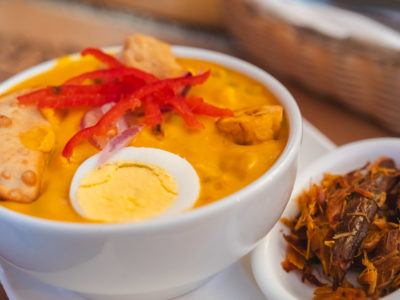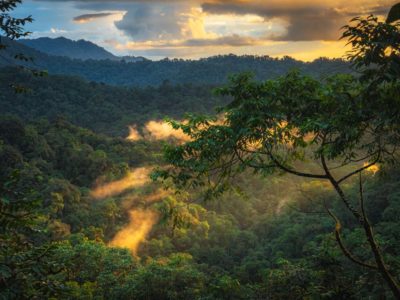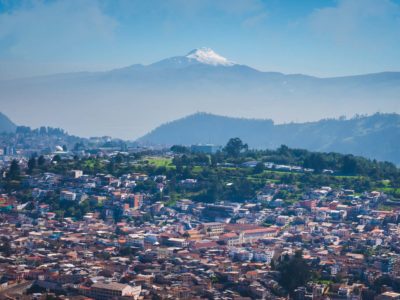It was our second visit to the Galapagos Islands, and we were excited to go island hopping in Darwin’s Footsteps on the newly refurbished Santa Cruz II with HX Hurtigruten Expeditions. This truly was our dream Galapagos Cruise. The first time we visited Galapagos National Park, we stayed on land and took water taxis and shuttles from island to island. That was fun, but this trip was luxurious, adventurous, informative, and fun. We had a great time on the ship with 39 like-minded passengers who were in the Galapagos with one purpose: to have the adventure of a lifetime.
Table of Contents
About the Galapagos Islands
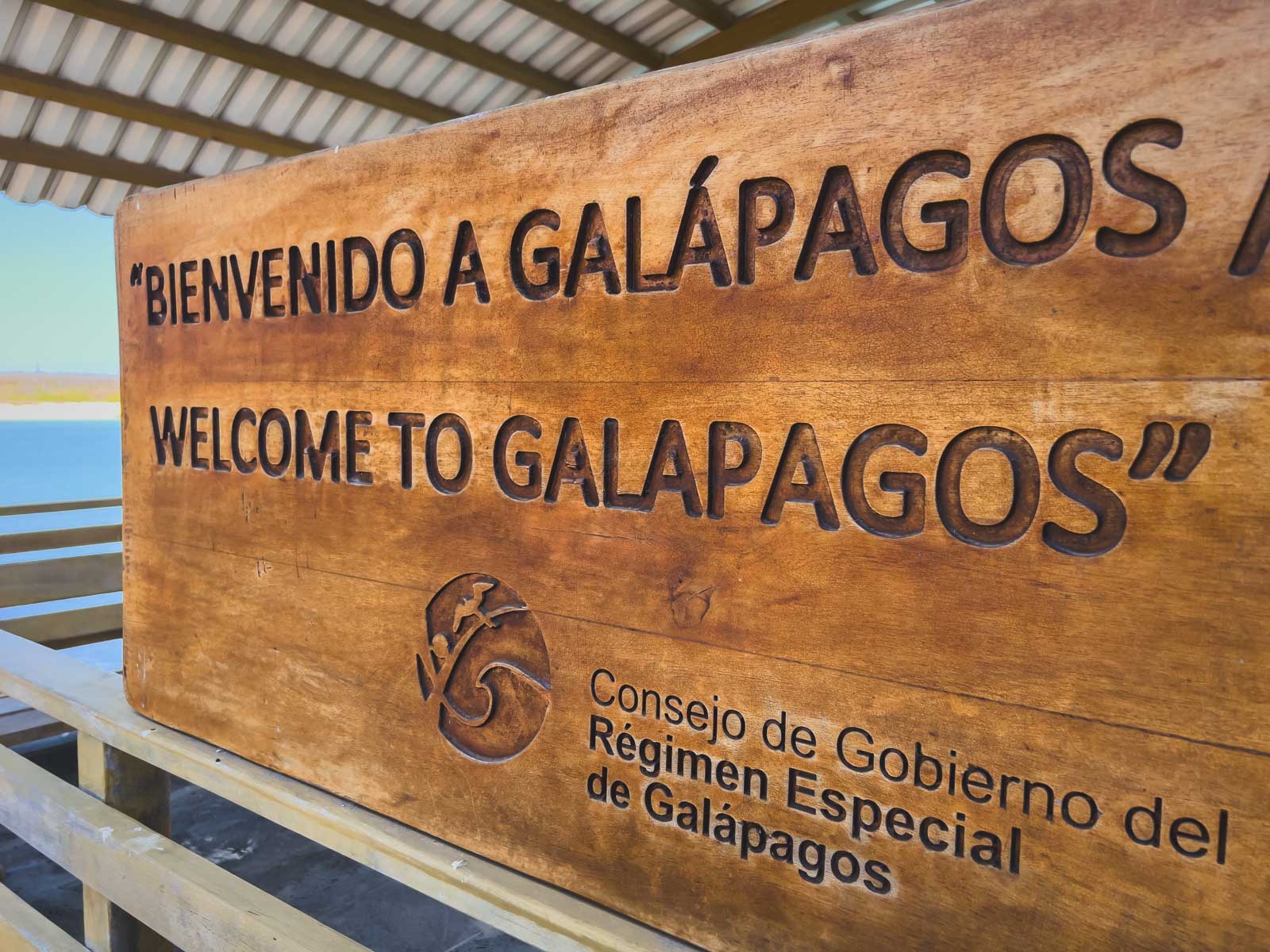
The Galapagos islands are a haven for an astonishing variety of endemic species, from the famous giant tortoises to the playful sea lions and the colorful blue-footed boobies; you will see animals that are unique only to these enchanted islands. It is incredible to see these animals thriving in the stark landscape and isolated conditions.
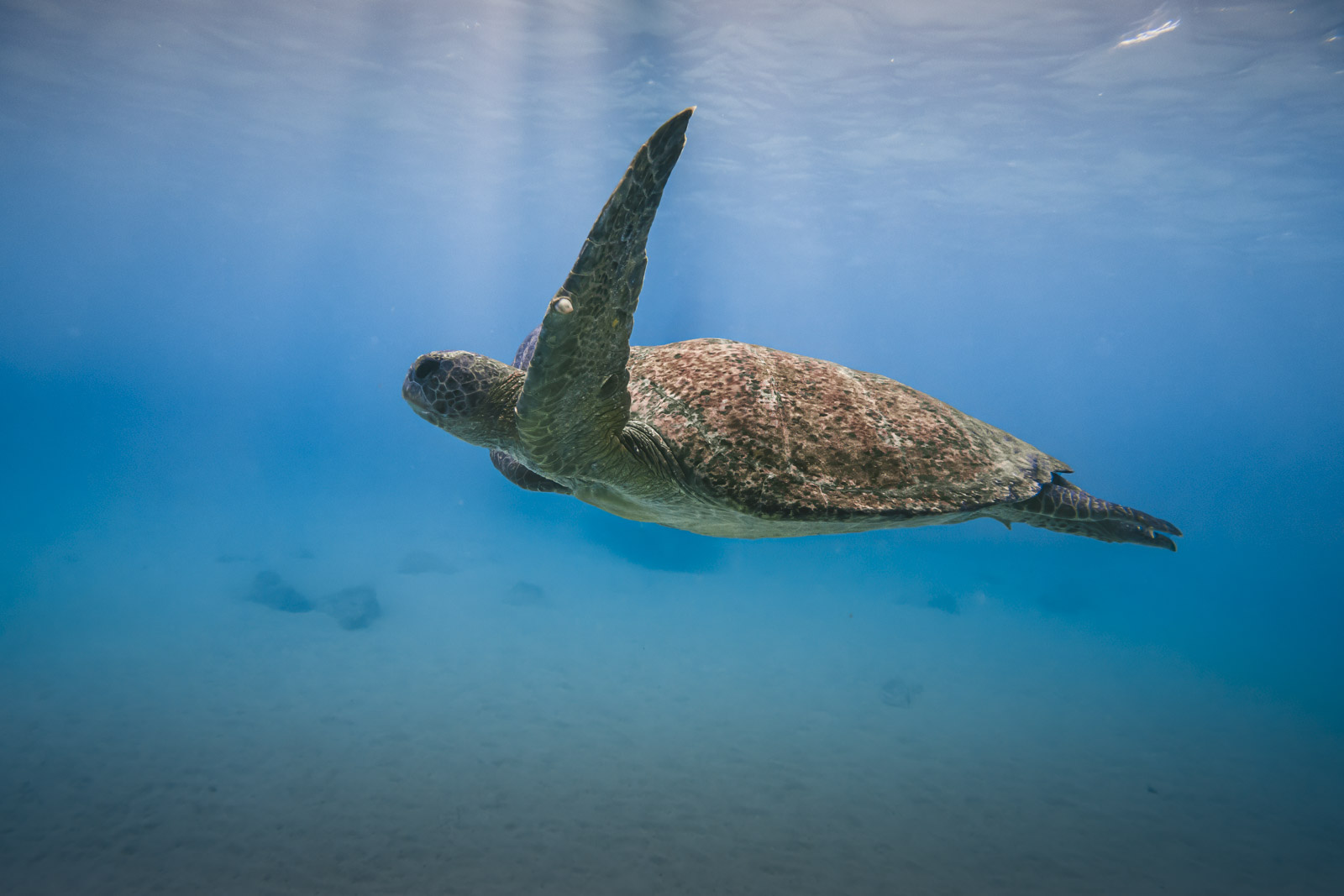
Even animals you have seen elsewhere are unique in the Galapagos Islands. The Galapagos marine iguana is the only iguana in the world that feeds underwater, and Galápagos penguins are the only penguin species in the northern hemisphere. From finches to mockingbirds, every living thing is fascinating. The wildlife here inspired Charles Darwin’s theory of evolution, and whispers of him can be found around the islands, from Giant Tortoise sanctuaries to museums.
Where are the Galapagos Islands?
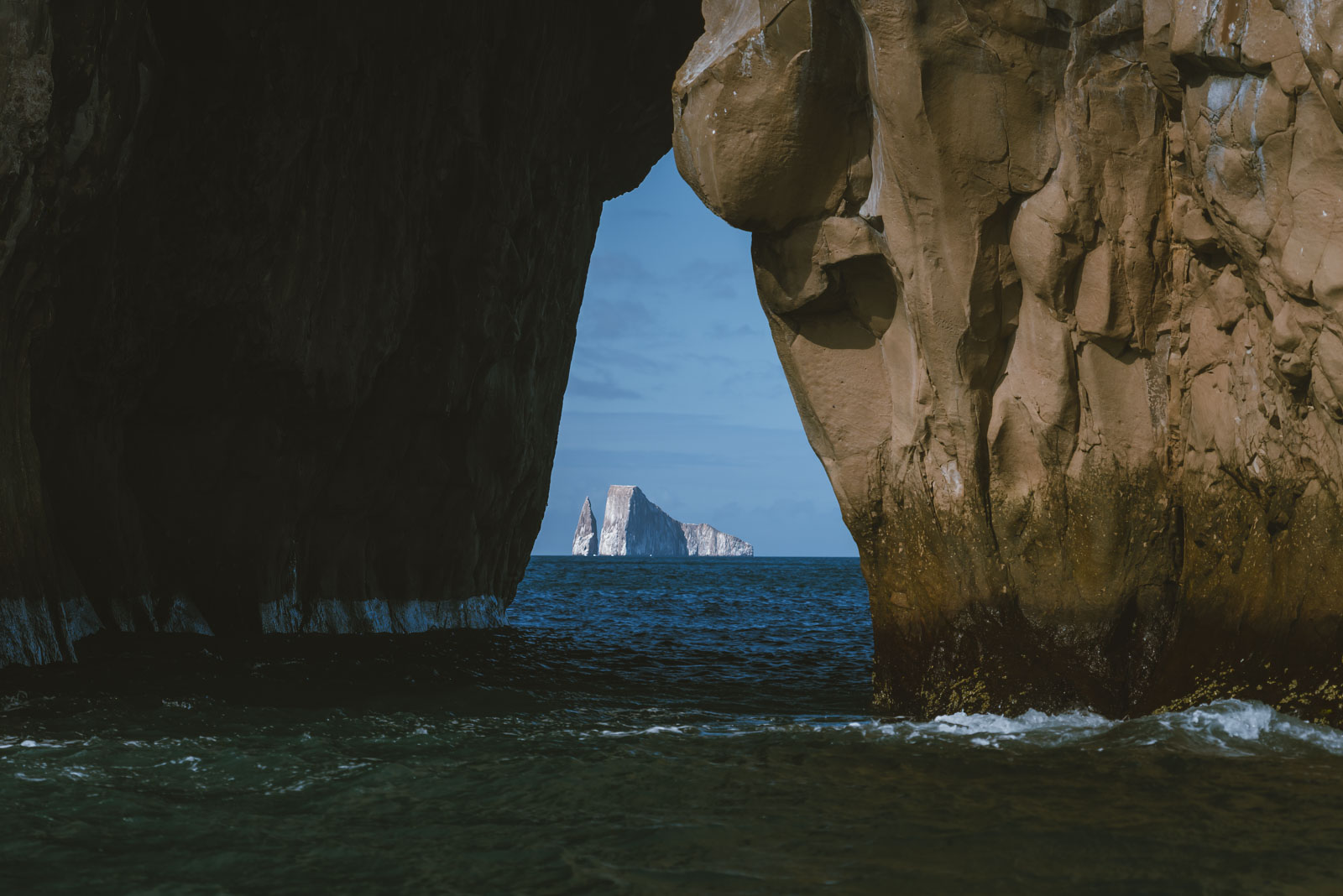
The Galapagos archipelago comprises 18 main islands off the coast of mainland Ecuador in the middle of the Pacific Ocean. These volcanic islands are among the most isolated places on Earth, and the best way to see them is by expedition cruise. Throughout our Galapagos journey, we spied on unique marine life and visited different islands boasting distinct ecosystems and landscapes, ranging from lush highlands to barren volcanic terrain.
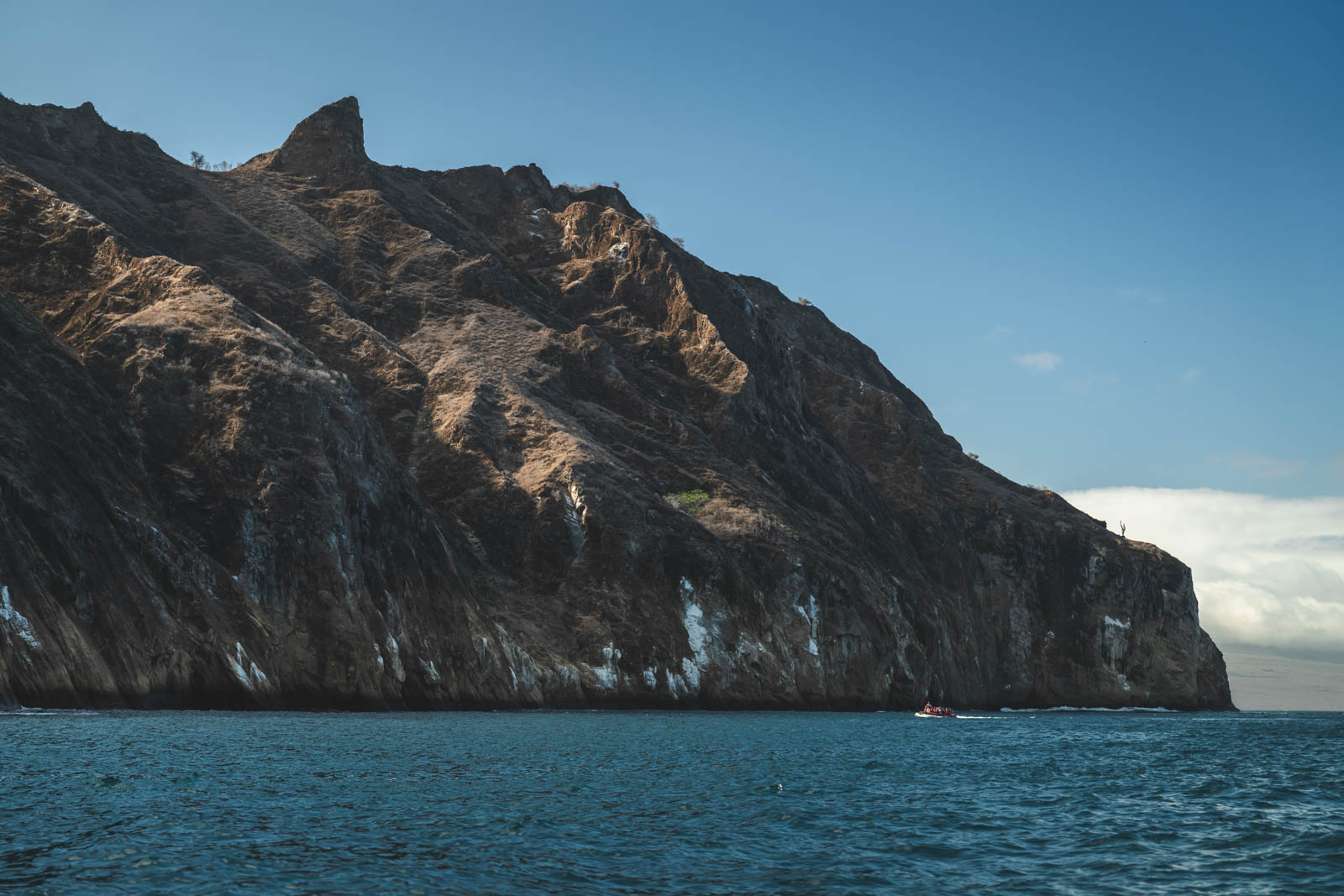
With strict conservation efforts in place, the Galapagos Islands remain one of the most unspoiled natural paradises on earth, inviting travelers to witness the wonders of evolution in real time. We cruised the east Galapagos Islands, following in Charles Darwin’s footsteps, who developed his Theory of Natural Selection after visiting the Galapagos.
Galapagos Cruise Itinerary – In Darwin’s Footsteps
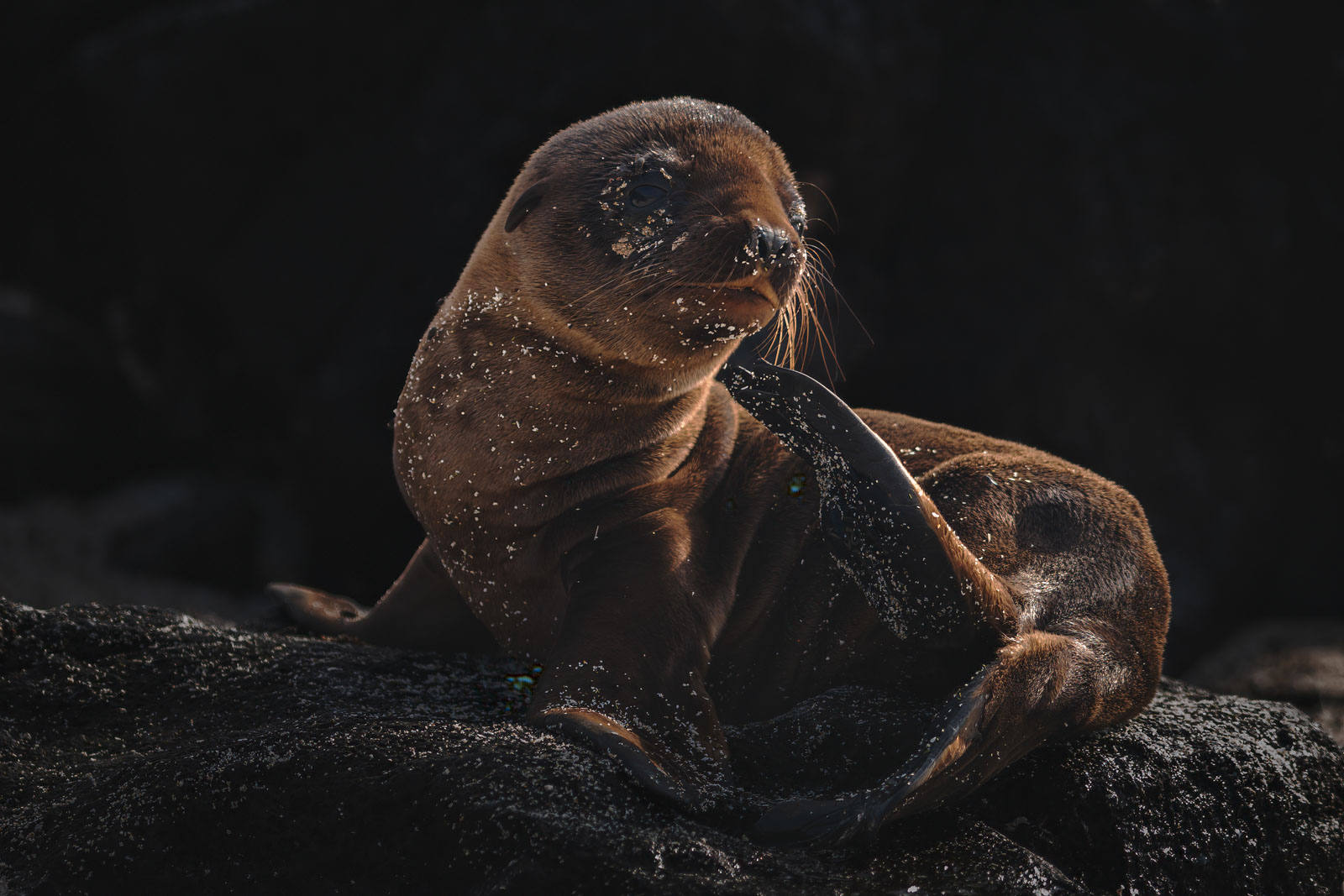
Our six-day Galapagos cruise took us through several eastern islands where we could go snorkeling, sea kayaking, hiking, SUP, and zodiac cruising through the archipelago in search of marine life such as sea turtles, sharks, and sea lions.
We had a luxurious experience from the moment we landed in Quito to our final destination in the rainforest of Mashpi Lodge. In total, we spent two weeks in Ecuador, with six of our days exploring the Galapagos Archipelago.
Quito
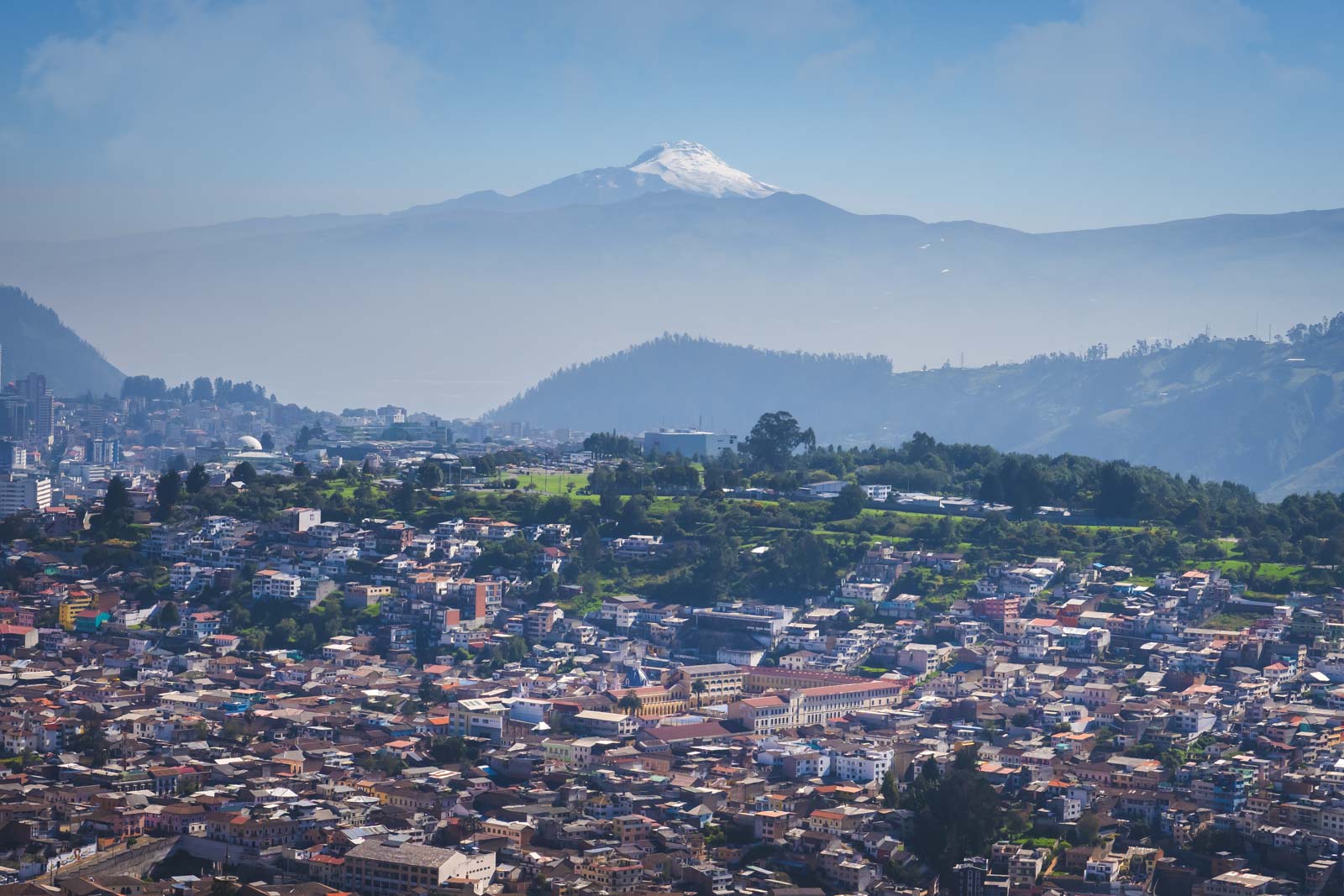
Most people fly into Quito, Ecuador, when traveling to the Galapagos and barely give it a second glance. It wasn’t long ago that people booking a Galapagos cruise skipped the city completely and only explored the tiny archipelago off the coast of South America, but luckily, things have changed. People have quickly learned that Quito is a wonderful city to explore.
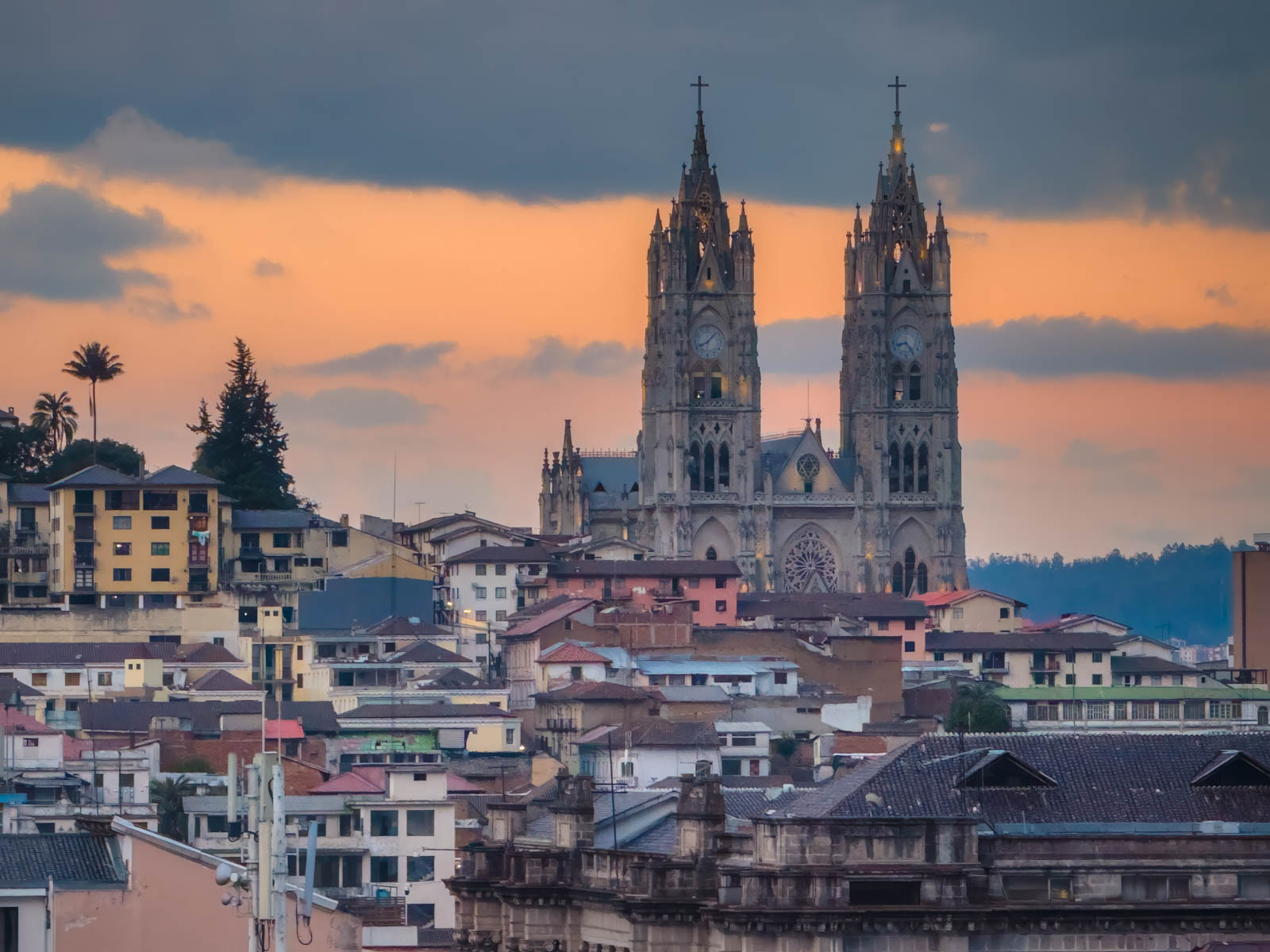
There are so many things to do in Quito that it’s no wonder it was designated the first UNESCO World Heritage Site in 1978 (along with the Galapagos Islands). Thanks to its untouched cultural and historic center, Quito is the best-preserved old city in Latin America.
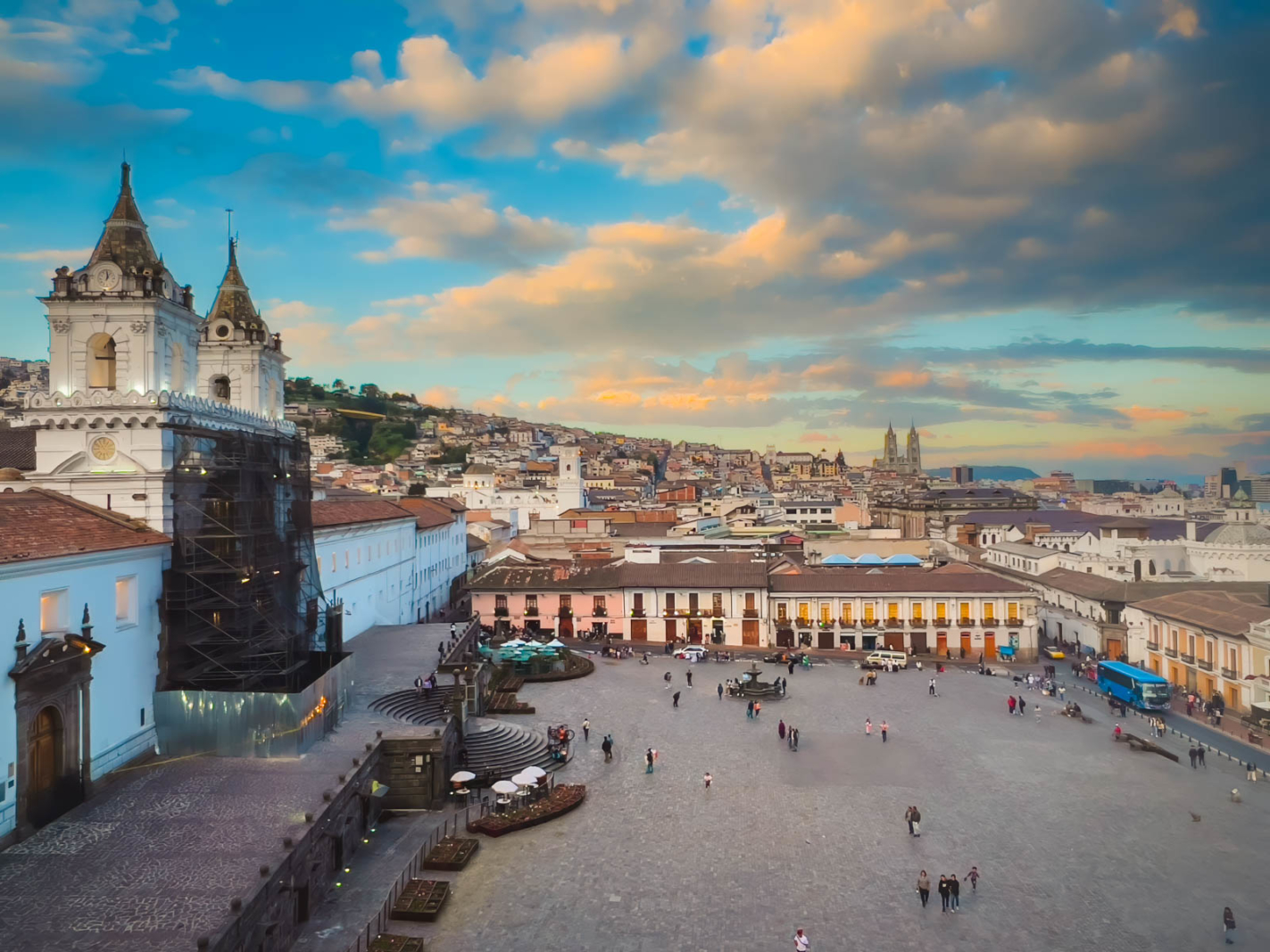
You can easily explore Quito in a day. The old city is walkable, and its downtown core contains many historical sites. From the Presidential Palace at Independence Square to the largest neo-Gothic basilica in the Americas, the Basilica del Voto Nacional, you will be treated to an array of historic attractions.
We stayed at the historic Casa Cangotena, which had a balcony overlooking the iconic Plaza de San Francisco and the majestic San Francisco Church and Convent. This is truly a special city.
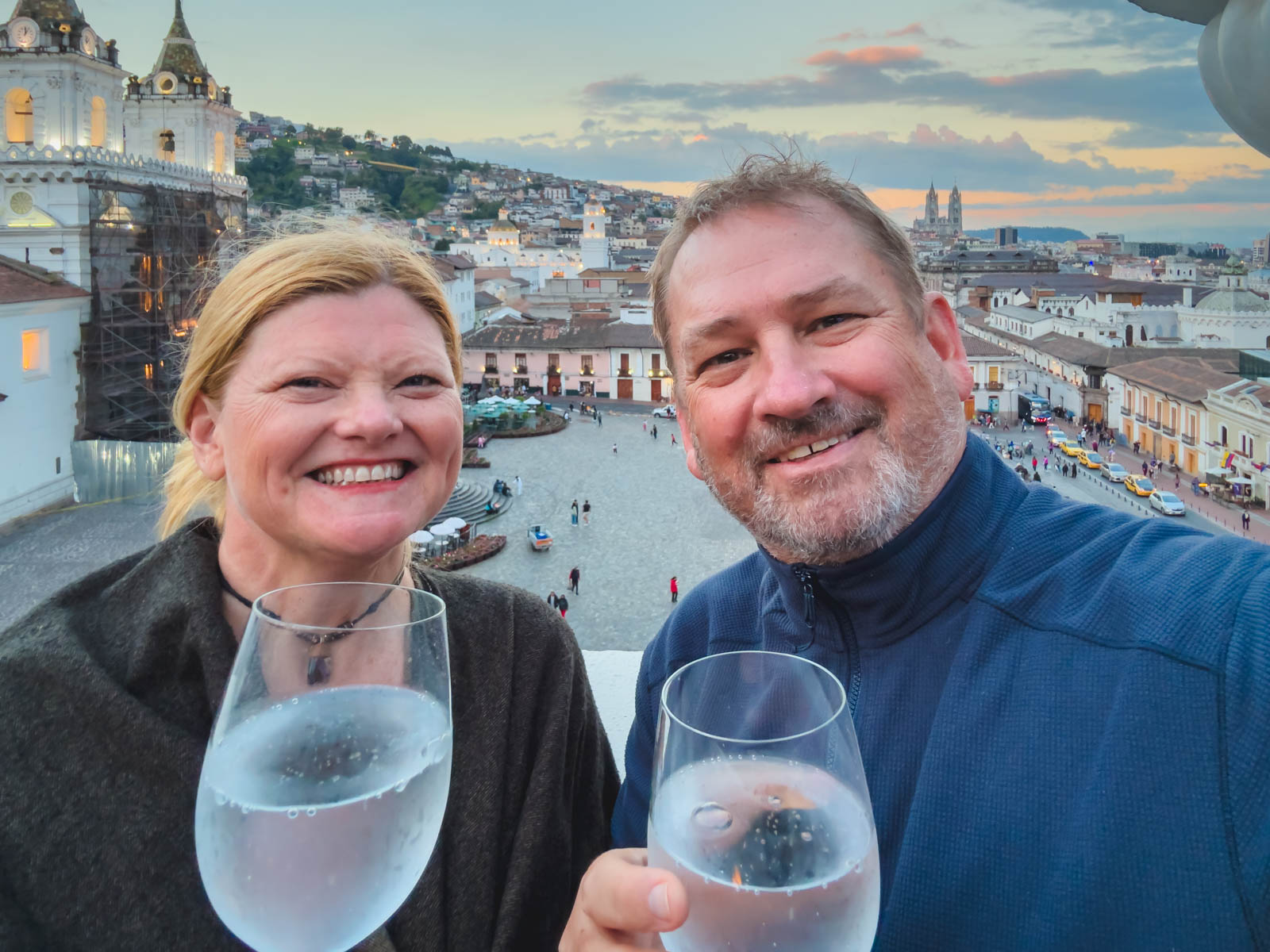
Quito is the capital of Ecuador and has many unique qualities. It is the highest official capital city in the world, sitting at an altitude of 2850 meters, and the closest capital city to the equator. Quito is surrounded by 14 volcanoes, one of which is the only snowcapped location on the entire Equator. Quito’s stunning natural beauty will take your breath away.
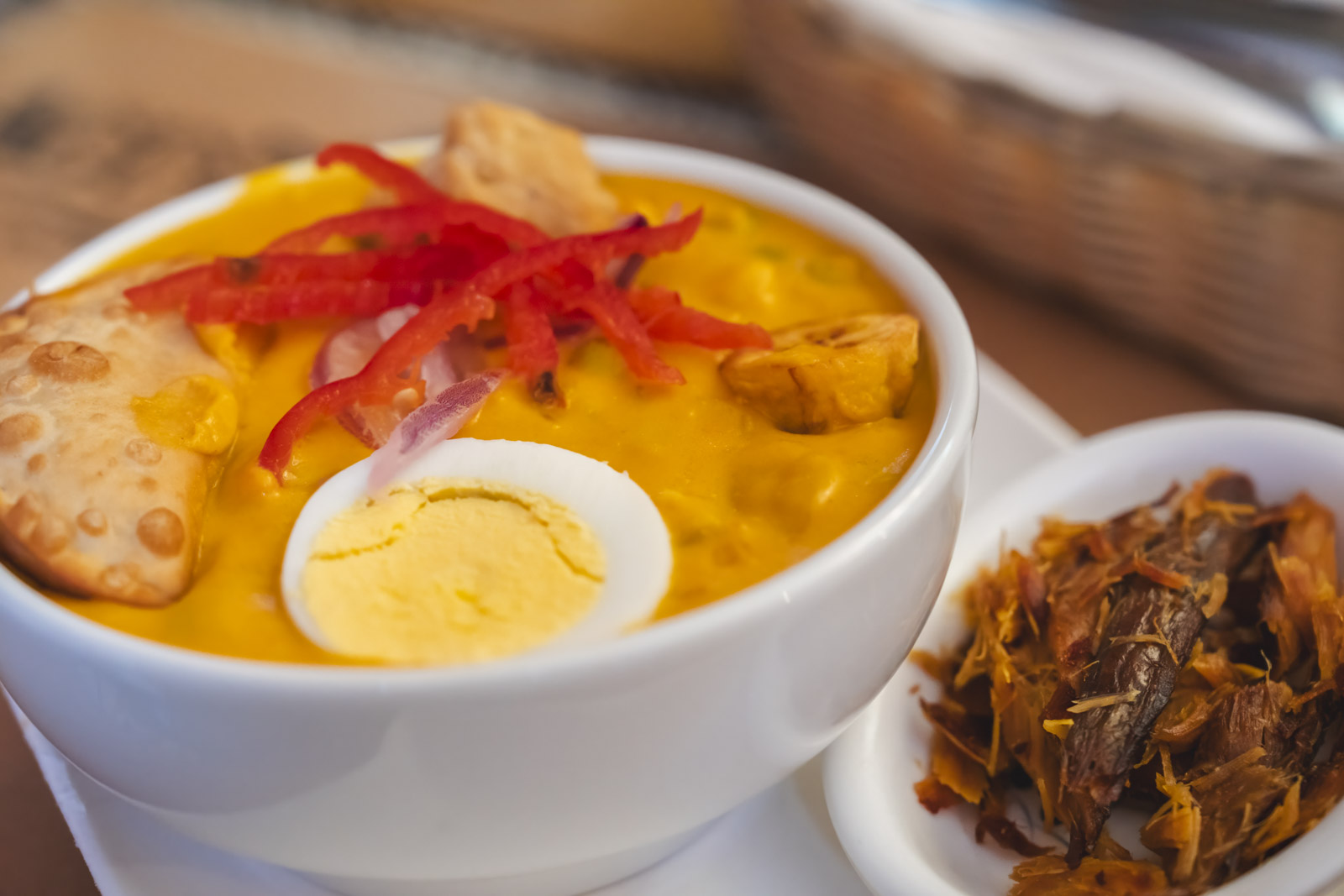
Quito is also an excellent place to enjoy authentic Ecuadorian food. Check out more here: Ecuadorian Food: 19 Best Ecuadorian Dishes You Have To Try
Pre-Tour in Quito – Cotopaxi Volcano
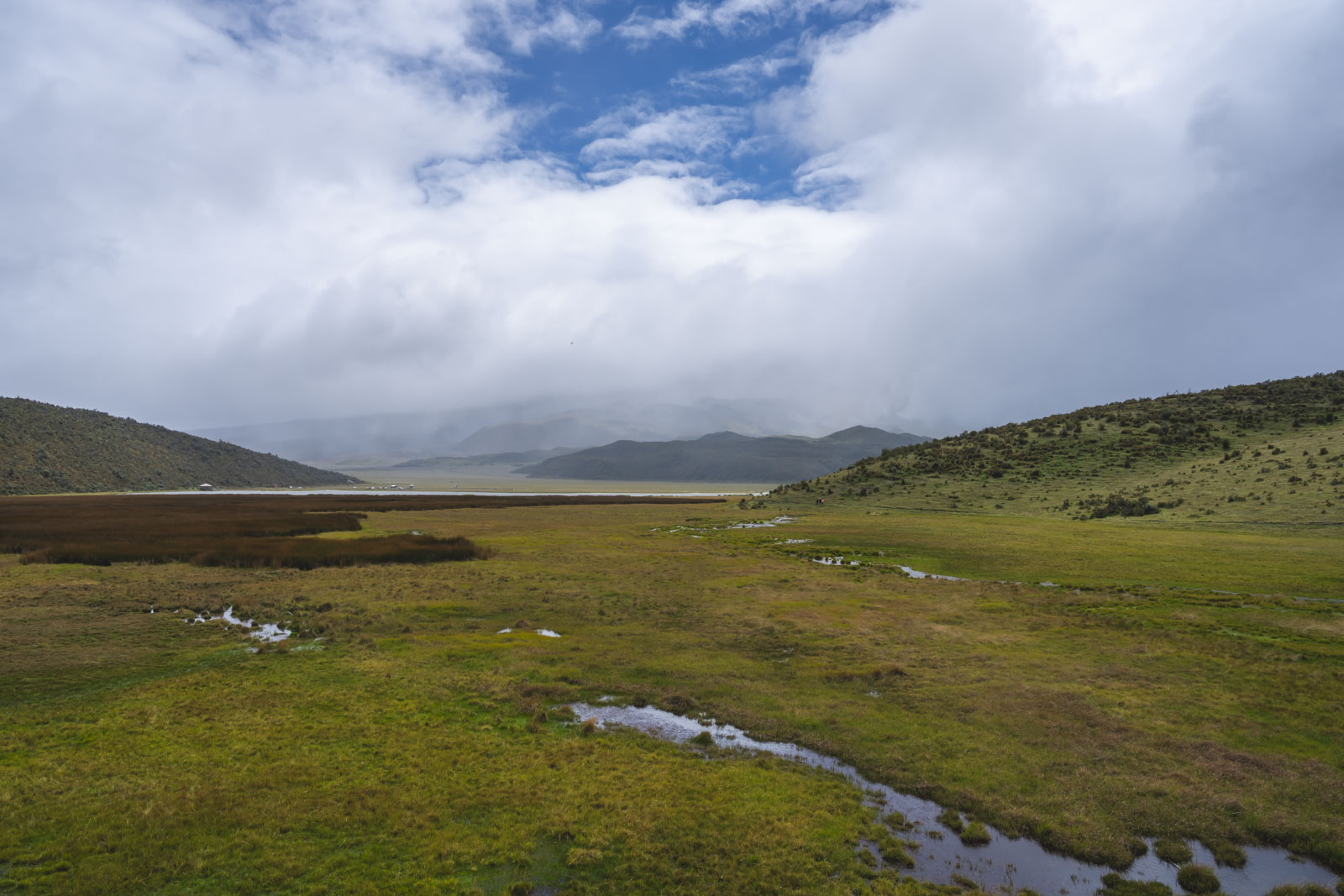
Most Galapagos expedition itineraries start in Quito, Ecuador’s capital and the world’s first UNESCO World Heritage Site. Many people also opt for pre-trips to Machu Pichu to see the Inca empire and the cloud forest or explore Lima, Peru. Hey, it’s your dream Galapagos cruise; you can see as much or as little as you like! We opted for a day trip to nearby Cotopaxi Volcano which is known for its nearly perfect conical shape covered with a crown of snow.
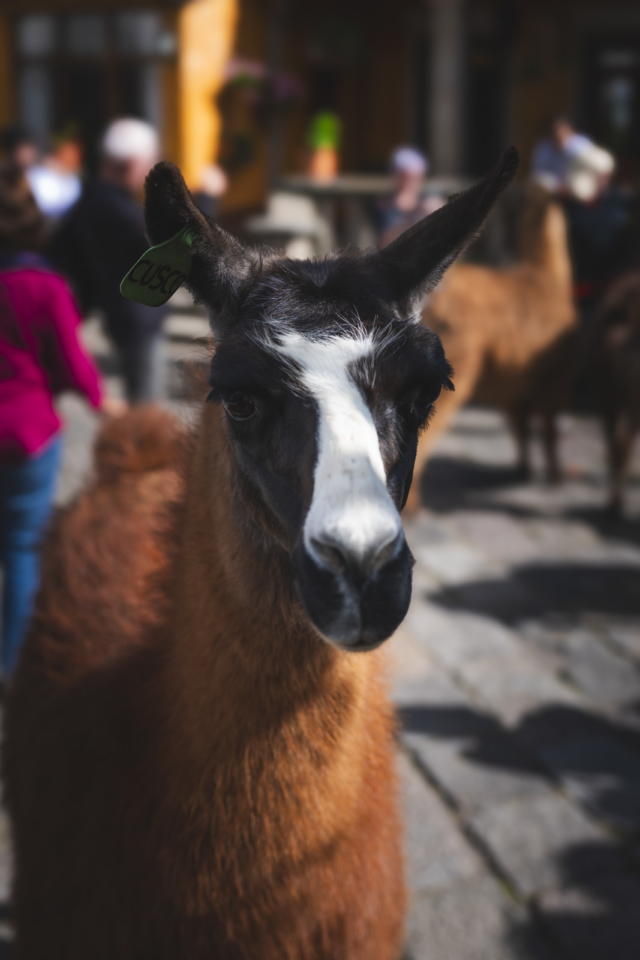
Just a short drive from the capital, Cotopaxi National Park is home to the majestic Cotopaxi Volcano is also one of the highest active volcanoes in the world.
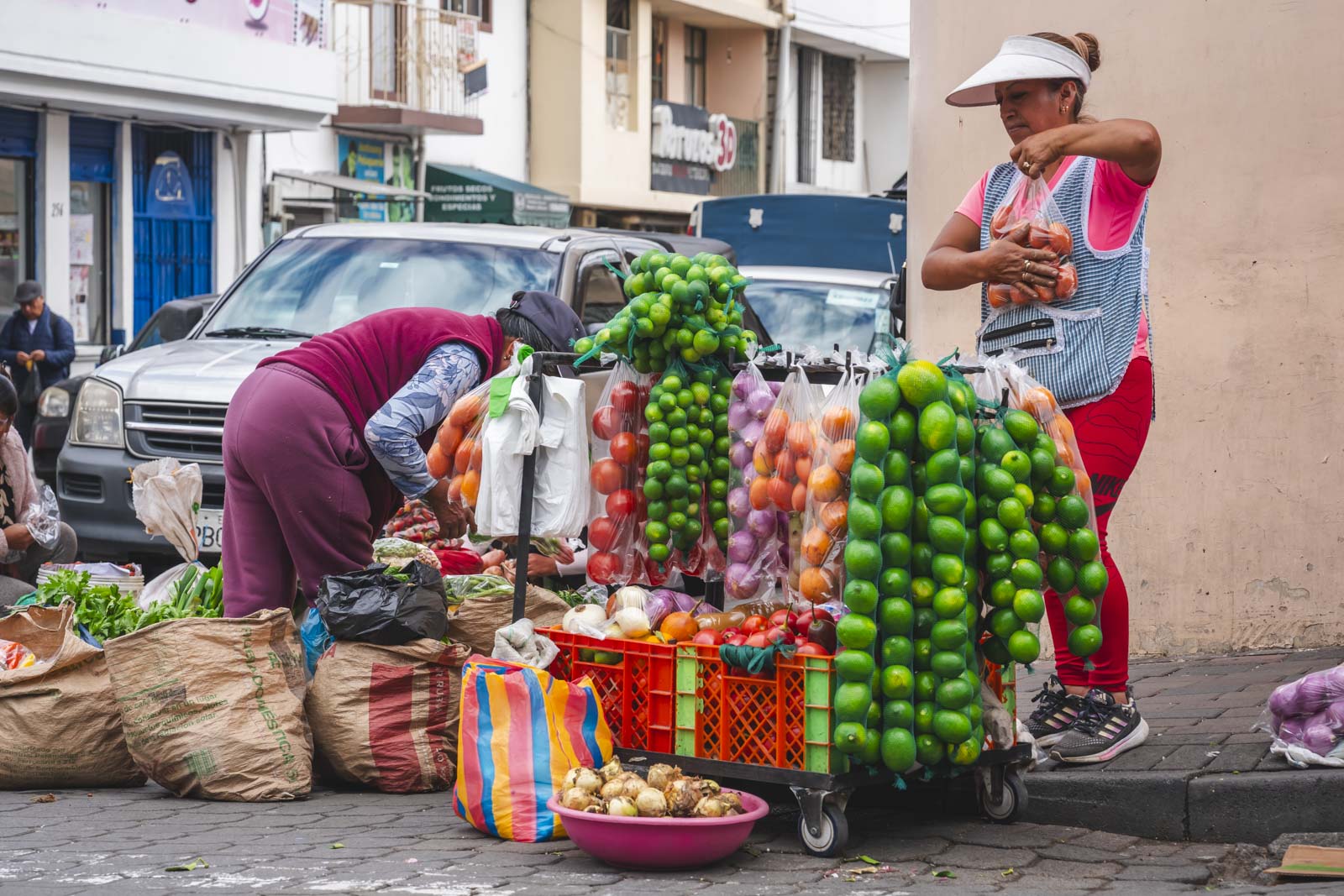
After a hike around the lake to take in the views of the volcanic cone, we stopped at a hacienda for lunch, followed by the opportunity to feed lamas the cutest lamas. We also stopped at nearby towns to explore markets and get immersed in the culture with our local guide. Unfortunately, we had a rainy day, and the volcano was hidden behind the clouds, but it was still special to be hiking 4,000 meters (13,00 feet) above sea level.
Day 1 – Fly to Baltra Island (Aka South Seymour Island)
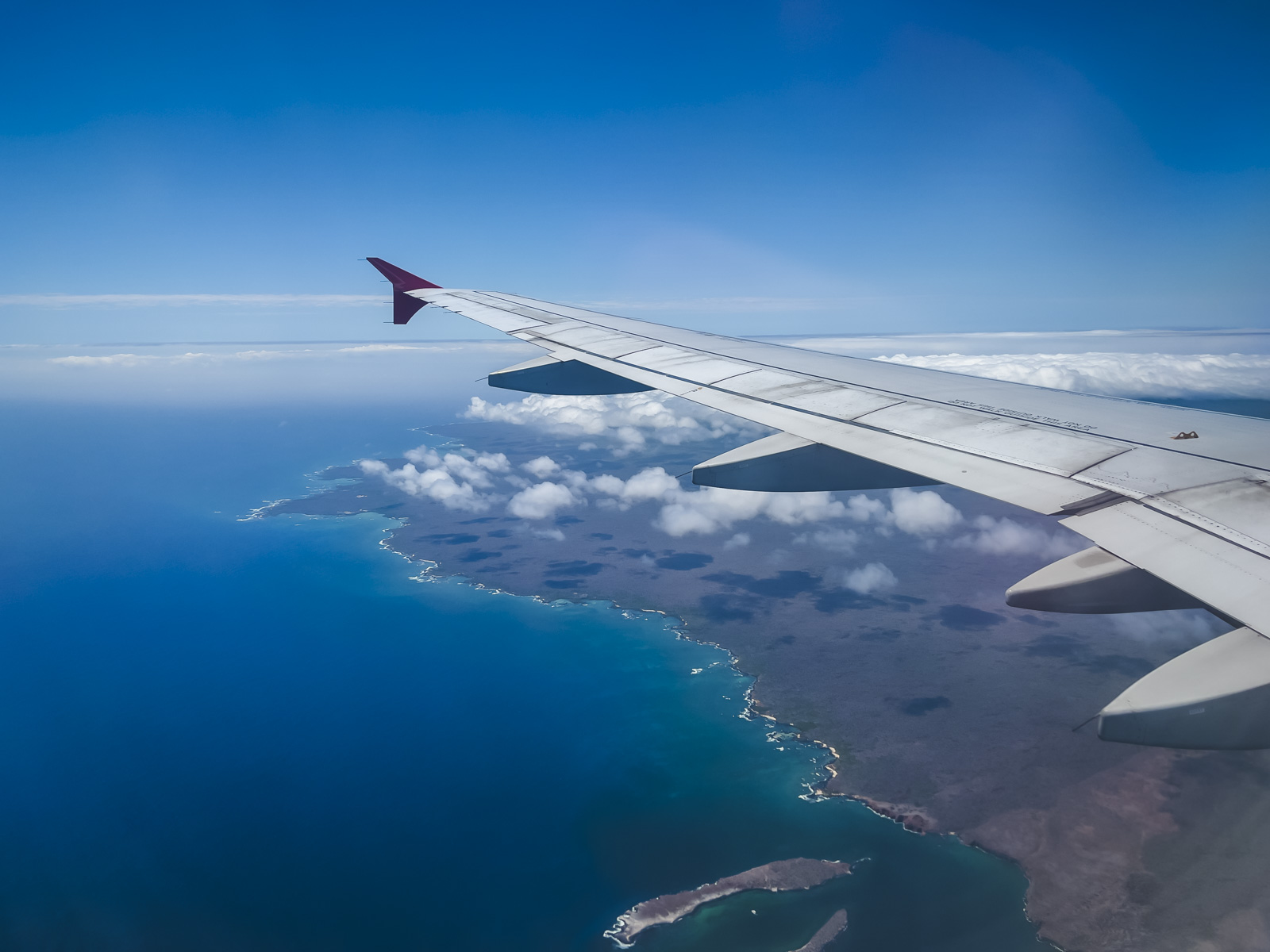
It was an early morning wake-up call to fly to the Galapagos Islands. We were up at 4:30 am for breakfast and then a 45-minute drive to the airport. The flight to the Galapagos Islands takes about 2 1/2 hours from Quito, with a short stop at Guayaquil on the coast.
The Galapagos Islands are remote. They are a tiny archipelago 1,369 km off the coast of South America with no other land in sight. It truly feels like you are an early explorer when you land on the islands.
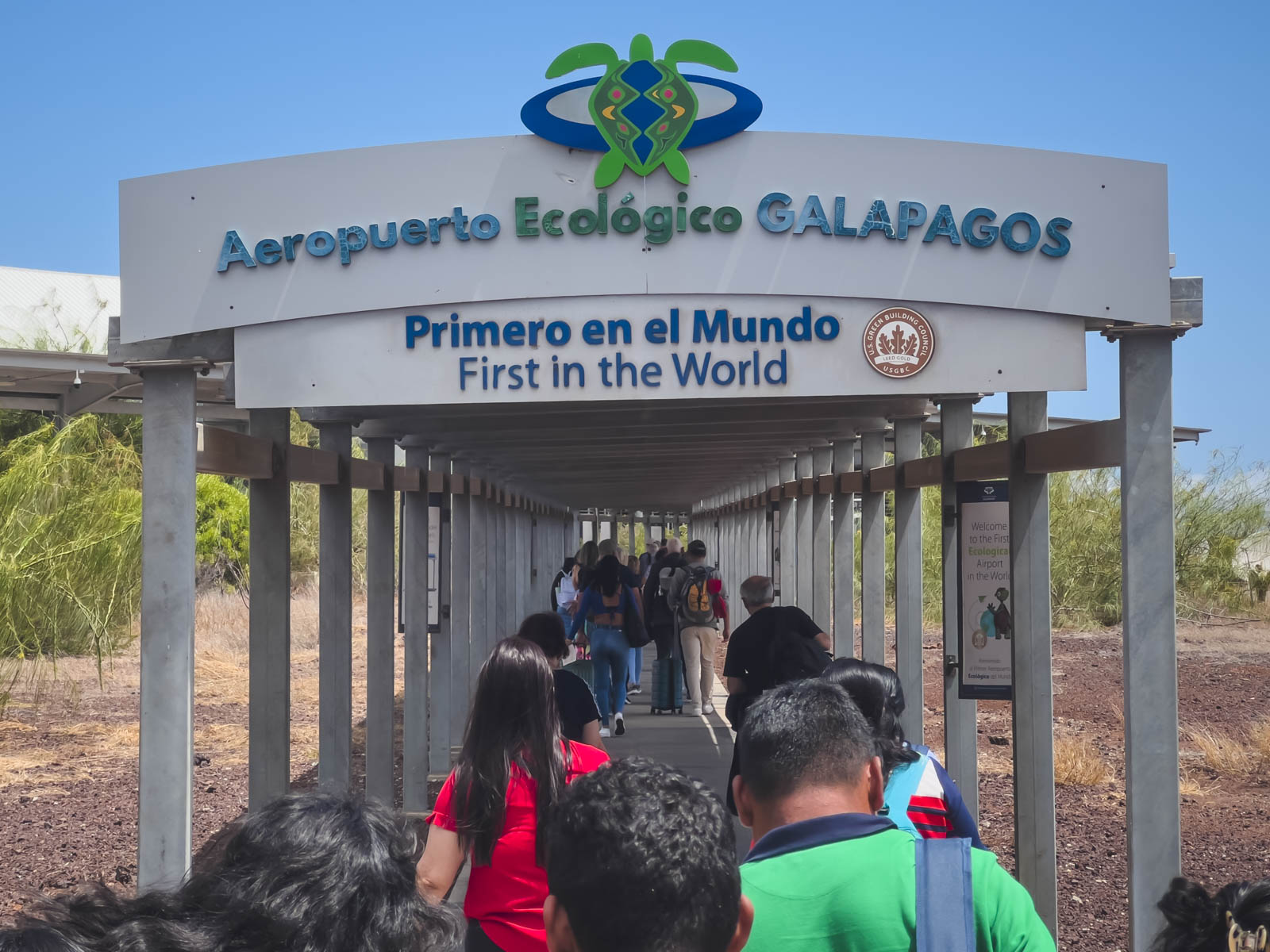
Galápagos National Park regulations are strict (rightfully so), and we all had our bags scanned for anything that could contaminate the destination. Before flying from Quito and upon landing in the Galapagos.
One in the Galápagos Islands, we were greeted by the Hurtigruten staff and the resident land iguanas at the local airport. With that kind of welcome, we knew we were in for a treat as we toured the enchanted islands.
Welcome Meeting and Emergency Drills
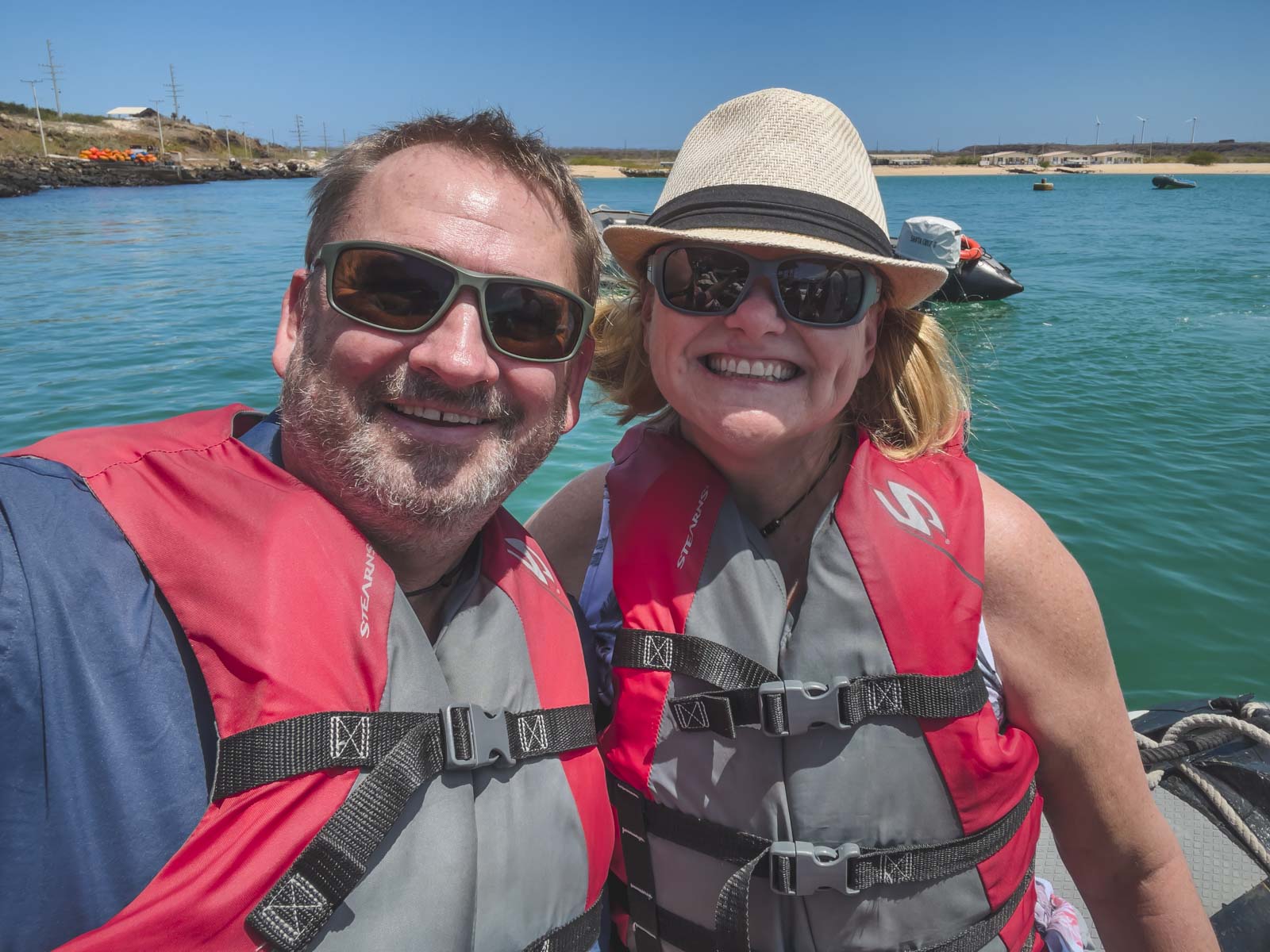
We gathered our luggage and made our way to our transfers to the ship. Hopping on zodiacs, we were on the MS Santa Cruz II in a flash, where we were fed lunch and had an introduction to the week.
Lunch was a buffet followed by a main course and dessert. We could even have wine or beer if we felt like it. But, with excursions to be had, our day was just getting started!
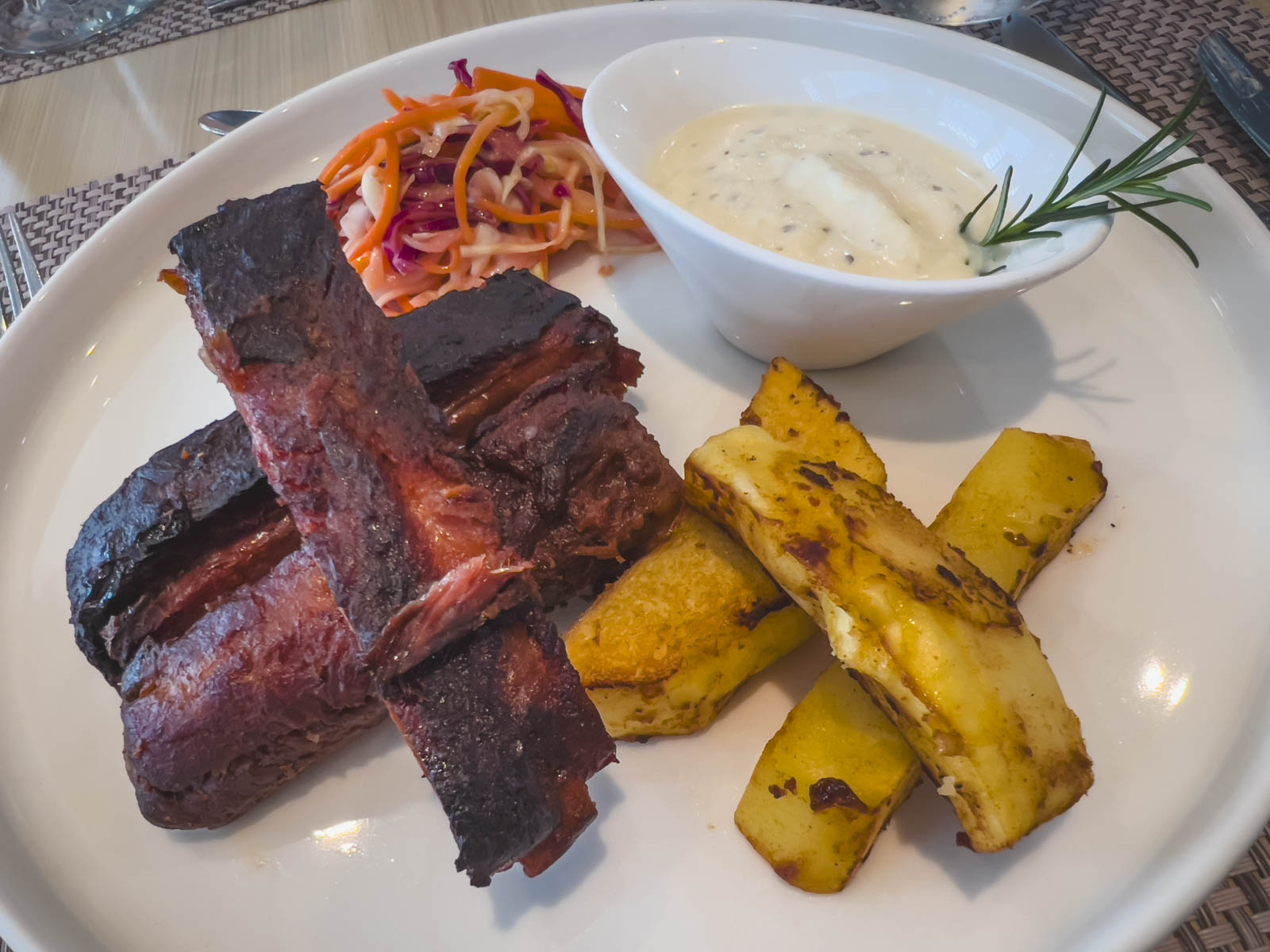
After lunch, we met at the muster stations for our emergency drill and learned how we’d be disembarking to ship. Once we were finished, we grabbed our PFDs (personal floating devices), met in the library and disembarked in groups of 8 – 10 people for our first island destination.
Mosquera Island – Hike on the Beach
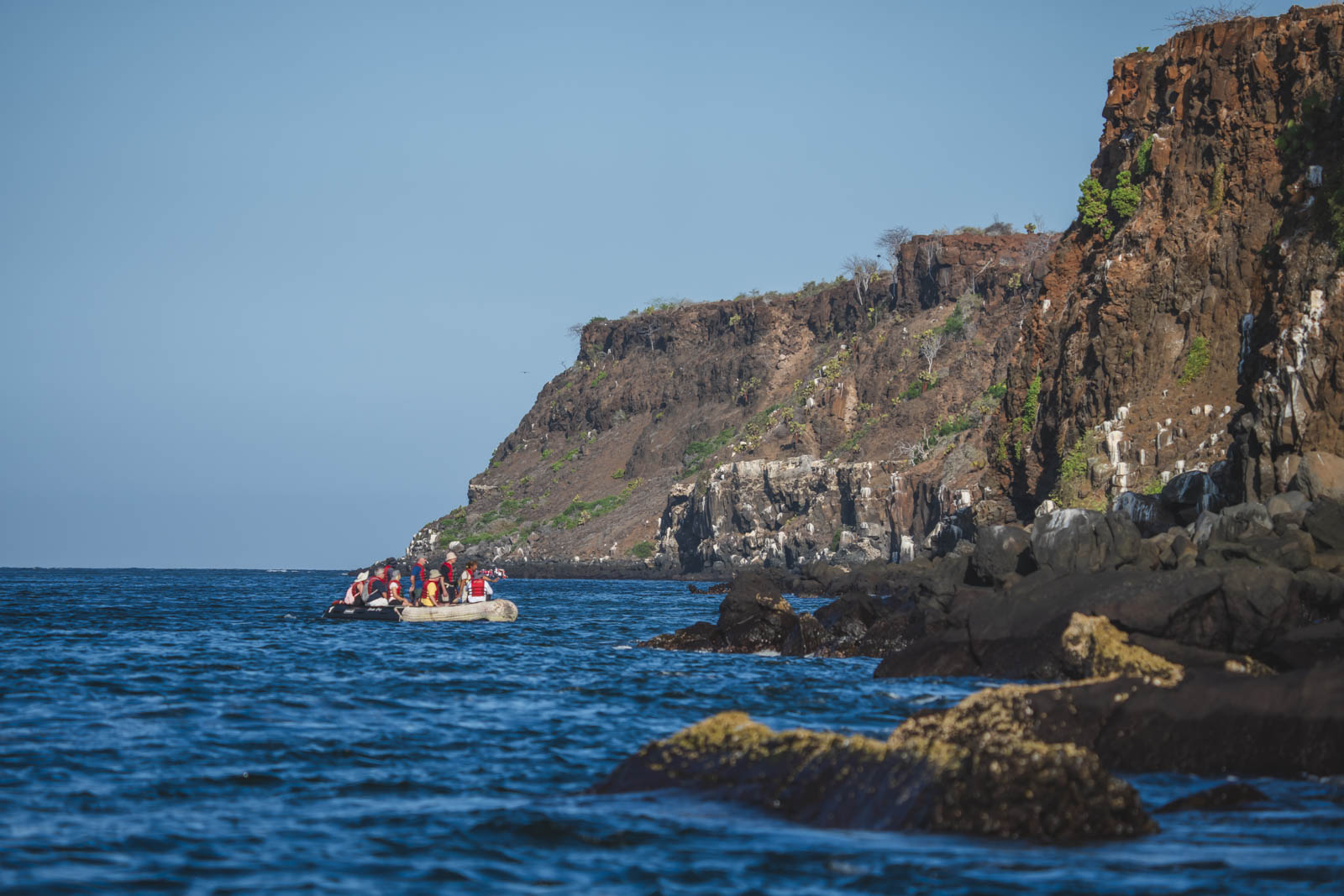
Our first afternoon in the Galapagos was already off to an amazing start with an afternoon excursion that began with a panga ride (you may know pangas as zodiacs), where we explored the sea cliffs of Mosquera Island. We spied frigate birds, blue-footed boobies, and pelicans along its rocky shore.
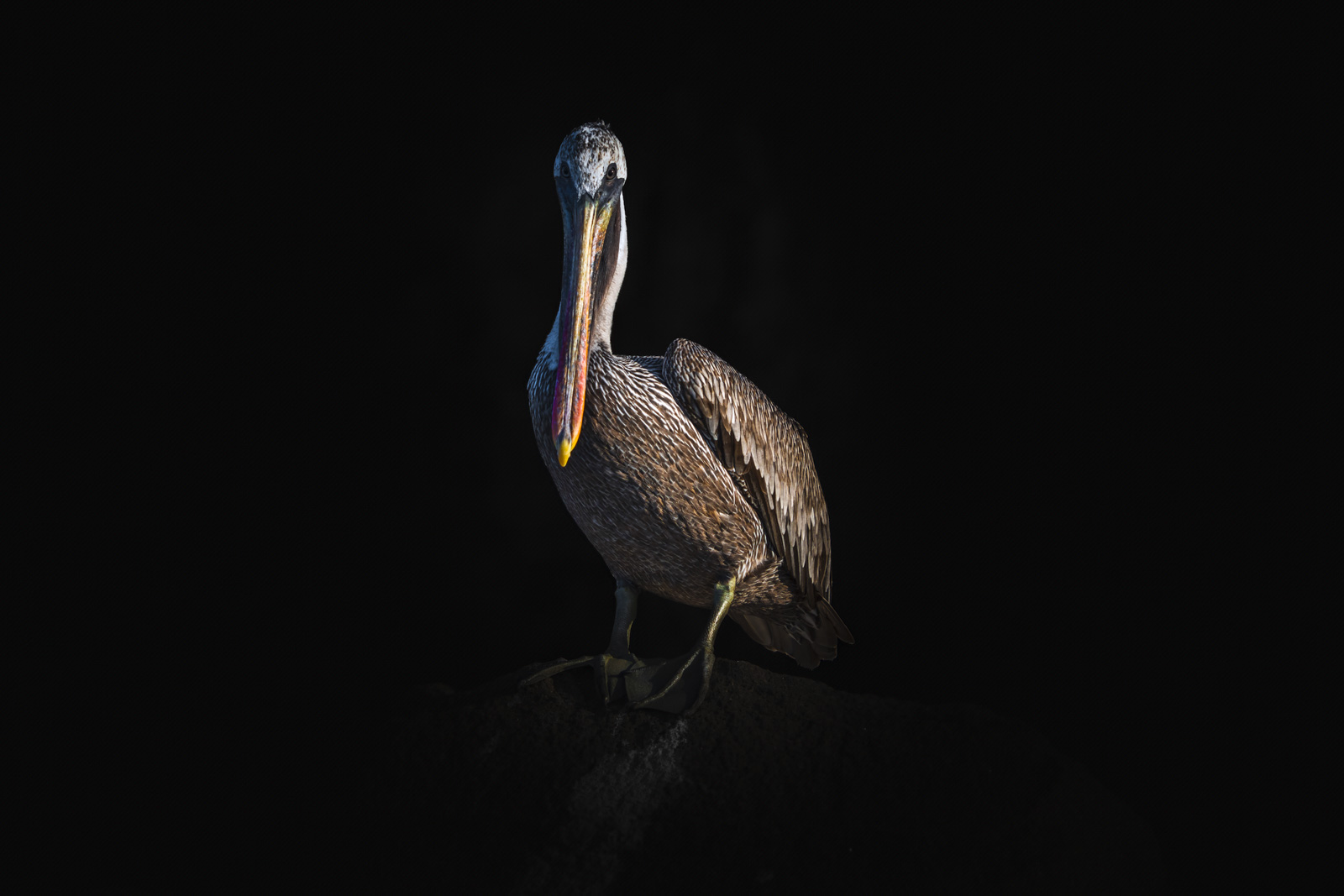
After an hour on the water, we were let off on the most pristine white sand beach you’ll ever see. This was our first encounter with sea lions in their natural habitat, and it did not disappoint.
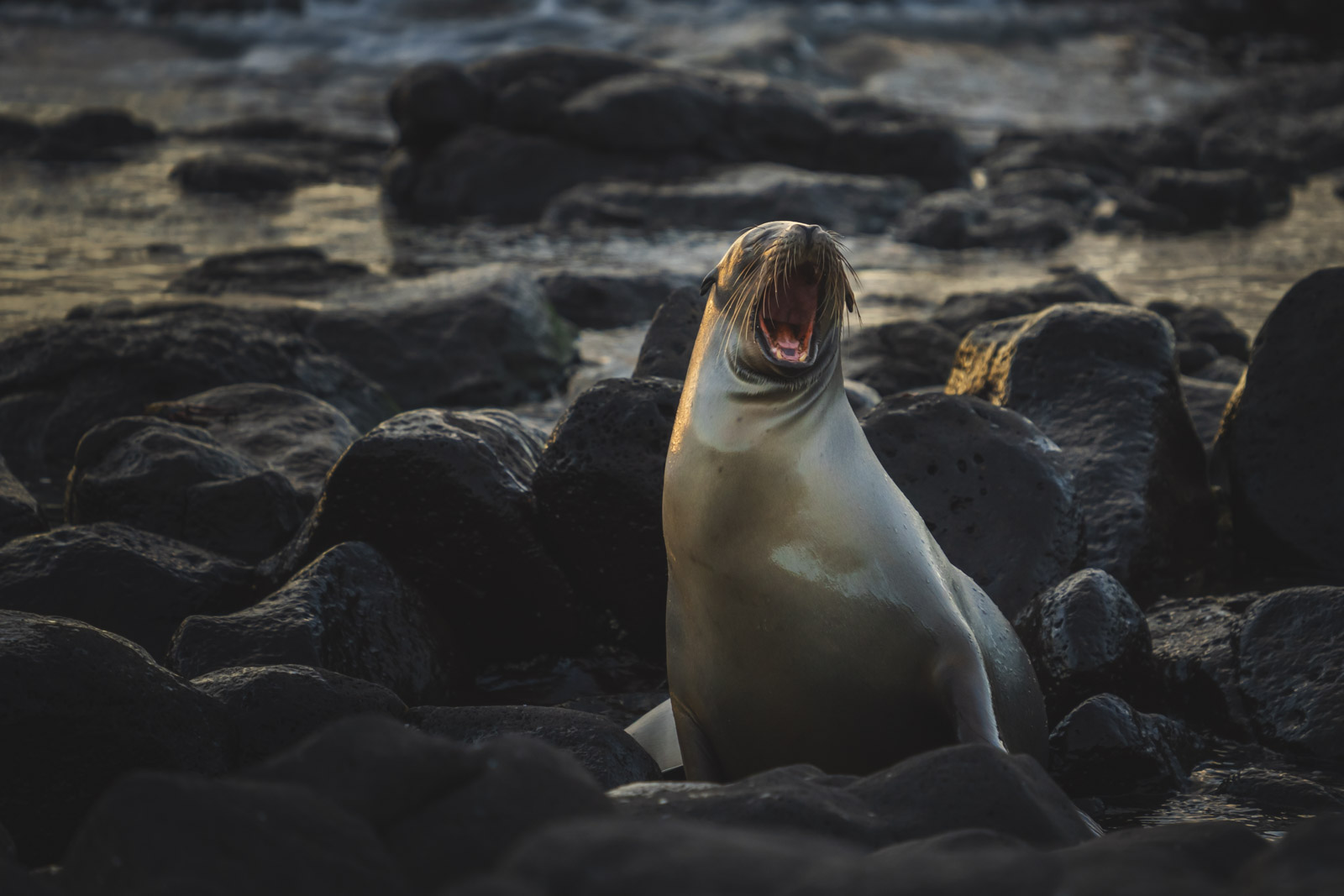
We walked along the pristine beach watching frigate birds build nests and puff their red chests to attract a mate, enjoyed sea lions playing in the surf and basking on the beach, and watched Sally Foot Crabs flitter around in the sand.
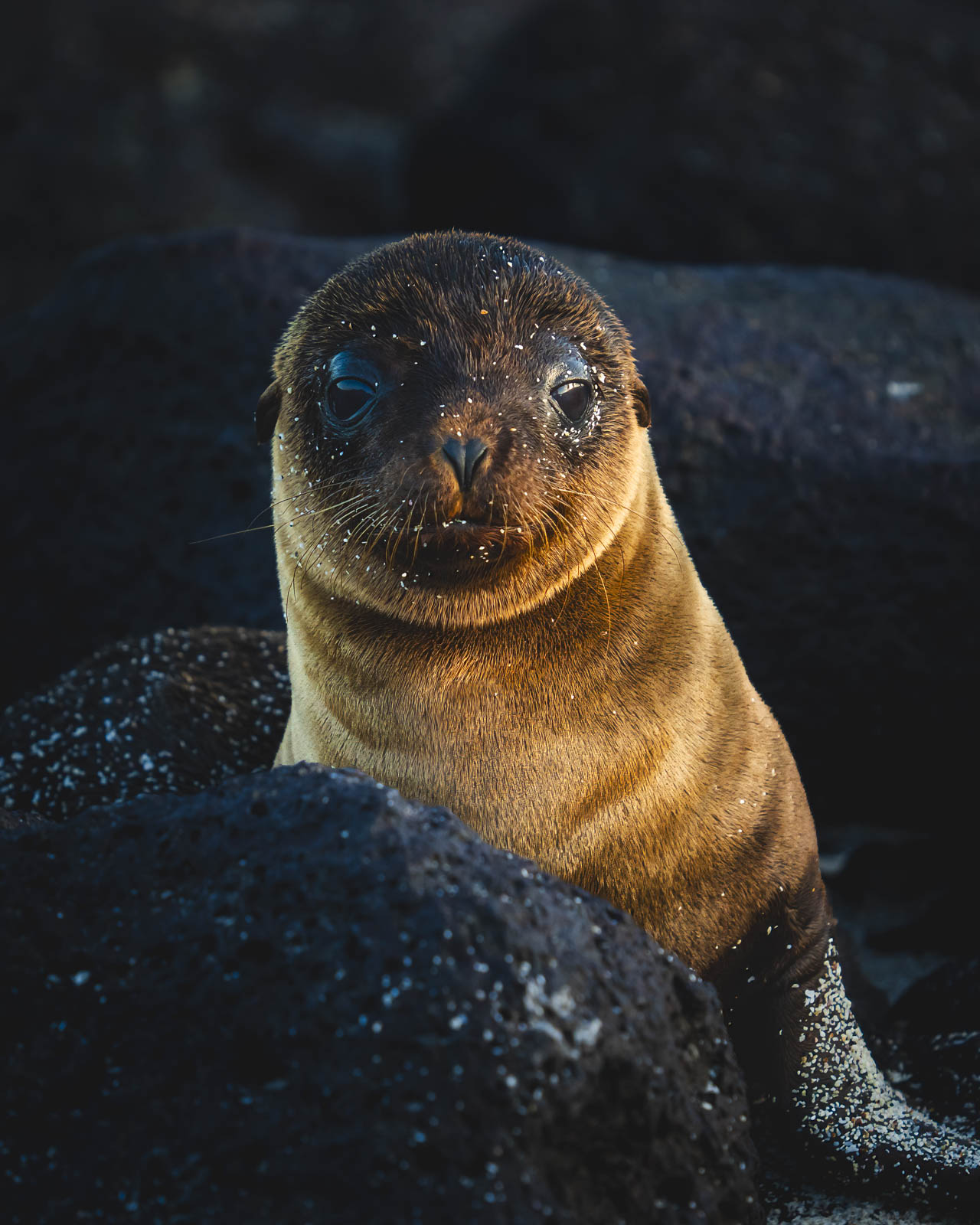
As the sun set, we returned to the pangas in time for dinner and a welcome toast with the captain.
Day 2 – San Cristobal – Puerto Baquerizo Moreno
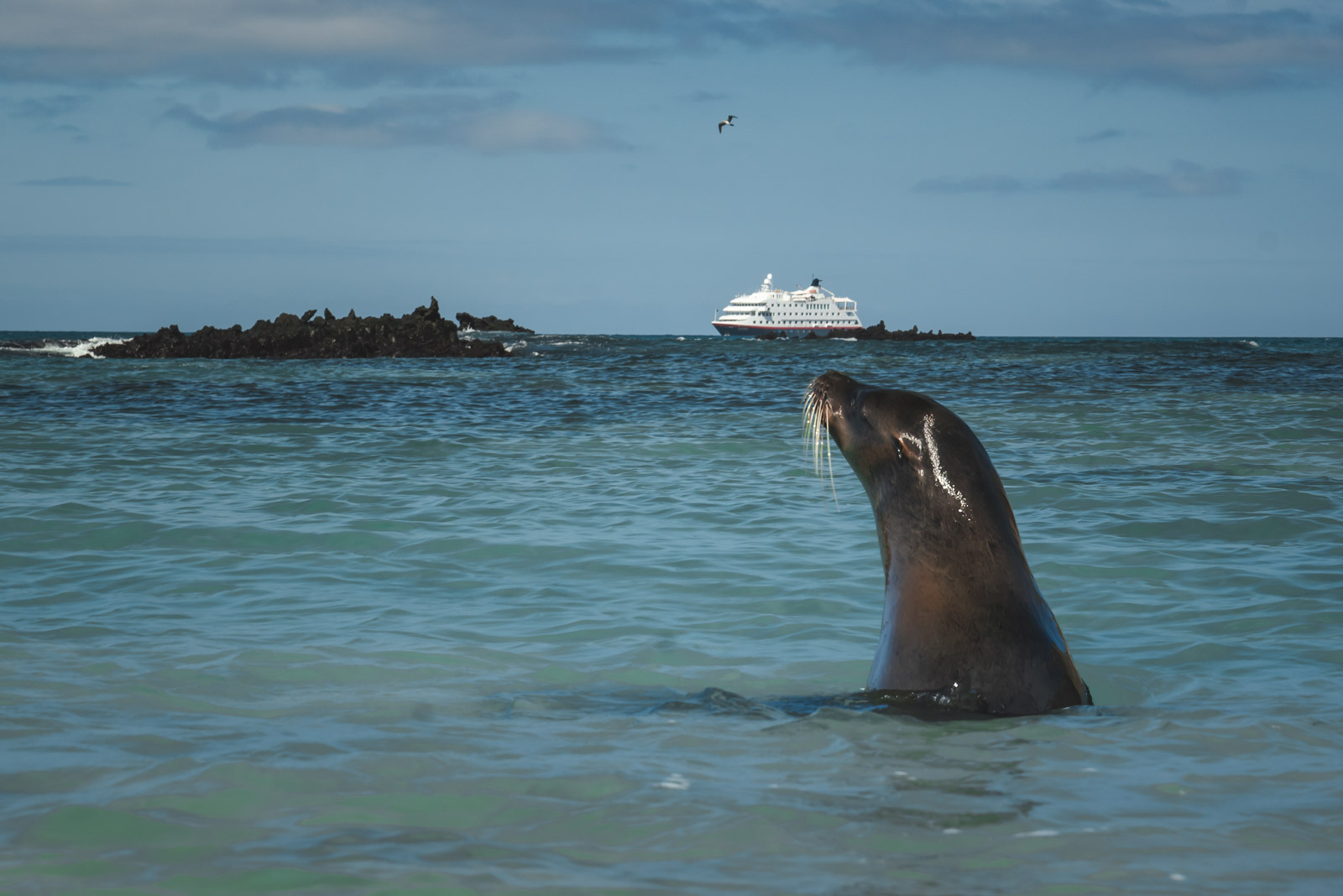
No trip to the Galapagos Islands would be complete without getting in the water and most Galapagos cruises offer several opportunities for snorkeling. We had several chances to go swimming, but also snorkeling. For people who want to explore the underwater world, all snorkeling gear is included. Our expedition cruise had wet suits, snorkels, fins, and even inflatable life preservers if you wanted extra buoyancy.
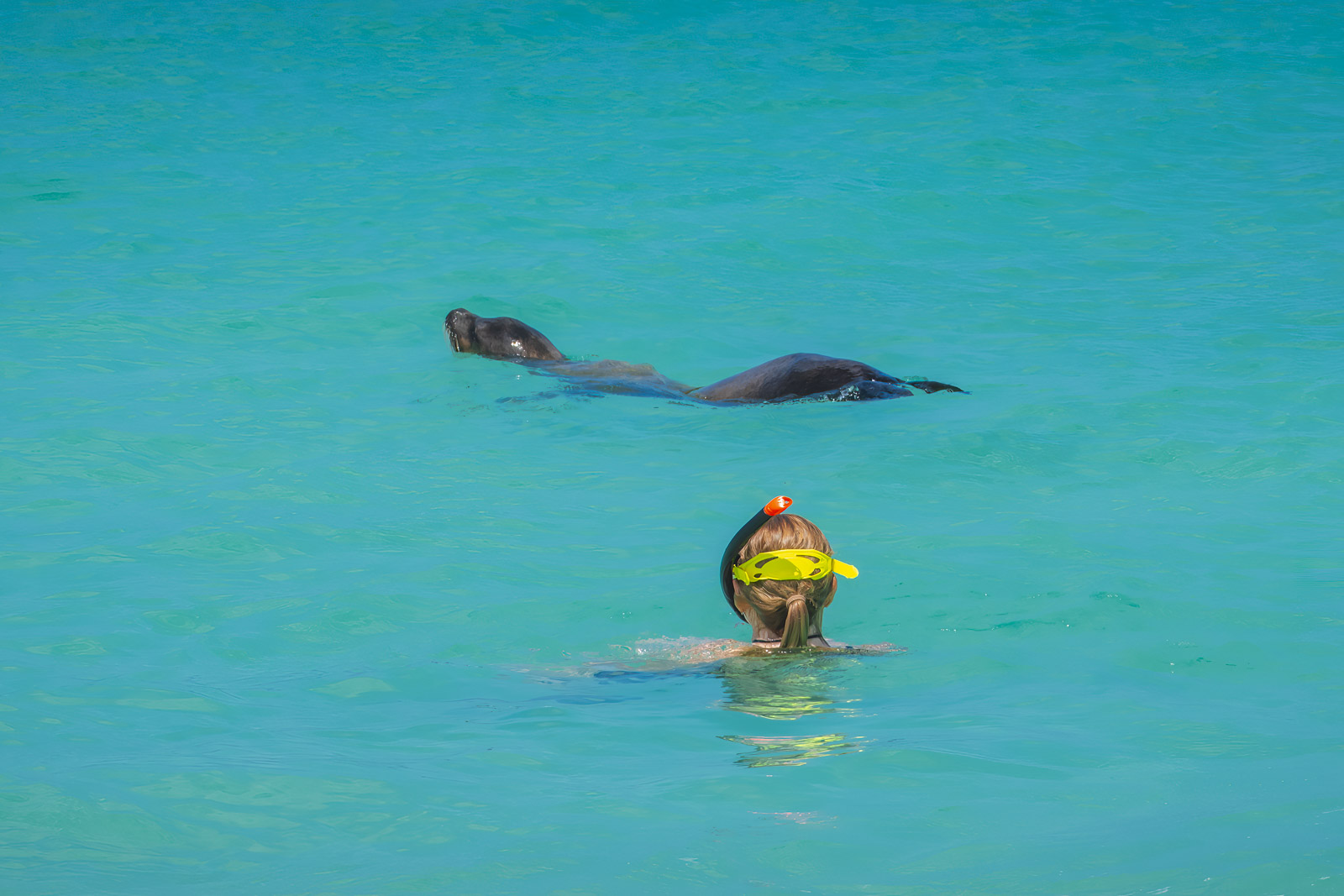
We met the expedition team on deck to get all of our gear, and after a frenzy of trying on suits and fitting our find, we were ready to go. This was our snorkeling gear for the next week, and we stored it on deck with our room number on it so we didn’t smell up our rooms. Wet suits can be pretty smelly.
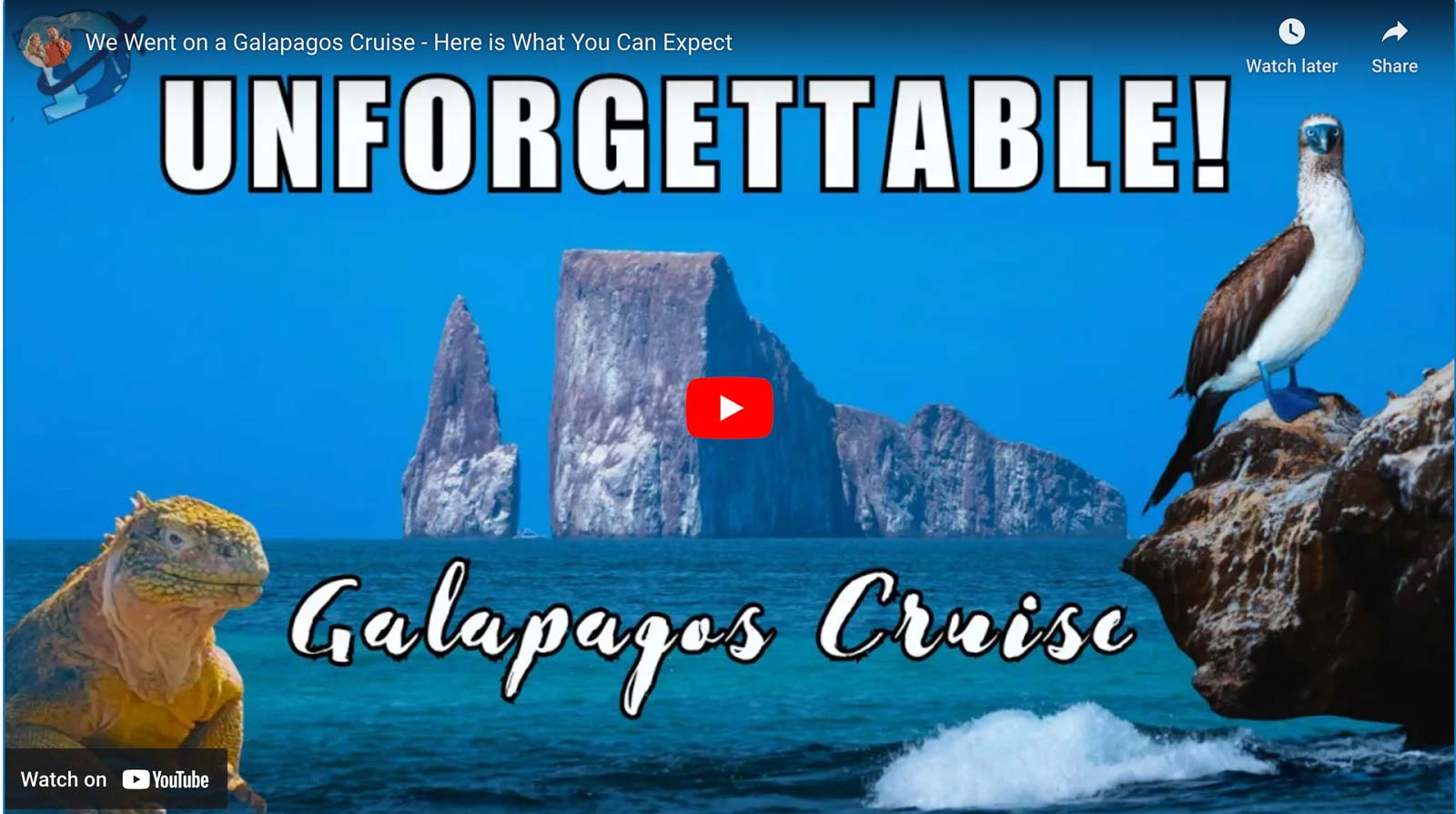
Today was also the day we explored San Cristobal Island. Starting with a panga ride, we had a glorious sunny day on the water, viewing sea arches, sea cliffs, and the magnificent Kicker Rock. The last time we were in the Galapagos Islands, we snorkeled at Kicker Rock and it was an amazing place to view Galapagos sharks.
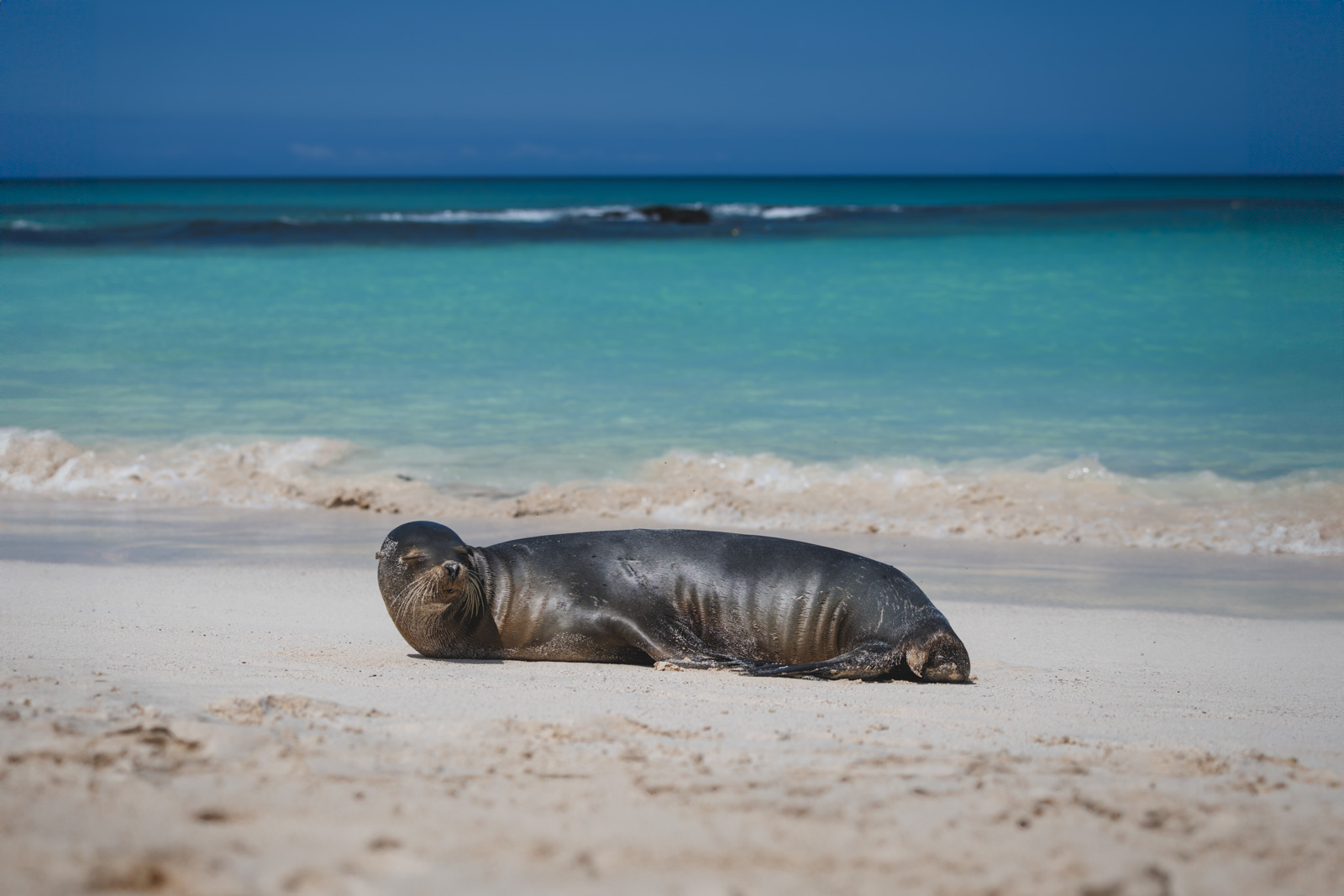
Morning Panga Tour to the beach and snorkeling for the first time. The water was warm and blue and this gave us a good chance to test out our snorkeling gear from the shore before our upcoming deep water snorkels.
Giant Tortoise Breeding Center
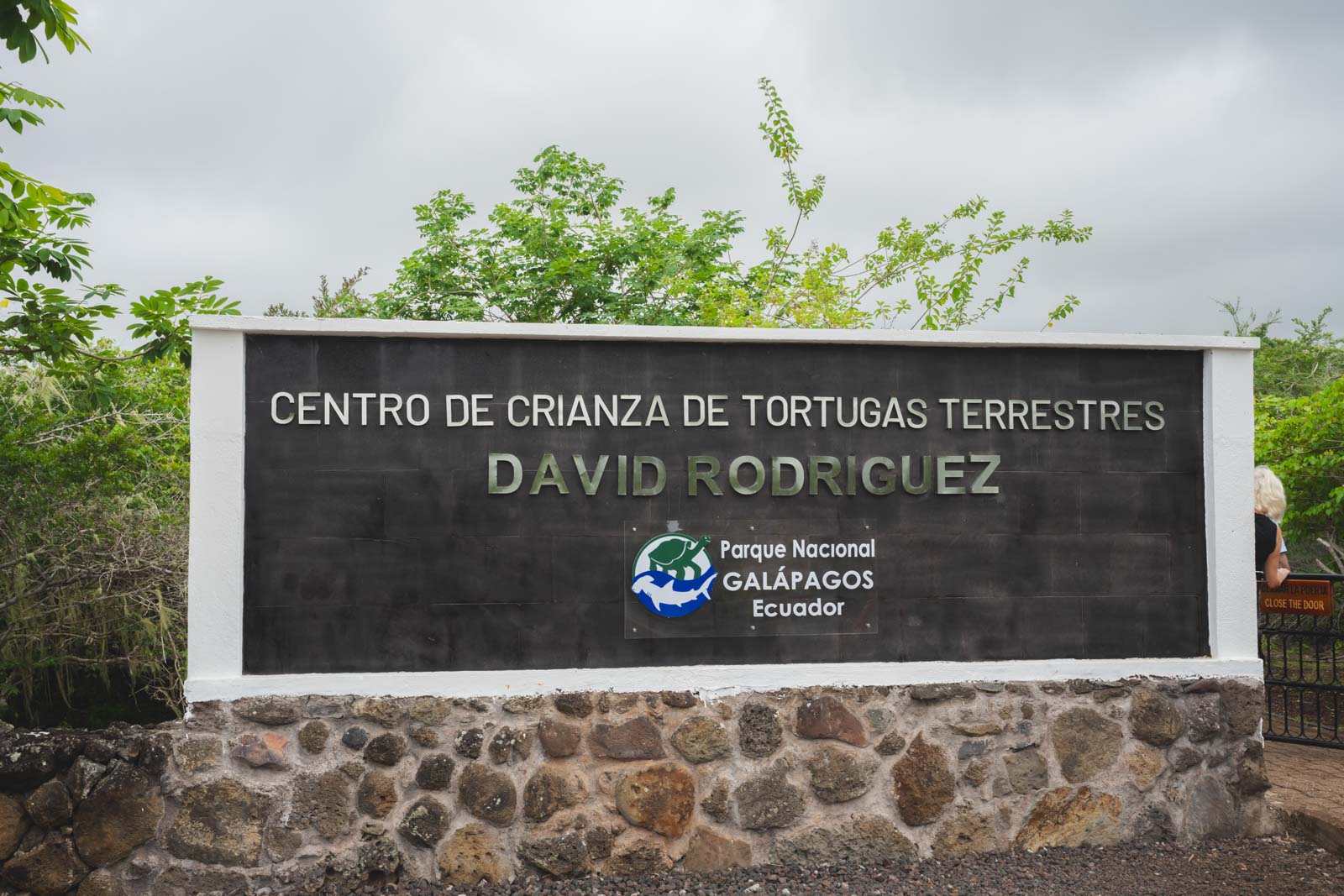
There is no doubt that the most iconic wildlife on the Galapagos are the giant tortoises. The friendly giants live to 200 years old and can weigh up to 800 pounds! We had three different opportunities to see giant tortoises with our first stop being the newest tortoise breeding center on the Galapagos Islands, the David Rodriguez Centro de Crianza de Tortugas Terrestres.
We had the chance to see baby tortoises and juveniles in their natural habitat. There were 15 species of giant tortoises on the Galapagos Islands but today there are only 11. However, they will soon be announcing that they found another species that survived extinction so there are now 12.
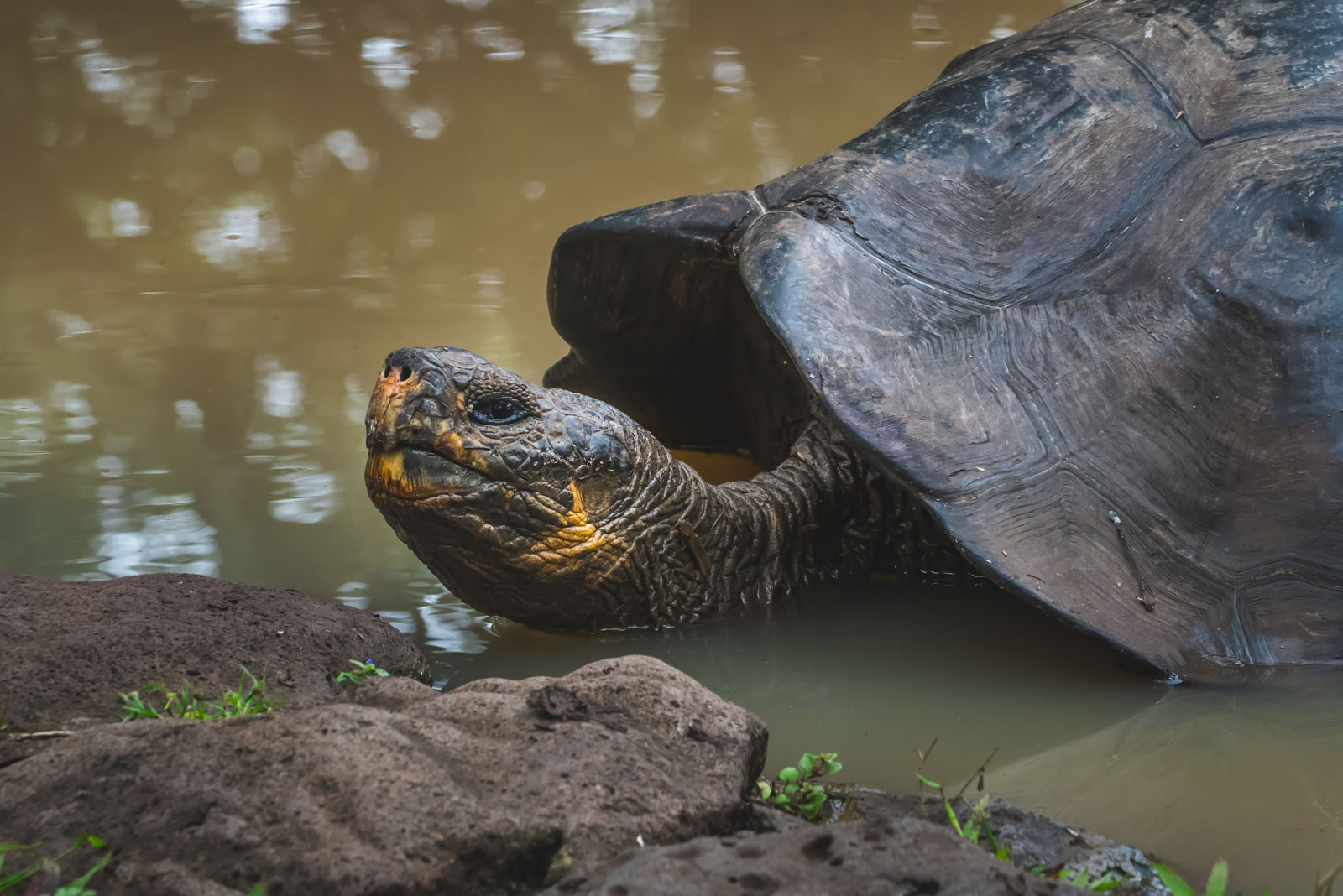
Tortoises were nearly wiped out due to whalers and pirates taking tortoises to their ships to use as food. Because giant tortoises can go for so long without food and water, they made excellent food for humans with little access to meat.
Sadly, their numbers dropped significantly. At one time there were nearly 100,000 giant tortoises on the Galapagos. Today with all of the conservation efforts, their numbers have climbed to 20,000.
San Cristobal Downtown
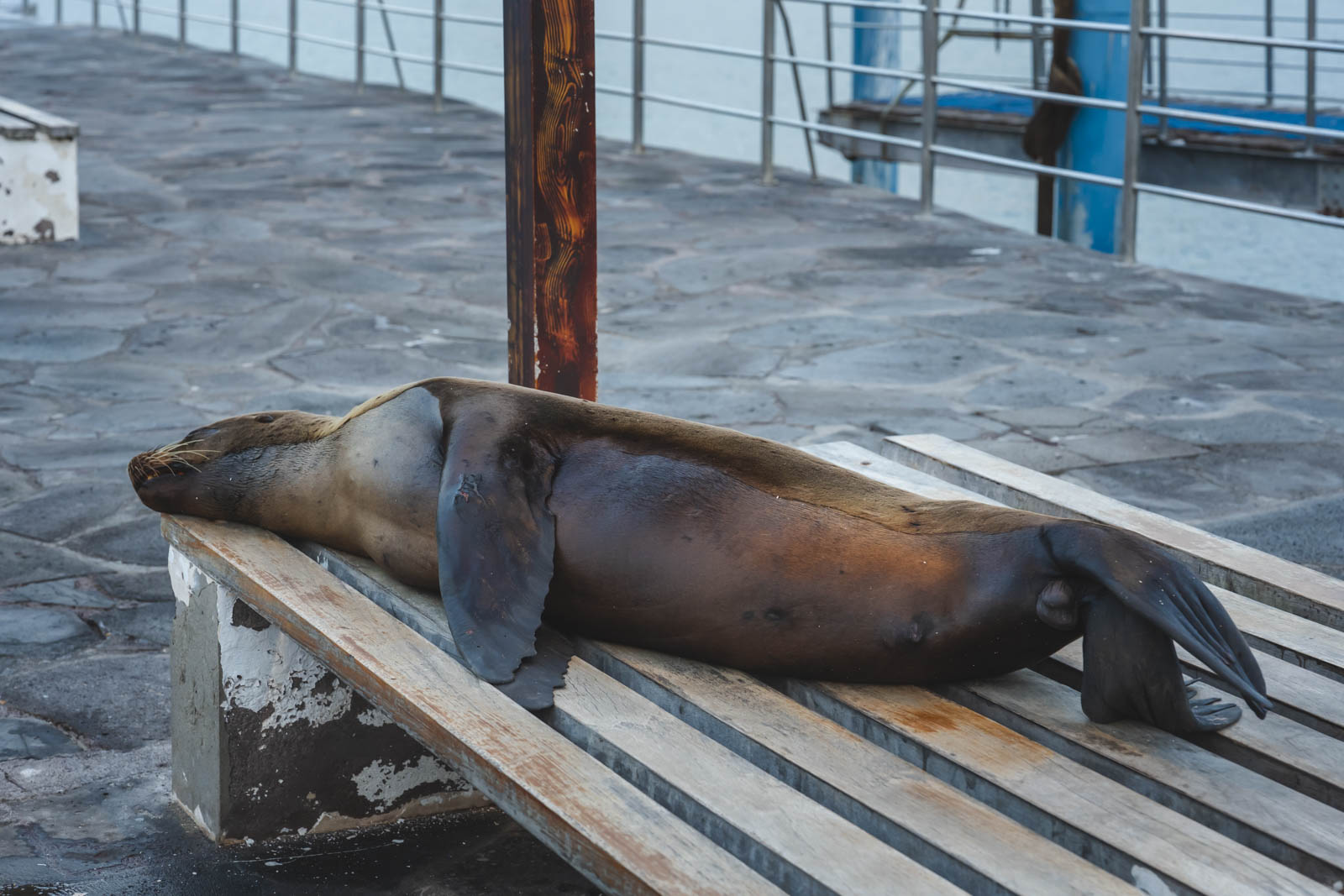
It was then free time to enjoy downtown San Cristobal. This town is famous for the colony of sea lions that bask on its shores. Here you’ll find sea lions on the sidewalks, on park benches, and even in boats. They have fenced off the town since the last time we were here so they now have to work a bit harder to get into town, but some still sneak through, and it is so cute.
Day 3 – Santa Fe Island
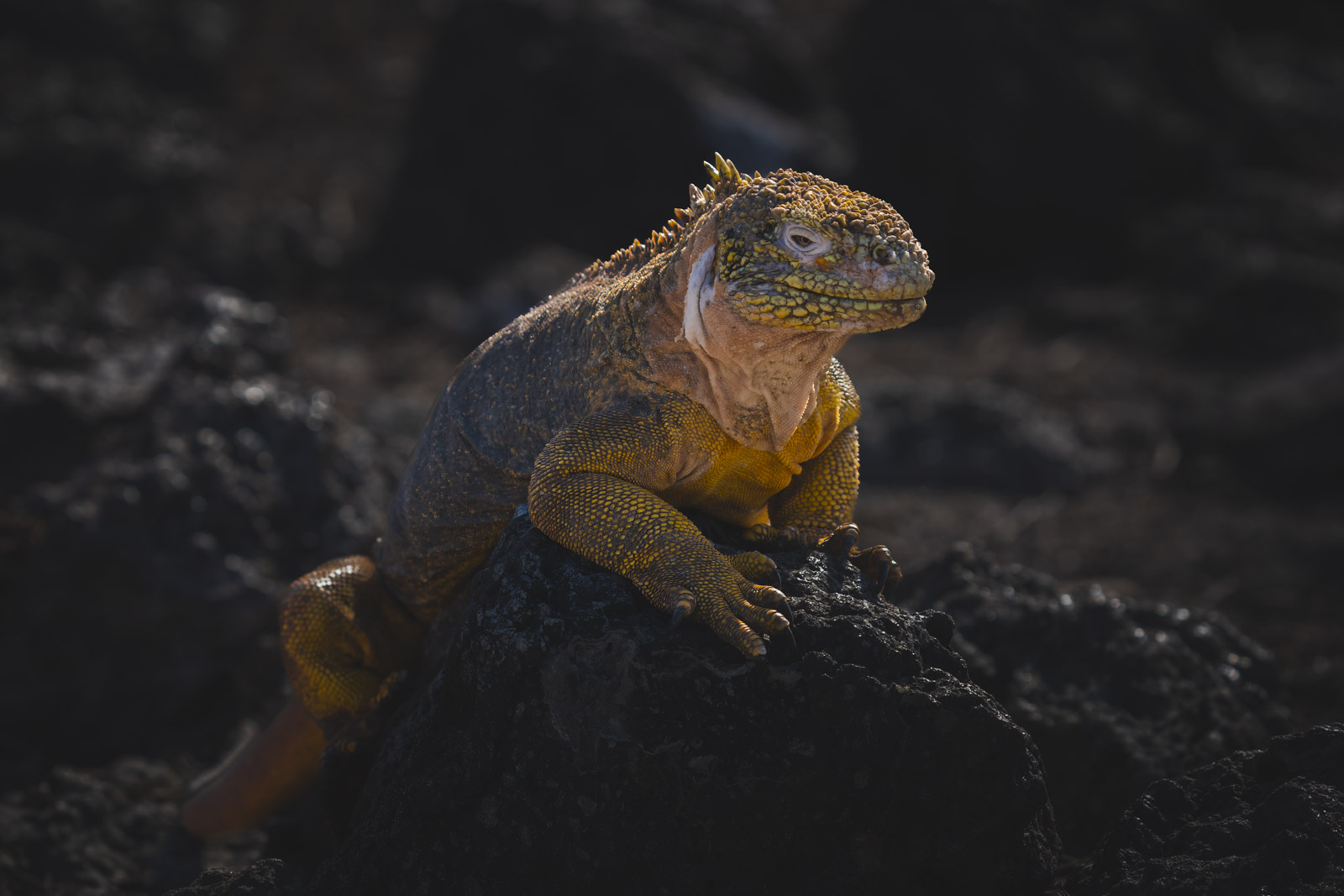
The day we started with a Panga Ride to the beach with plenty of sea lions in the water. After riding for about 30 minutes around the island, we enjoyed a wet landing to go for one of our best walks on the cruise. We broke into groups of 8 – 12 people for a long, leisurely hike around this island.
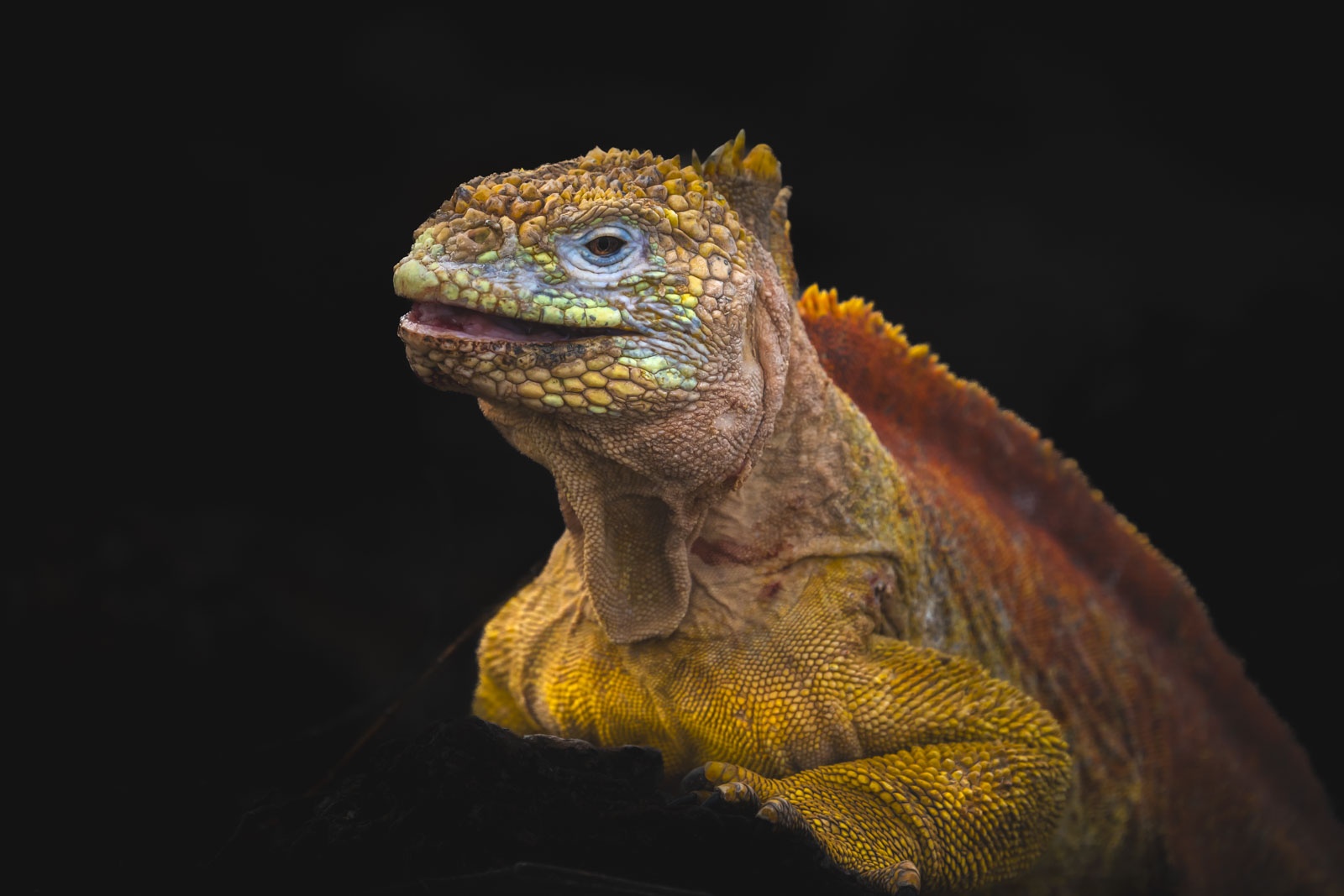
There are beautiful cacti on the island and many land iguanas. Santa Fe Land Iguanas (aka yellow – or smiling iguanas) were scattered throughout the dry, rocky landscape and put on a show for us. We even saw birds mating and some people spied on iguanas sparring.
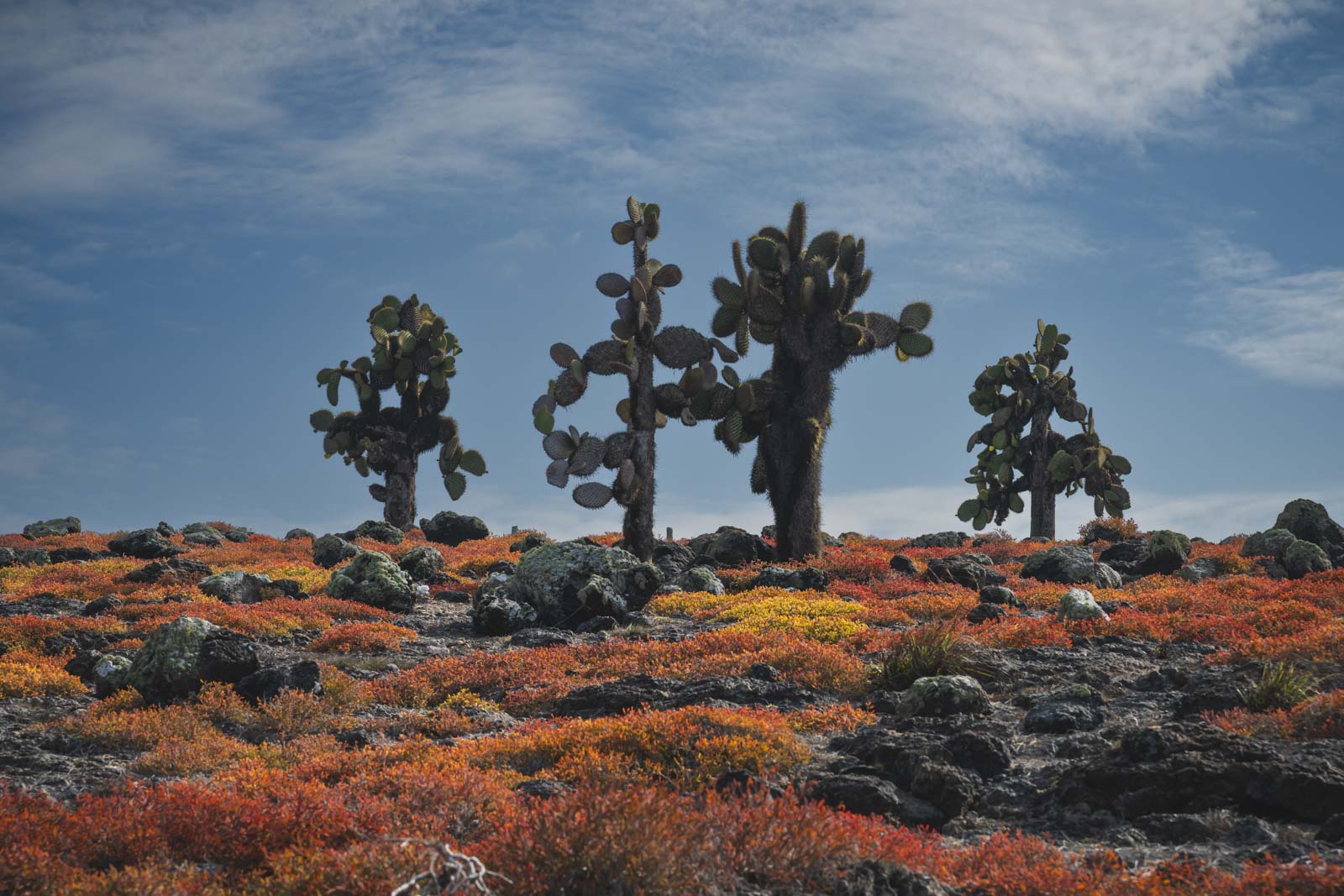
After lunch, we had a photography chat to learn how to take better photographs with our iPhones and cameras as our ship moved to the next location. There is never a dull moment on a Galapagos Cruise, but you are free to relax as much as you like. Not everyone attended the talks and not everyone attended the hikes. You can be as busy or as relaxed as you wish. Remember, it is your vacation!
Deep Water Snorkeling
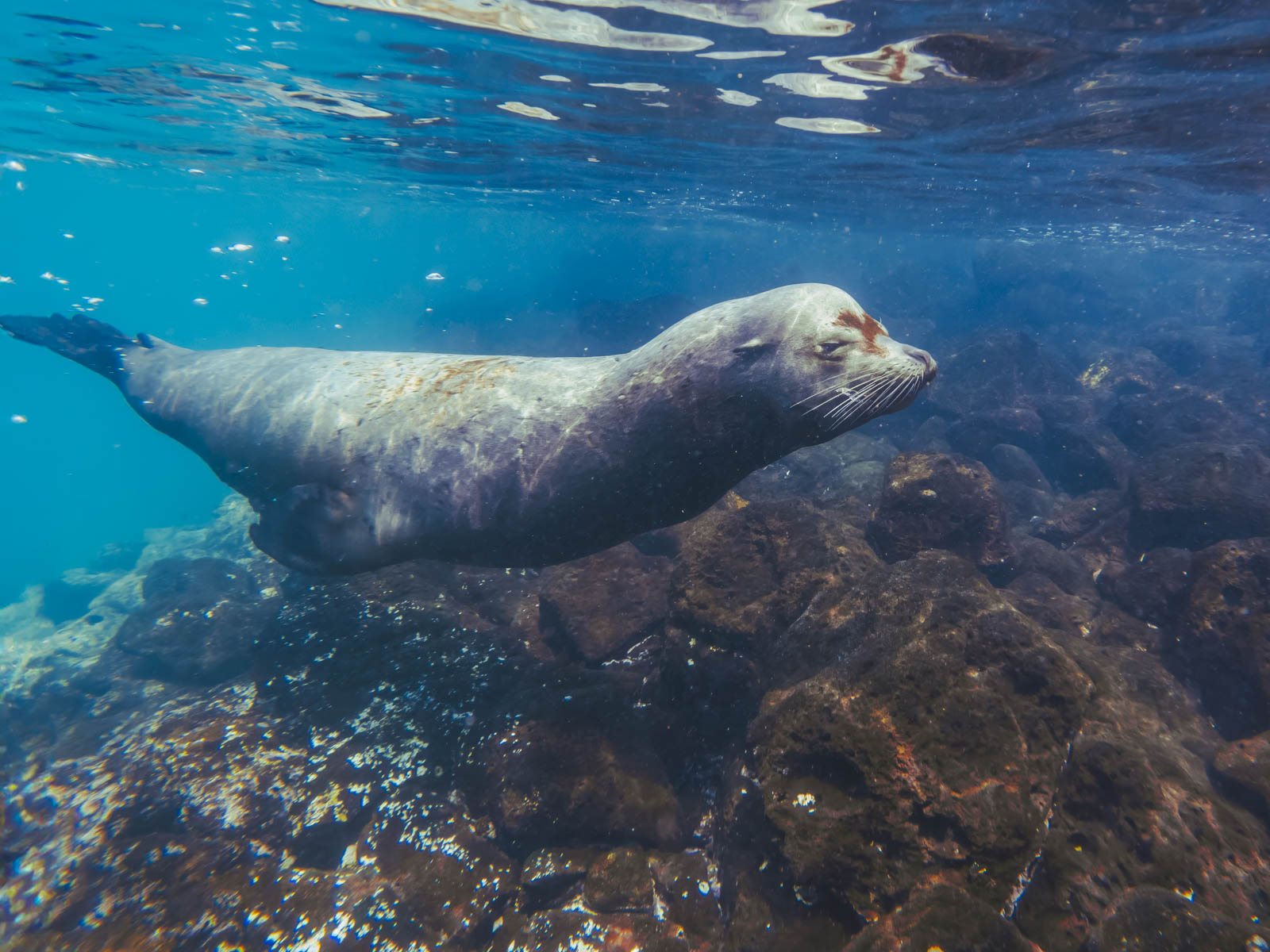
The snorkeling at Santa Fe Island was exactly what you would expect of snorkeling in the Galapagos. We played with sea lions as they blew bubbles in our faces and zipped around us in circles. They seemed to be playing a game of “let’s see how close we can get to the humans without actually touching them.”
After playing with them for some time, our guide, Claudia, told us that sea turtles were nearby. We swam to watch them gracefully swim through the water and low and behold, two spotted eagle rays swam into view.
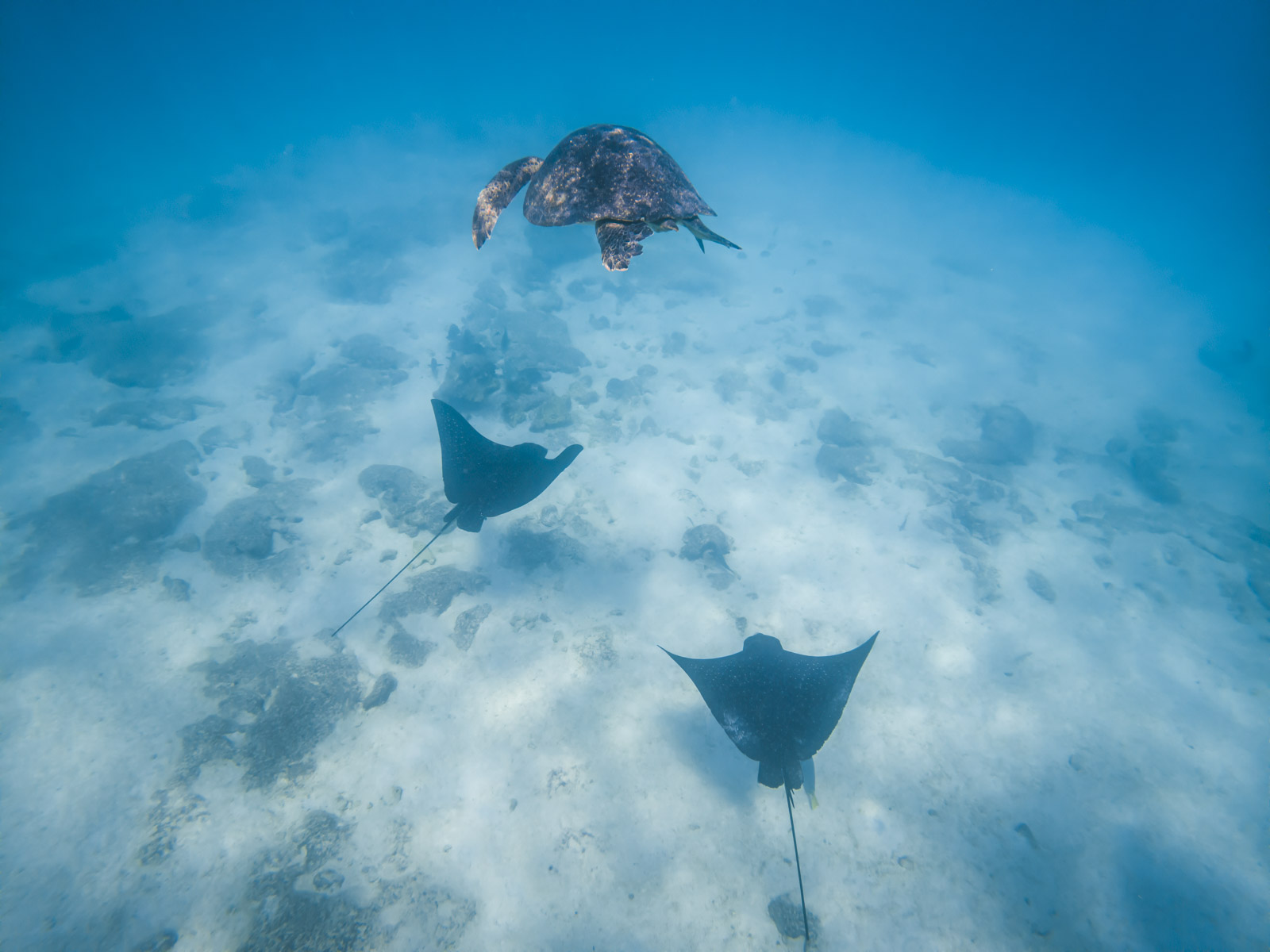
The marine life go about their business without a care in the world, and instead of snorkelers needing to search and follow sealife, they come to you! We had the chance to swim with them for a bit and it was extraordinary to watch them fly through the water like soaring birds..
The water was crystal clear, warm, and calm. We spent more than an hour enjoying the colorful fish, marine iguanas, and underwater world.
Day 4 – Santa Cruz Island
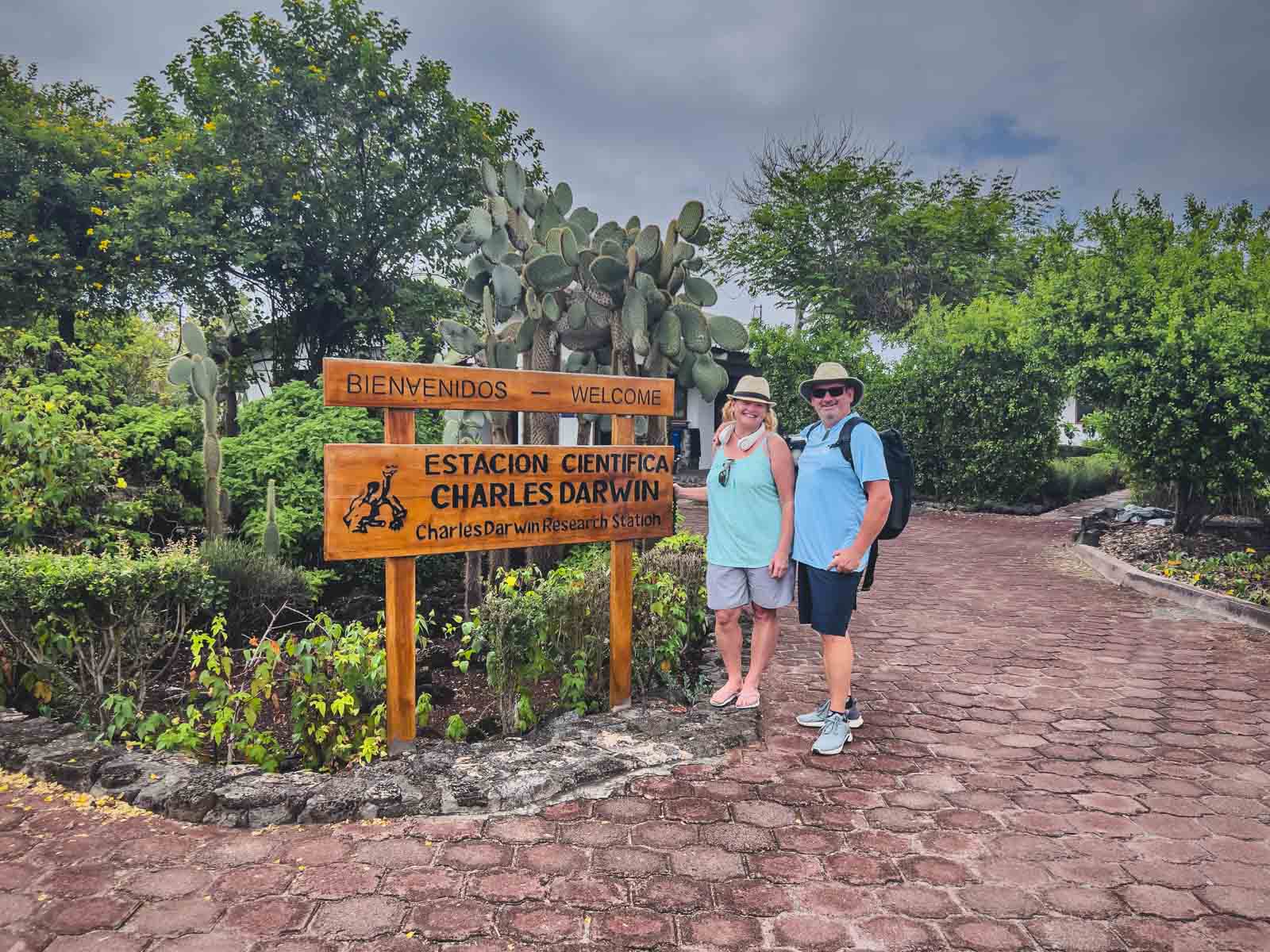
Santa Cruz Island is famous for the Charles Darwin Research Station. This tour took us to another giant tortoise breeding center, which focused on education. We learned all about the evolution of the Galapagos’s animals, its history, and, of course, Darwin’s theory of natural selection.
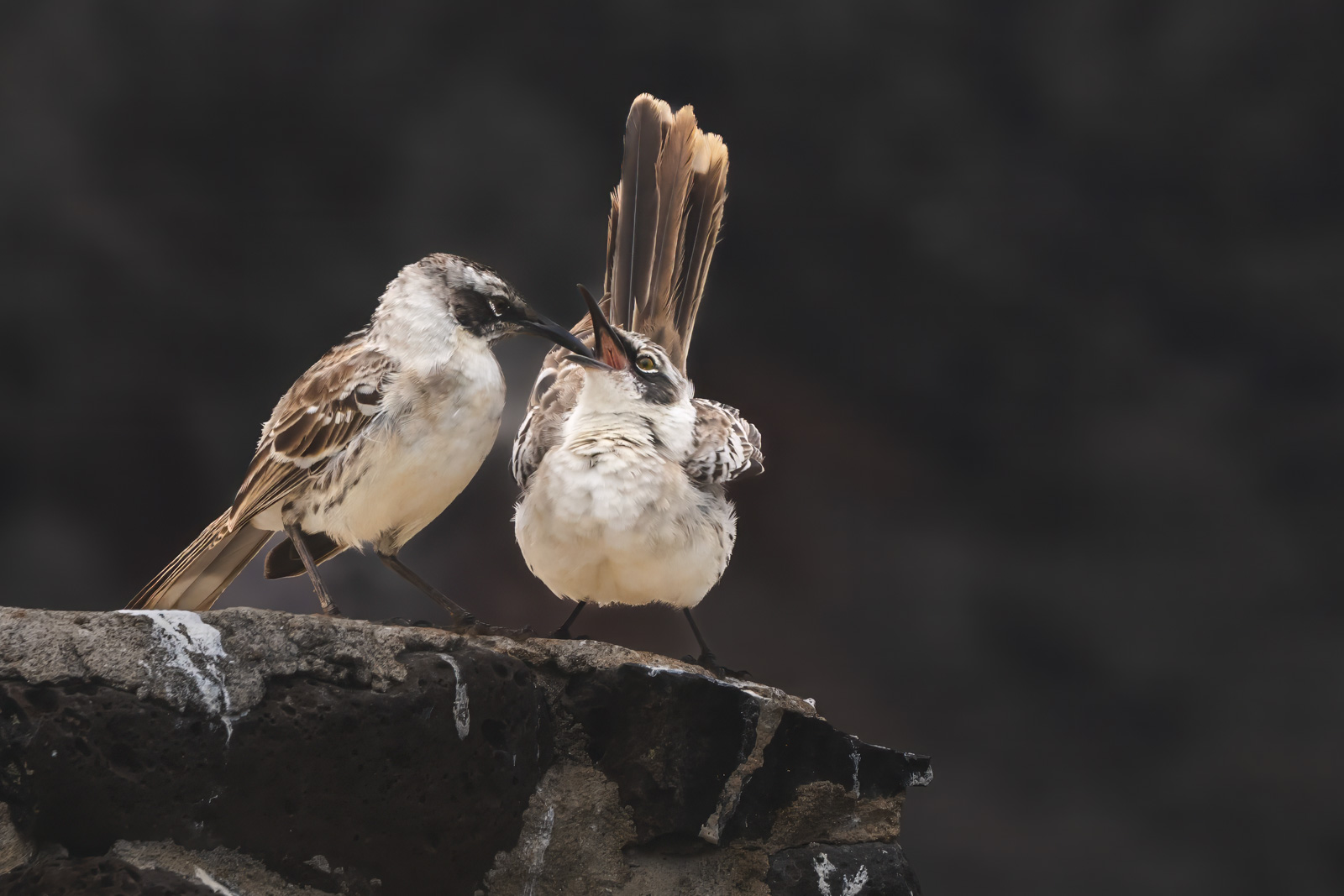
We even saw Darwin’s finches; however, we learned that it was the mockingbird that was important in discovering his theories, and the fact that people say it was the Galapagos finch is a myth. It was still cute to see them, though.
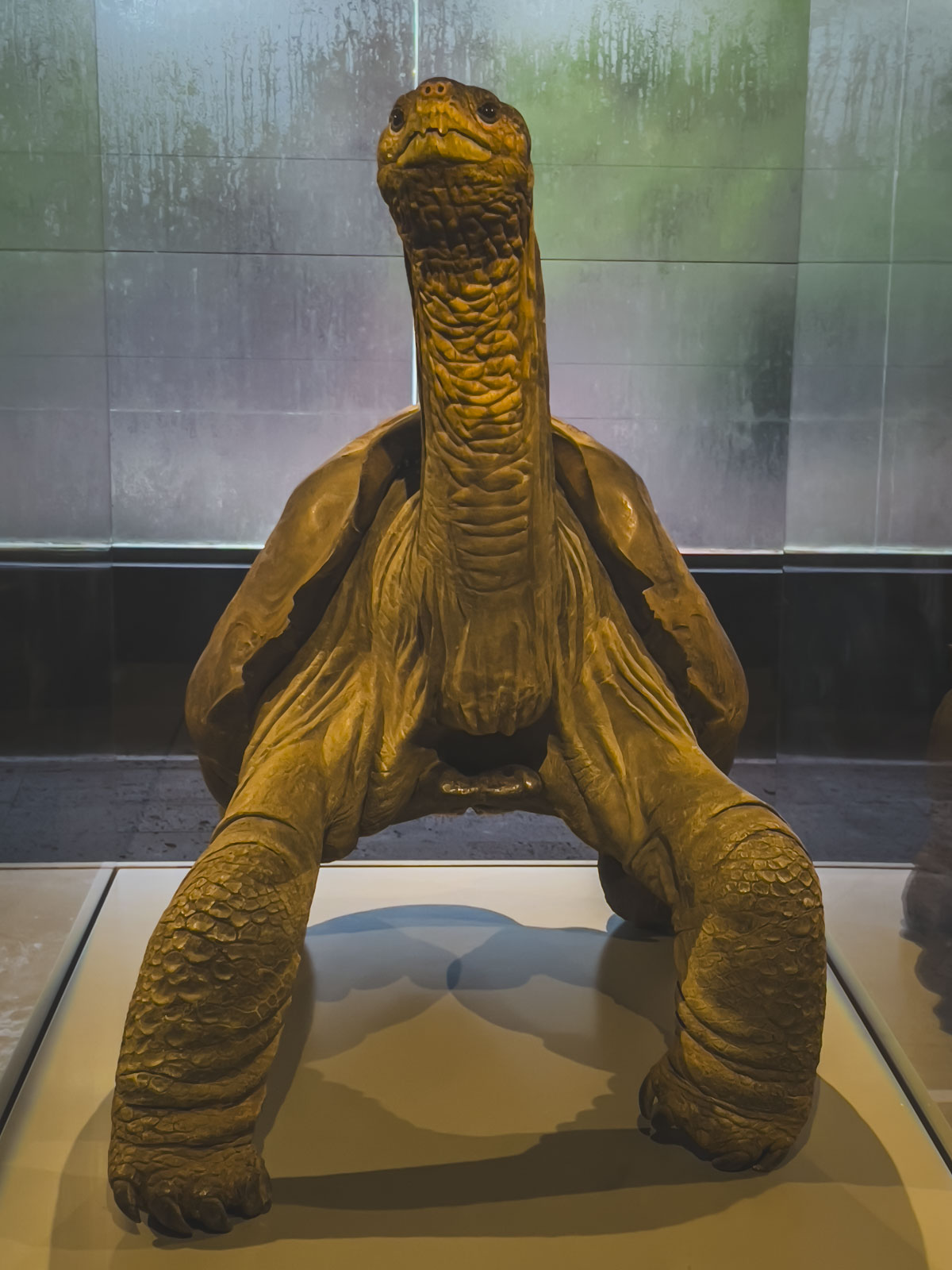
It was then time to pay our respects to Lonesome George. This tortoise died in 2012 but remains a reminder to conserve and preserve. He was the last of his species of Giant Tortoise, and even with all the efforts put forth to help him breed, he never did produce offspring, and when he died, his species died with him.
Dave and I had the opportunity to see Lonesome George in 2012 when we first visited the Galapagos Islands. He lived a happy, long life, and even though he didn’t produce offspring, he did have a good time trying!
Rancho Manzanillo
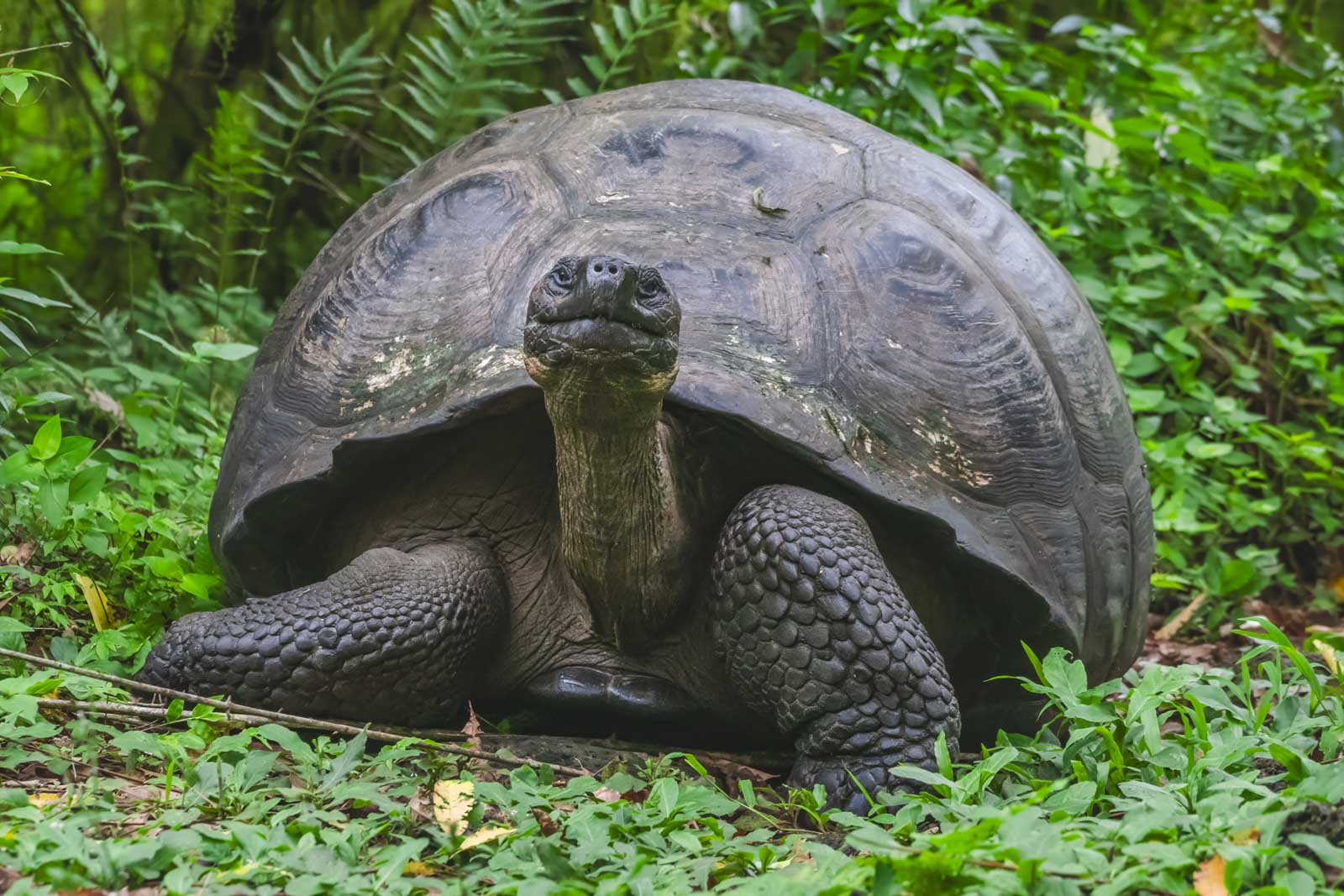
After learning about the tortoises and seeing them at the research center, we finally saw the giant tortoises in their natural habitat. Driving up to our next destination, we saw tortoises on the road, tortoises in the fields, and tortoises beside cows; they were everywhere.
We walked through the grounds and saw hundreds of giant tortoises going about their daily lives. We even saw a couple mating, soaking in ponds, and chewing on leaves. It was uplifting to see how they are now thriving in today’s environment.
Cultural Experiences
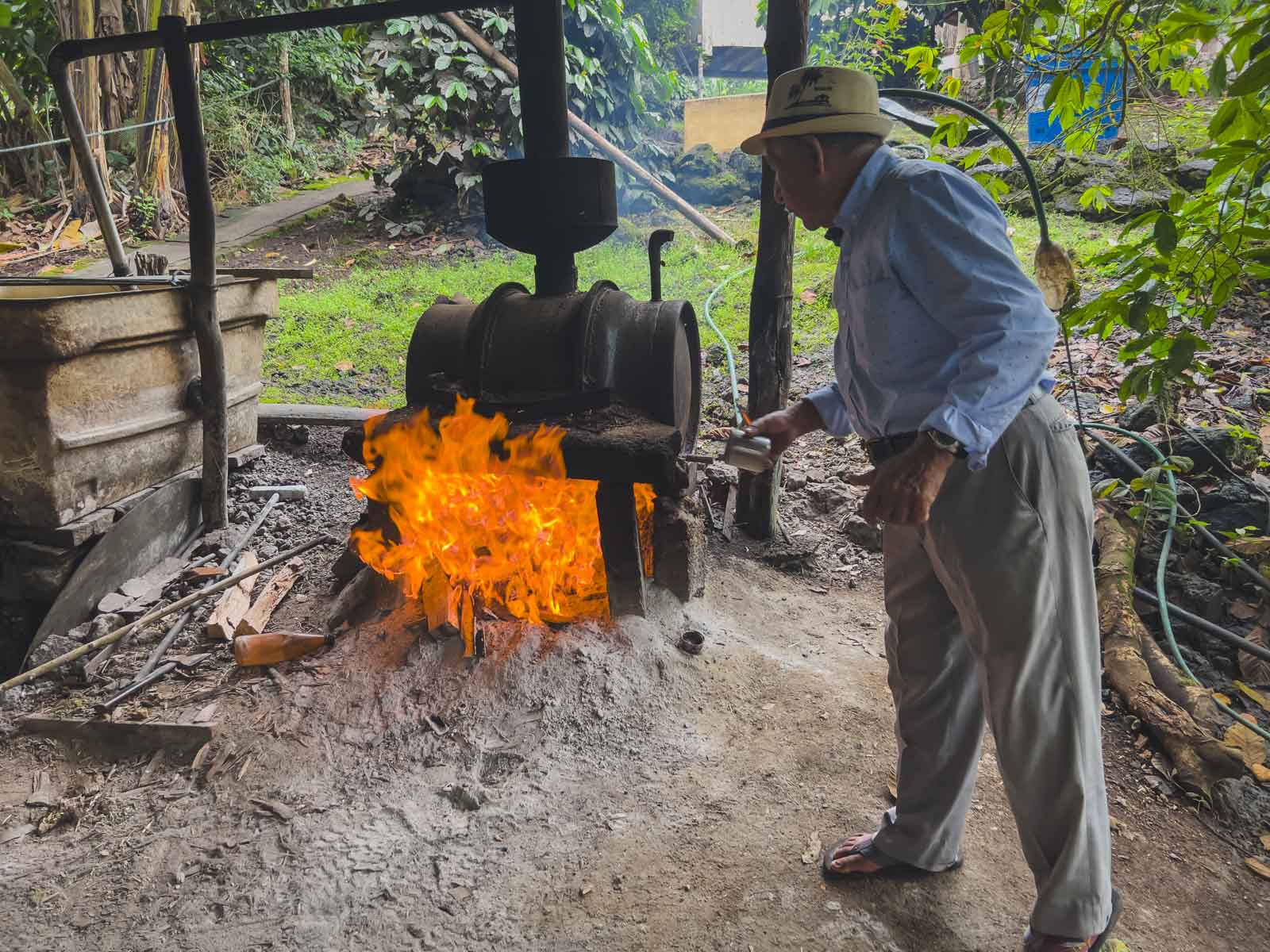
Many people don’t realize that the Galapagos Islands are inhabited. Although 97% of the islands are national parks, 3% have towns, residents, and businesses. We stopped at a distillery for a tour of the farm and presentations on how spirits are fermented and how sugar cane is harvested.
We were surprised by how much we enjoyed this part of our cruise. We were here for the wildlife and landscape, but learning about the culture and meeting the locals was one of our favorite excursions. We sampled Cacao, sugar, coffee, and 50+ proof moonshine.
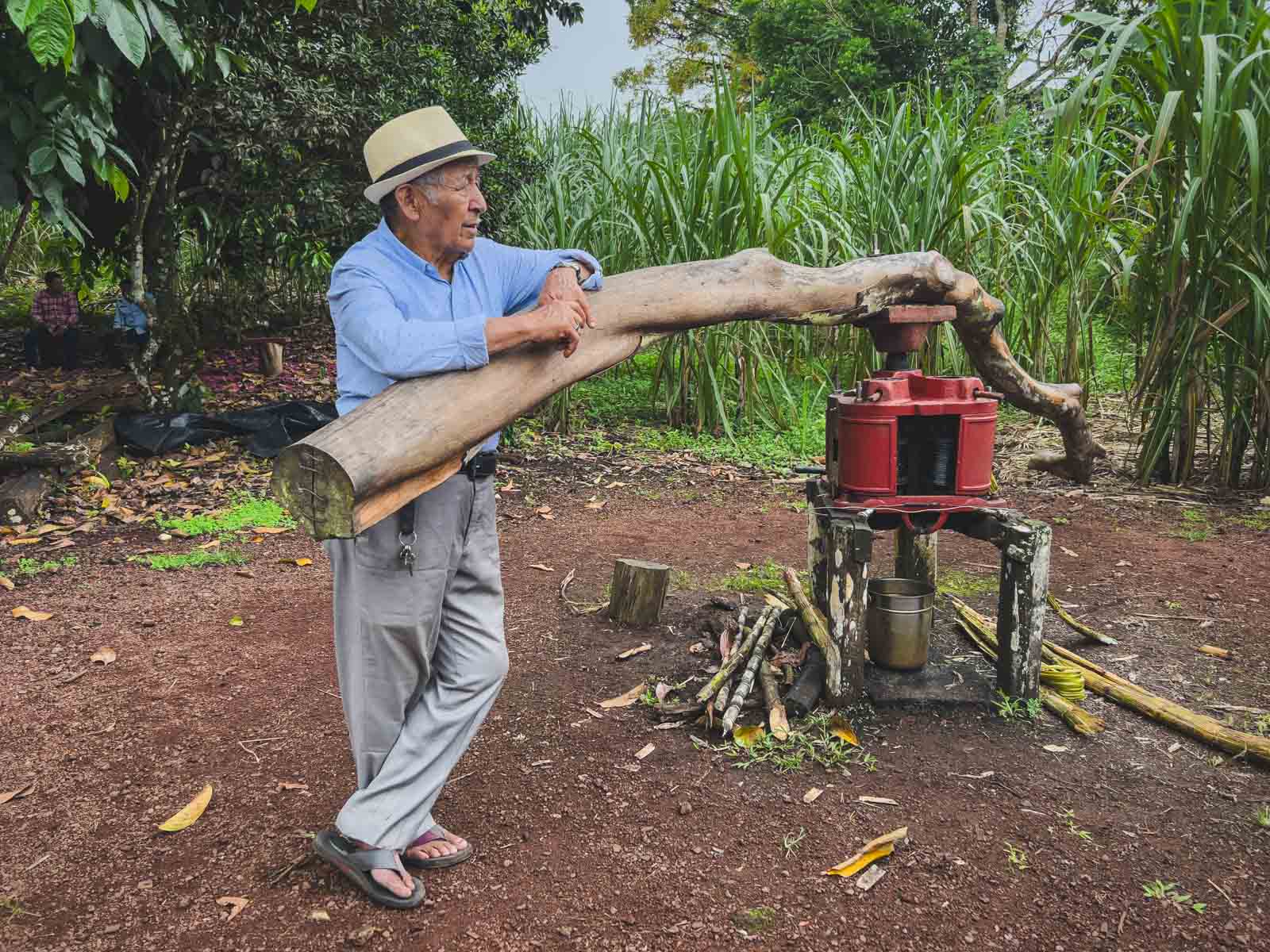
Today, the government requires Galapagos cruises to stop at local businesses and I am glad that they do! To visit a destination and not understand the local communities is only half a trip. I went away with fond memories of our time and a bit of a buzz from the shots of moonshine!
Day 5 – Espanola Island
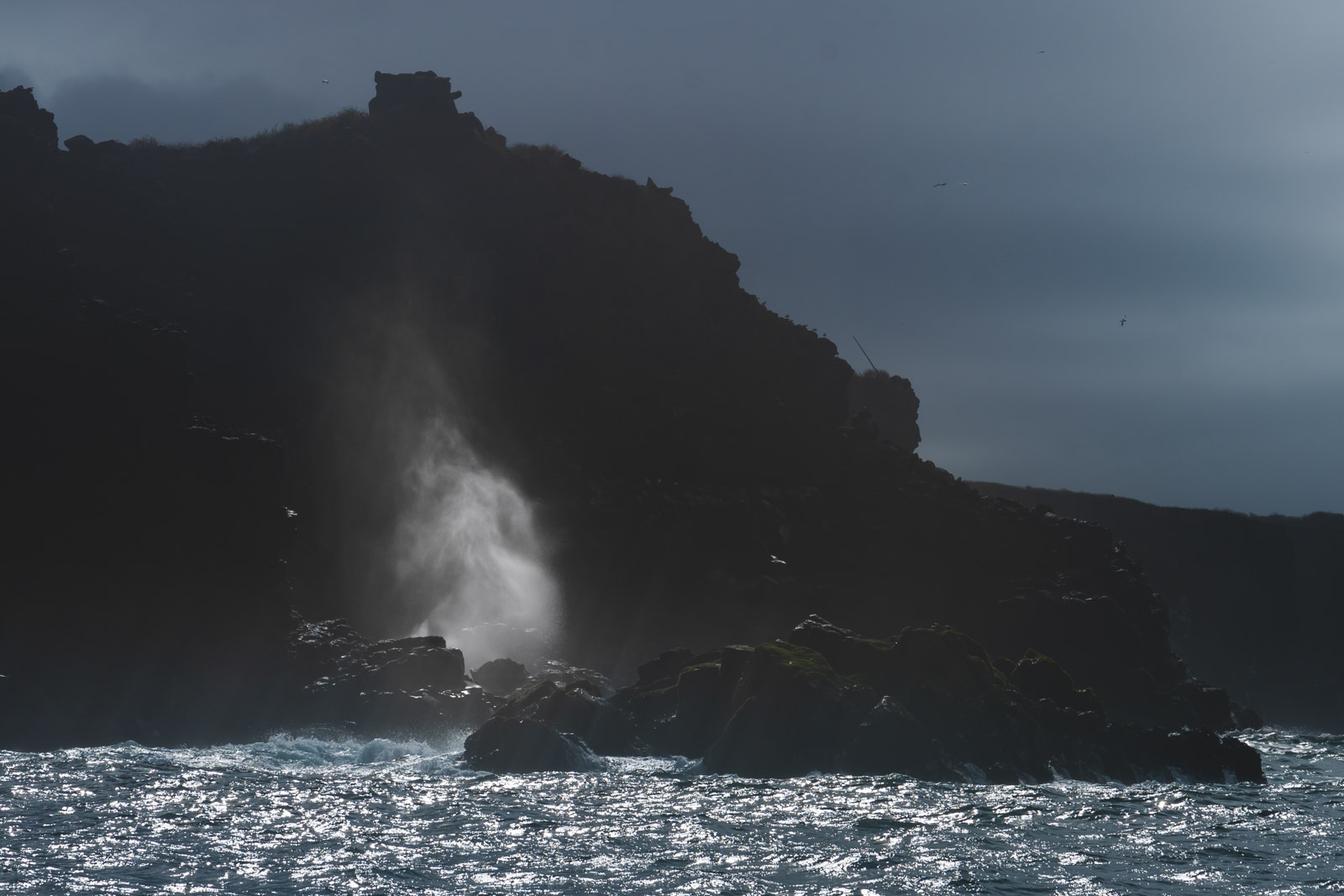
Today was another spectacular day with panga rides, science corners, sea lions, Blue Footed Boobies, and an abundance of nature but what made today different was our visit to the bridge to visit the captain.
HX Expeditions has an open-door policy that allows you to visit the captain anytime. All you need to do is ask the front desk if it is a good time, and they will notify the bridge that you’ll be stopping by.
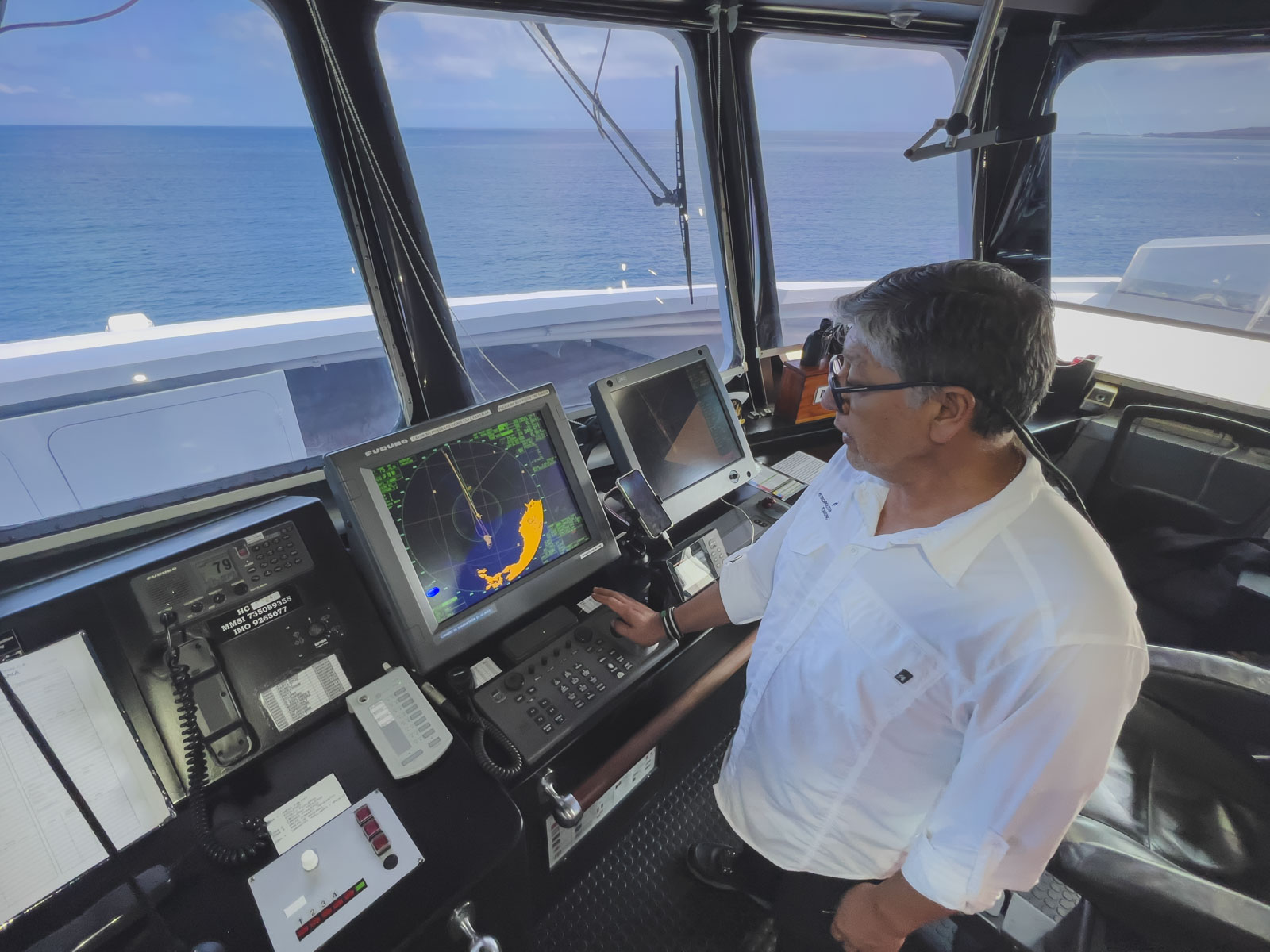
The captain was welcoming and informative, showing us how the crew navigates through the islands, the equipment and mapping, and the daily life of being a captain. It was fascinating.
It is very cool to hang out on the bridge and watch the officers effortlessly sail the ship through an unforgiving environment. We highly recommend you take it if you can go to the bridge!
Adventurous Days
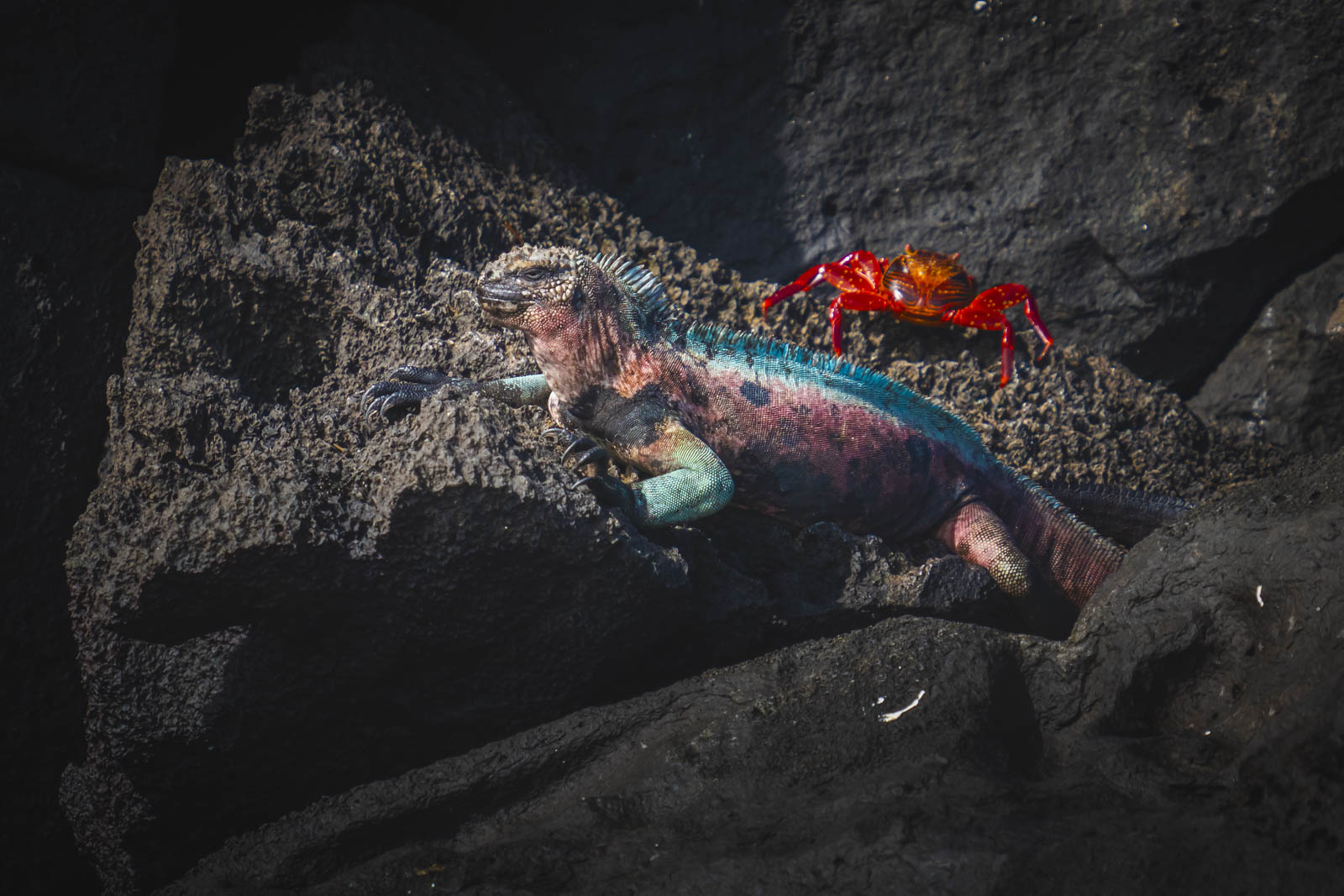
Like our usual days on the SM Santa Cruz, we were up at the crack of dawn snorkeling, taking panga rides, and hiking. The expedition team’s goal is for passengers to encounter at least 11 of the Big 15 Galapagos animals, so we were out on the boats from morning to evening in search of these iconic endemic animals.
What are the Galapagos Big 15?
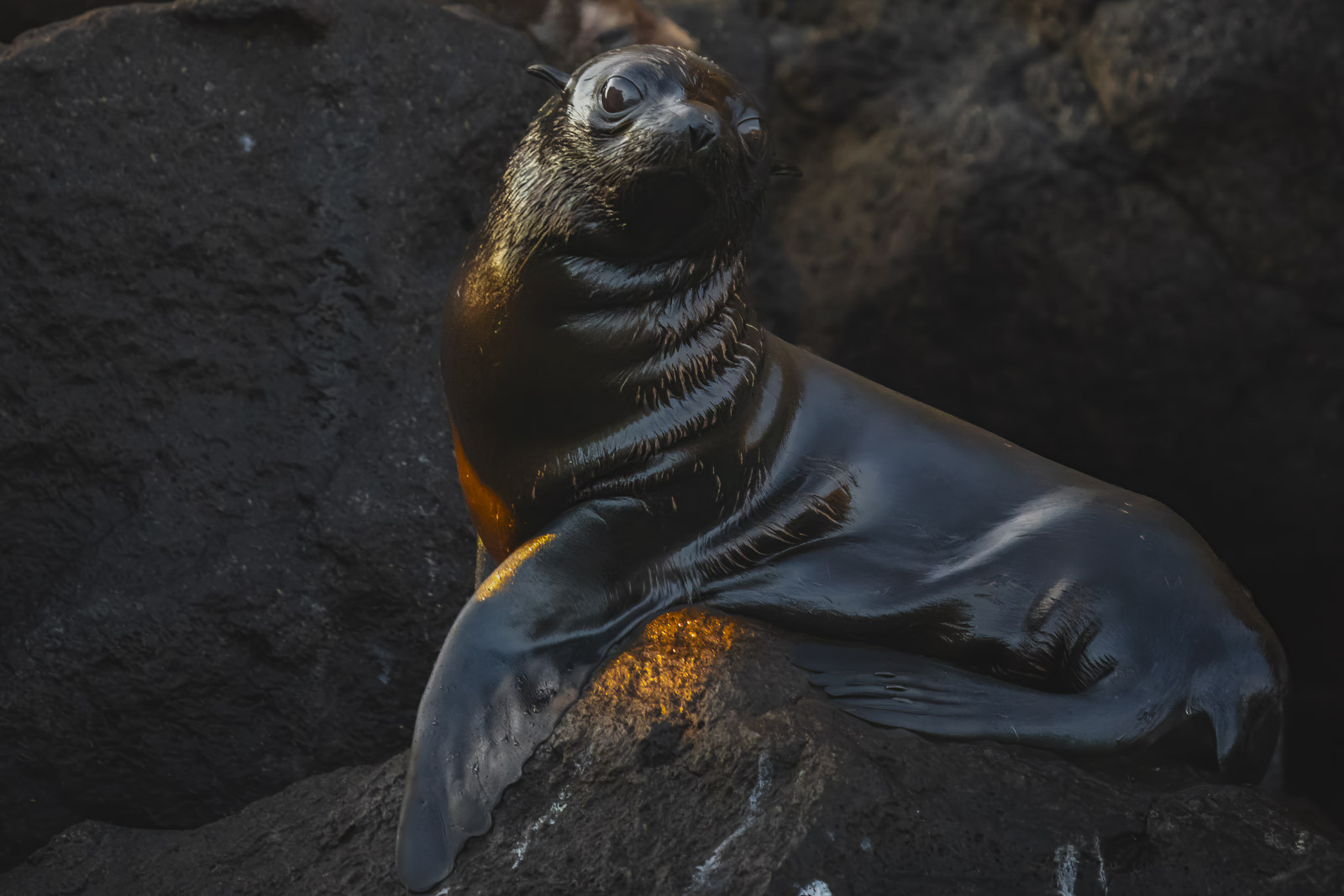
Galápagos Giant Tortoise, Blue-Footed Booby, Nazca Booby, Galápagos Sea Lion, Santa Fe Iguana, Land Iguana, Greater Frigate Bird, Galápagos Hawk, Galápagos Fur Seal, Galápagos Albatross, Galápagos Flamingo, Galápagos Penguin, Galápagos Hawk, Red-Footed Booby, and Flightless Cormorant.
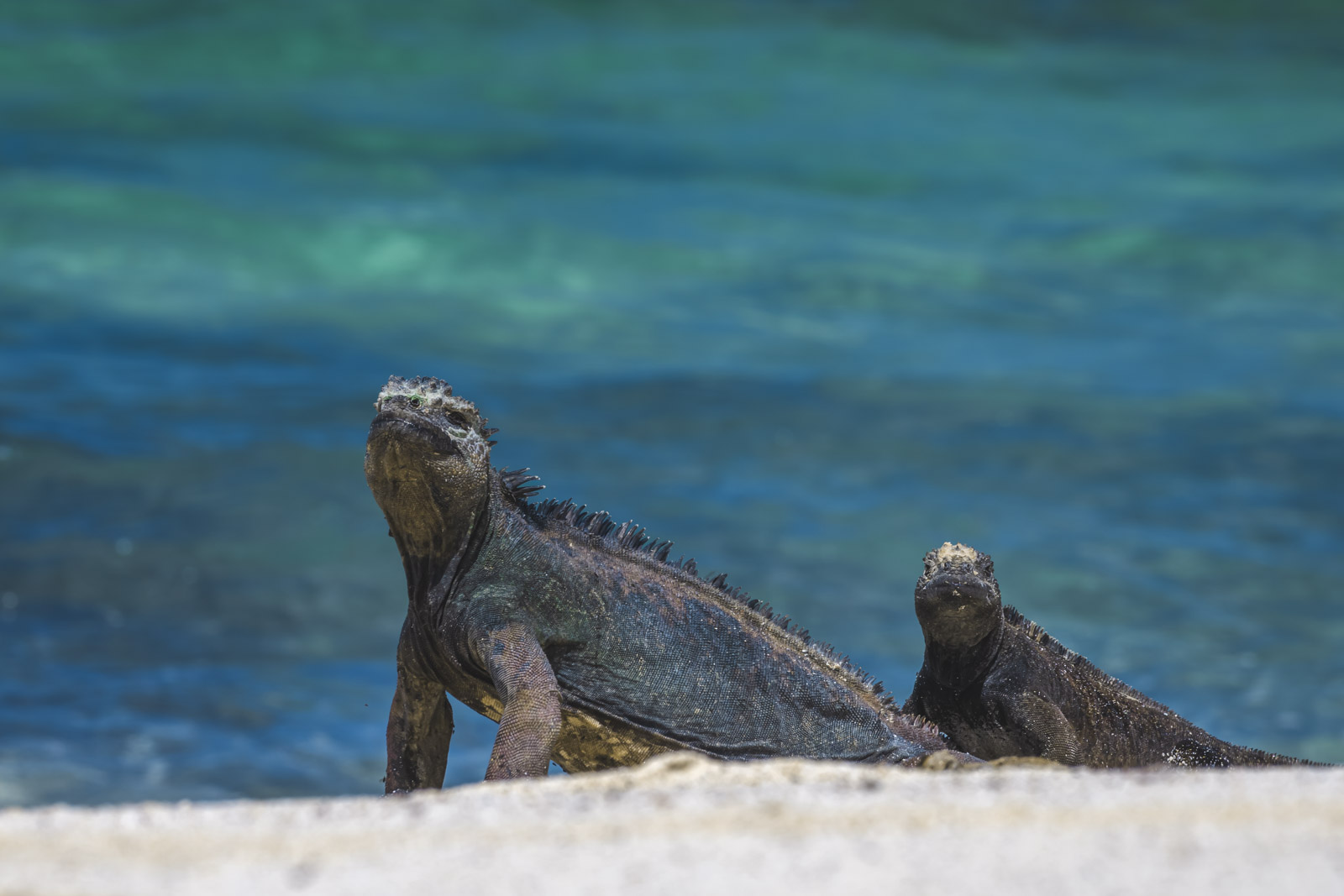
We saw most on this cruise except for the Galápagos Penguin, Galápagos Hawk, Red-Footed Booby, and the Flightless Cormorant.
Day 6 – Mosquera Island Eden Island
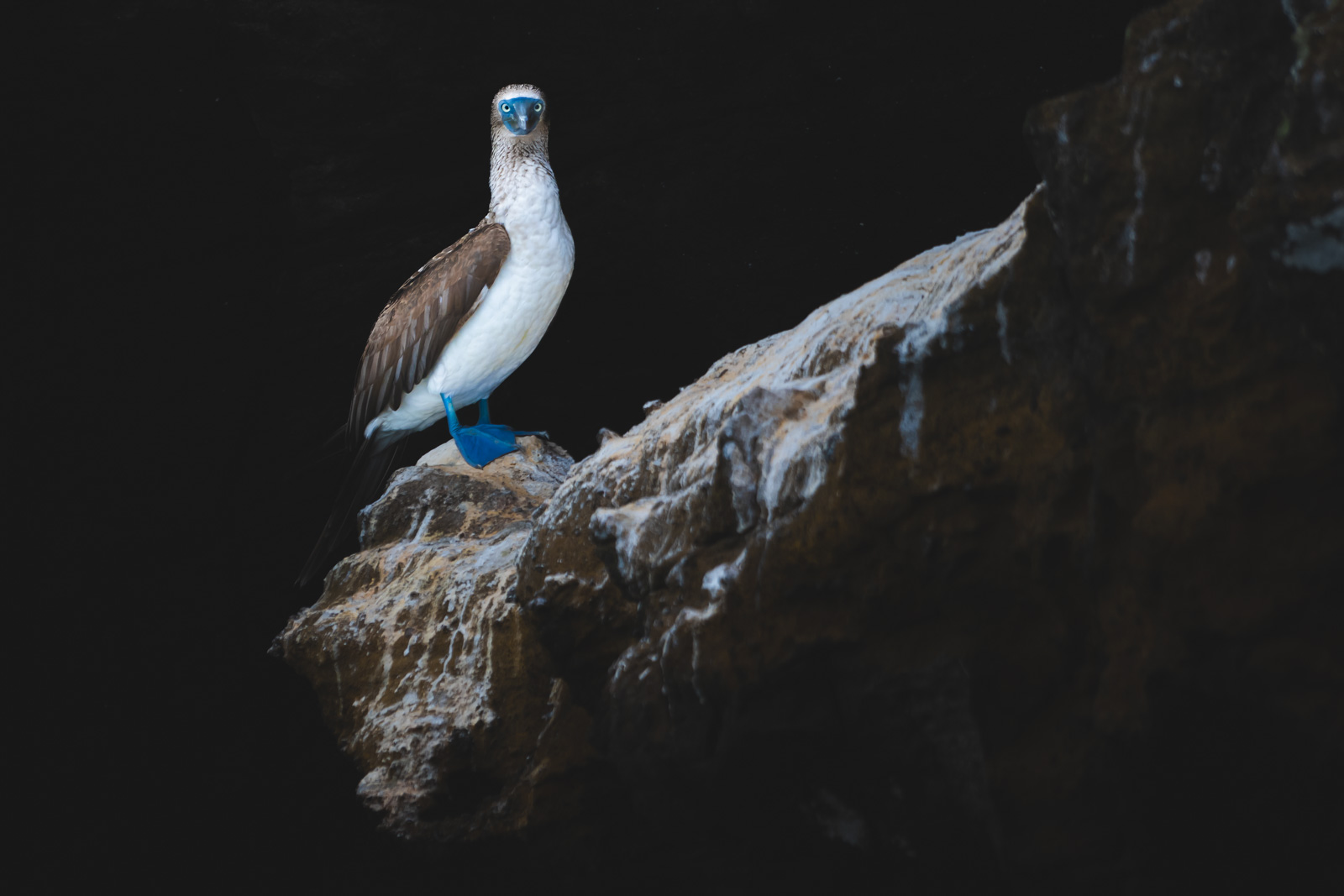
Snorkel with sharks
Our final day ended with our most intense snorkeling trip. Our guide had watched us all week to see how well our group could handle the water, so he took us out to deep and choppy waters where the sharks hang out. And after spending several days snorkeling in the Galapagos, we were relaxed and prepared. Plus, we had a guide in the front and back to keep an eye on us all as we snorkeled in the swift current.
We saw a hammerhead shark from the panga, but it didn’t show itself once we jumped in the water. we were lucky enough to see several sharks in the depths below.
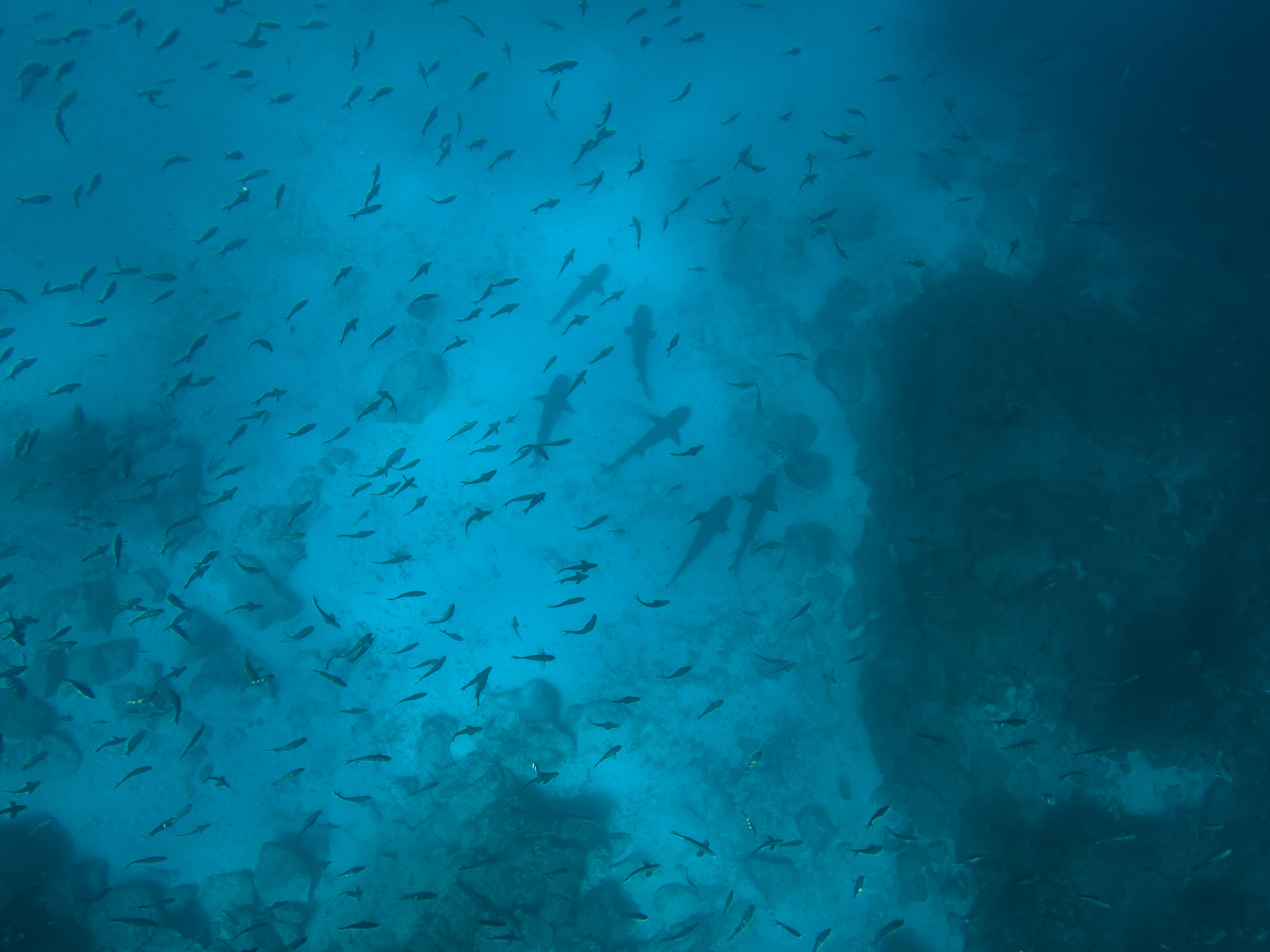
It was a spectacular feeling to jump from the pangas and instantly see half a dozen sharks below. There is nothing better than snorkeling in the Galapagos.
For those not comfortable snorkeling, there was an option for glass-bottom boat tours so everyone could enjoy the islands’ marine life. It truly caters to every level of adventure you are comfortable with.
Final Hike
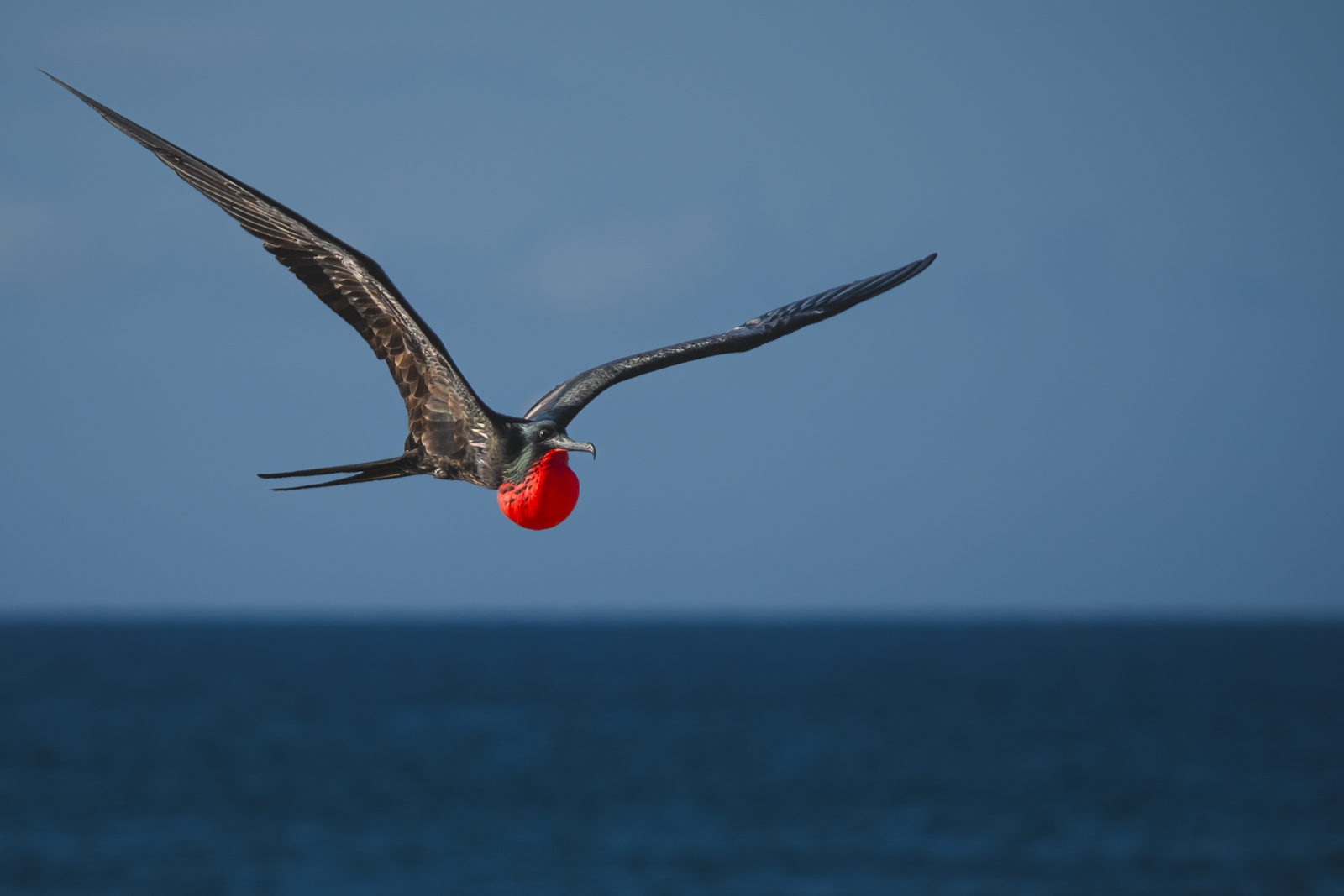
After one last hike to see Frigate Birds puffing out their red chests, Blue Footed Boobies doing their mating dance and spying on baby frigates and boobies, we took a panga ride back to the ship feeling completely satisfied with our time in the Galapagos Islands.
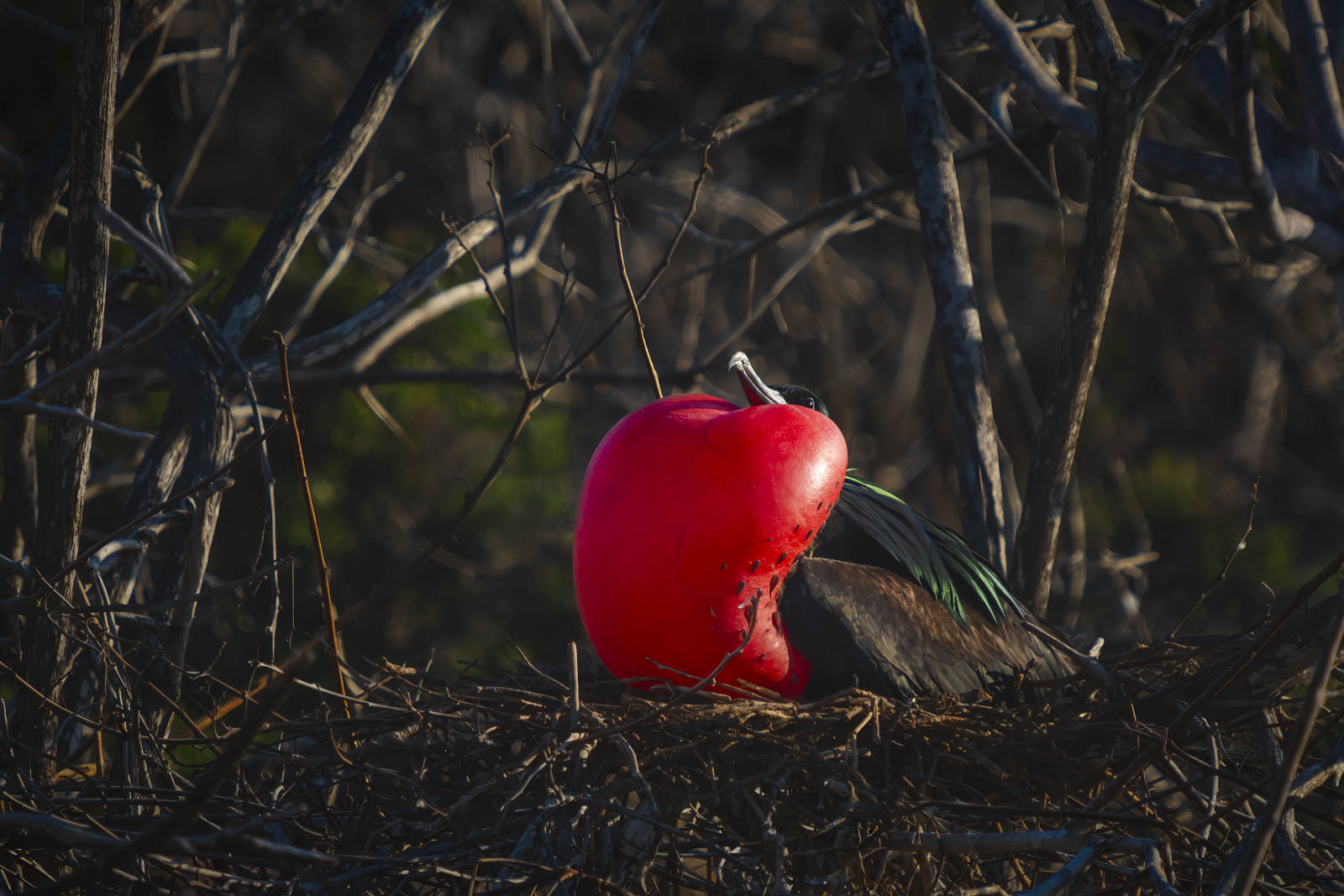
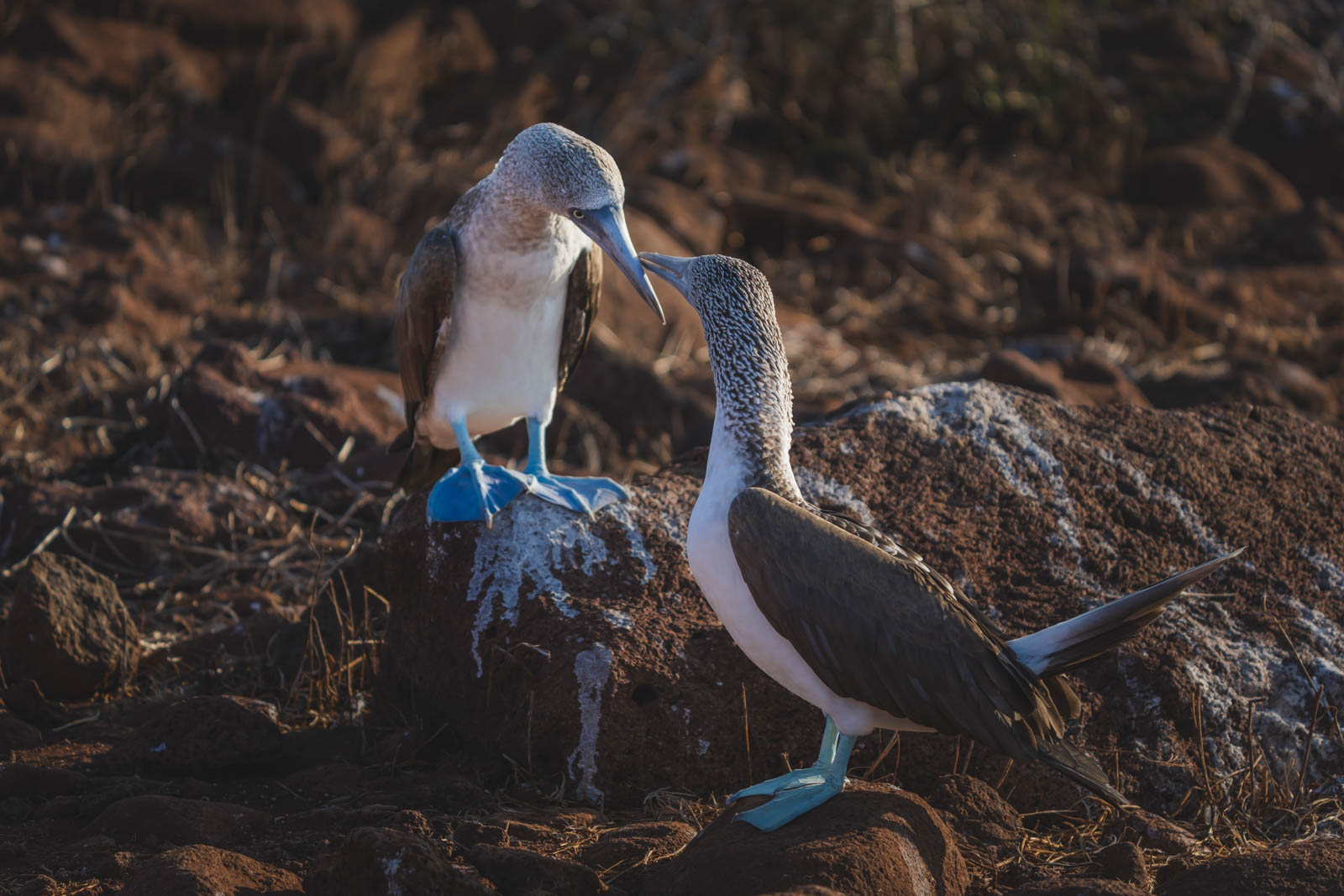
We had six nights and seven days in the Galapagos Islands, which was the perfect amount of time. Days are long and busy; I won’t lie; we were exhausted yet exhilarated all at once, and we wouldn’t have it any other way. We made great new friends and had the time of our lives. We had taken part in so many unique experiences that we didn’t want to miss a thing.
Cloud Forest
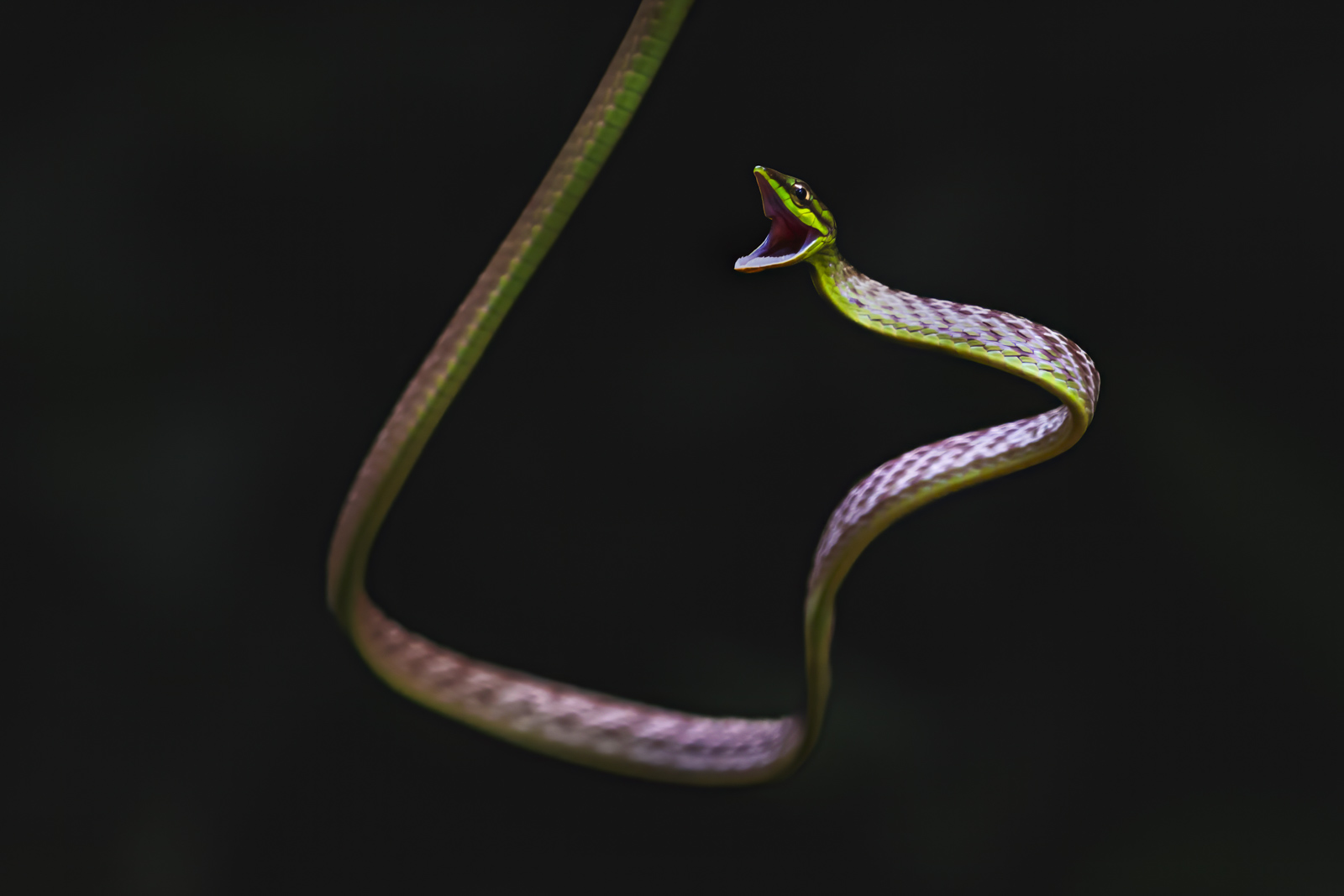
Our trip didn’t end there. We ended our Ecuador adventure in the cloud forest at Mashpi Lodge. This lodge is one of the great luxury eco-lodges in the world. Located in the heart of Ecuador’s cloud forest, Mashpi Lodge is just a 3 1/2 hour drive from Quito but feels world’s away.
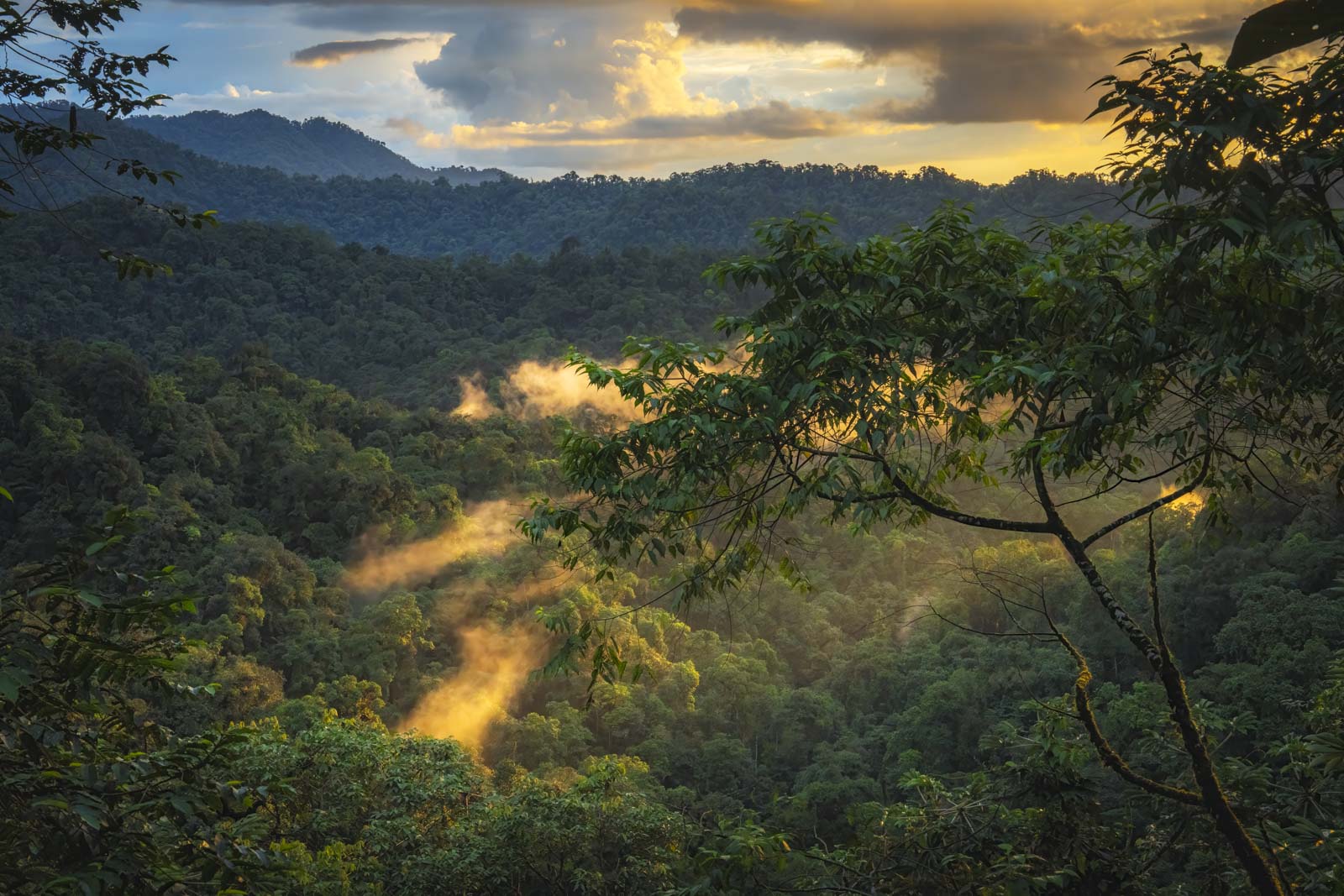
Located in the Chocó Andean rainforest on the Masphi Reserve, this luxury lodge is unique because we took full advantage of our all-inclusive expedition.
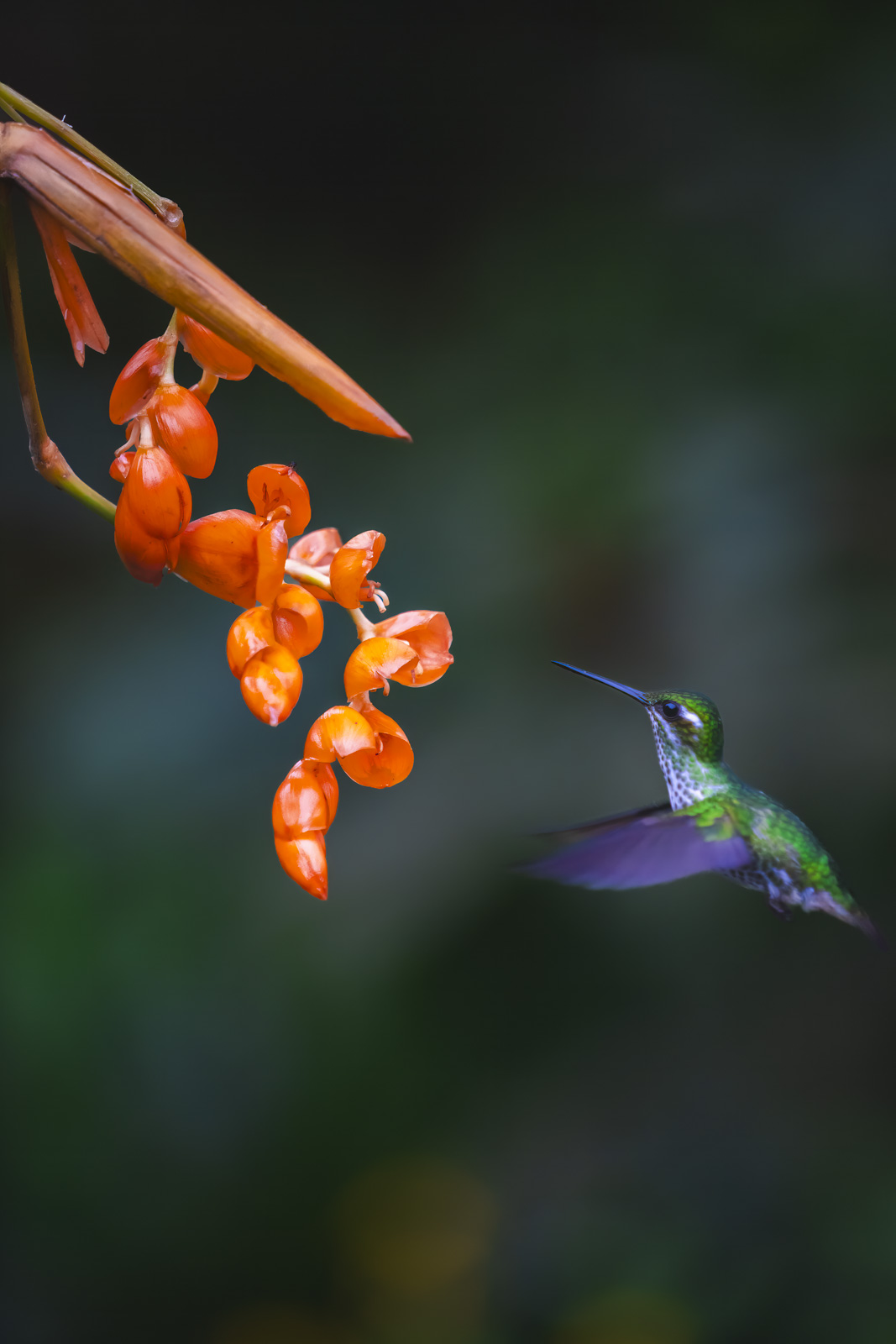
The lodge was the brainchild of Roque Sevilla, a businessman and former mayor of Quito. He wanted to safeguard a portion of the Chocó forest in Ecuador. He saw how devastating deforestation was to the environment and dedicated nearly a decade to conserving this private piece of land. He brought on investors and others who had a passion for sustainability, and since then, Mashpi has grown into the leading luxury eco-lodge it is today. It has preserved more than 7000 acres of rainforest.
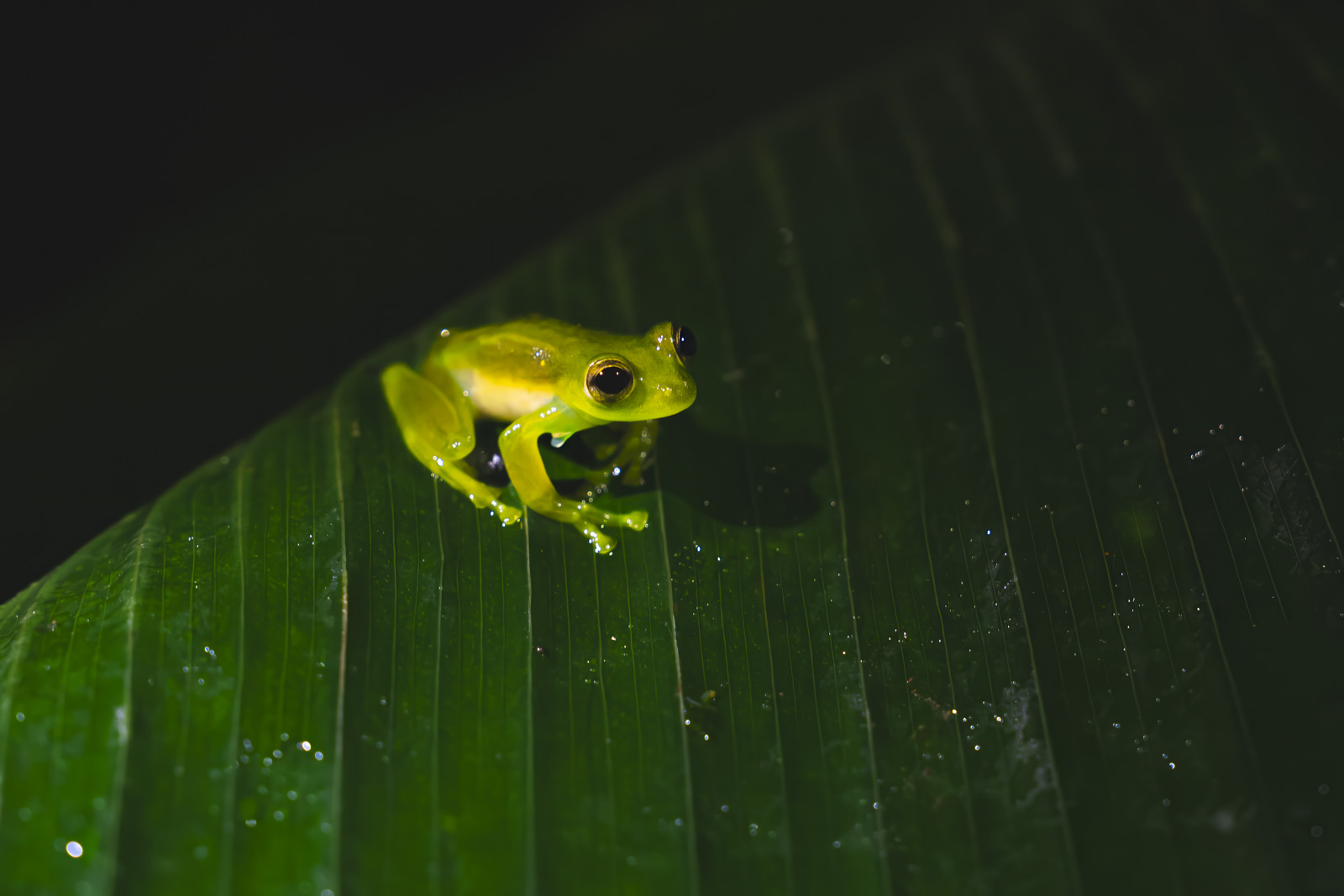
Each day, we had a jam-packed itinerary with our personal guide. Lizardo is a local guide with years of experience in eco-tourism and leads us through the rainforest to explore its flora and fauna.
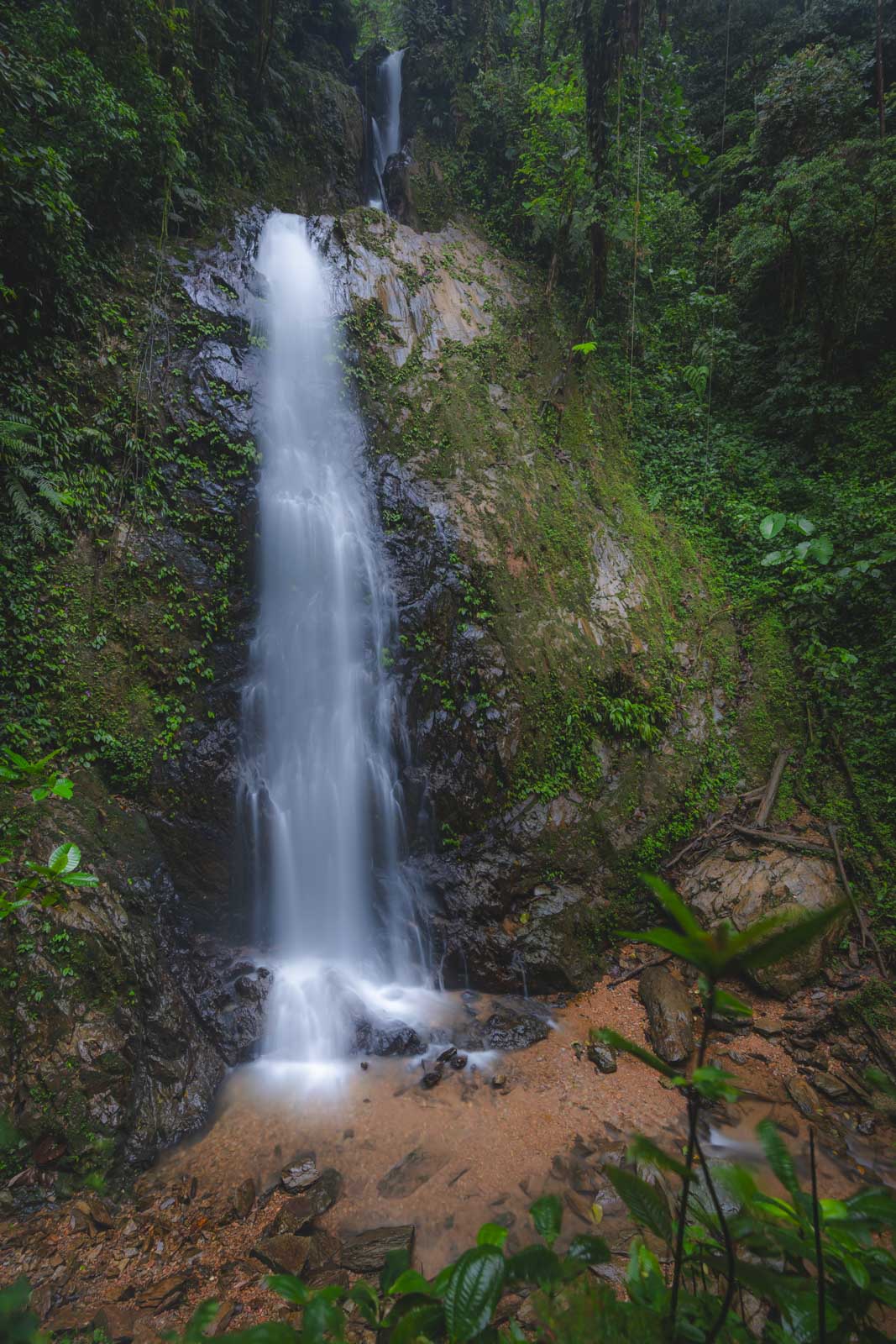
We took hikes to plunging waterfalls and took dips in secluded pools. As we hiked, Lizardo pointed out hidden owls, camouflaged frogs and native bird species.
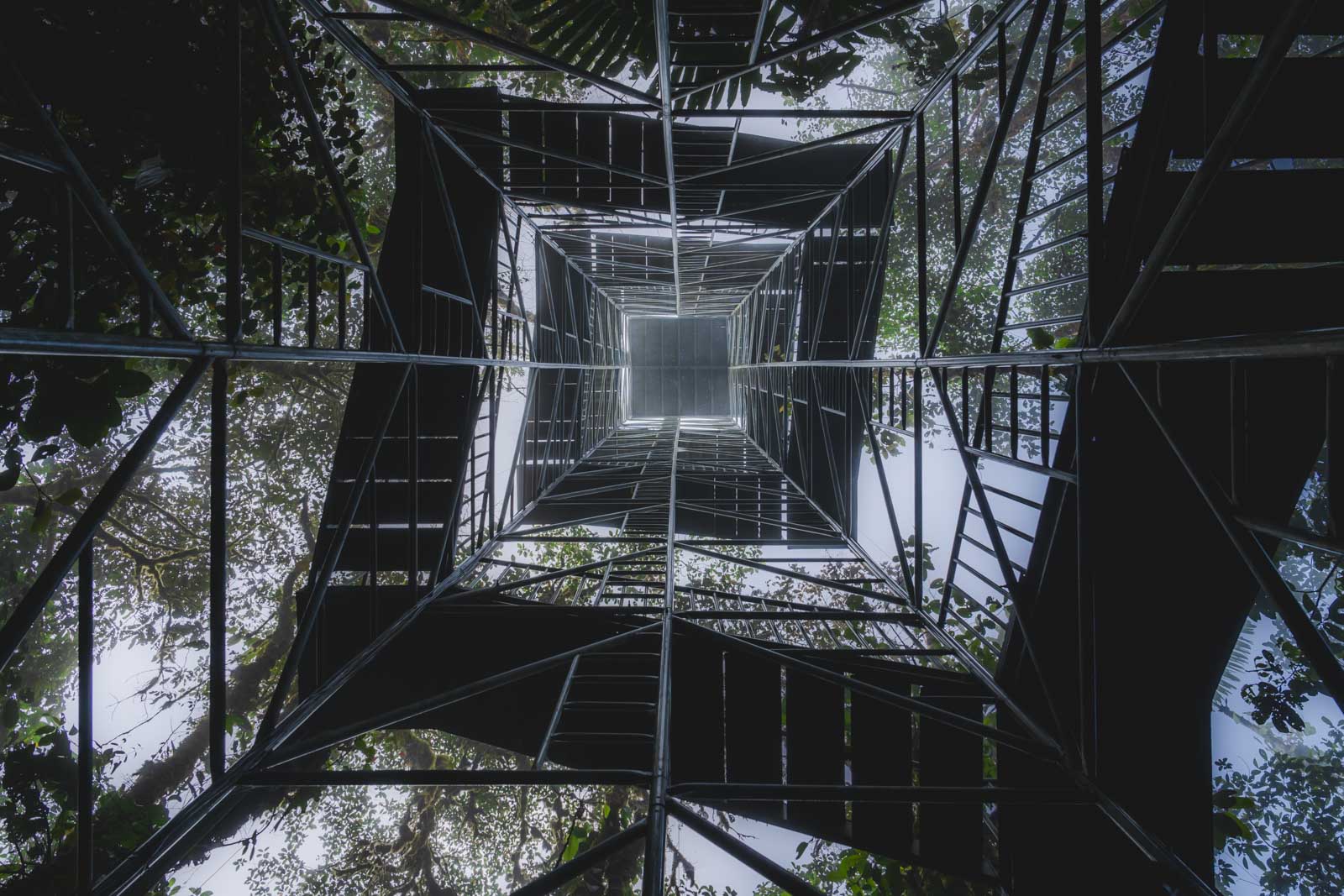
Mashpi Lodge has also created attractions in the rainforest. The lookout tower stands ten stories high with views overlooking the cloud forest canopy, and the nearby jungle bikes was a great adventure in the sky.
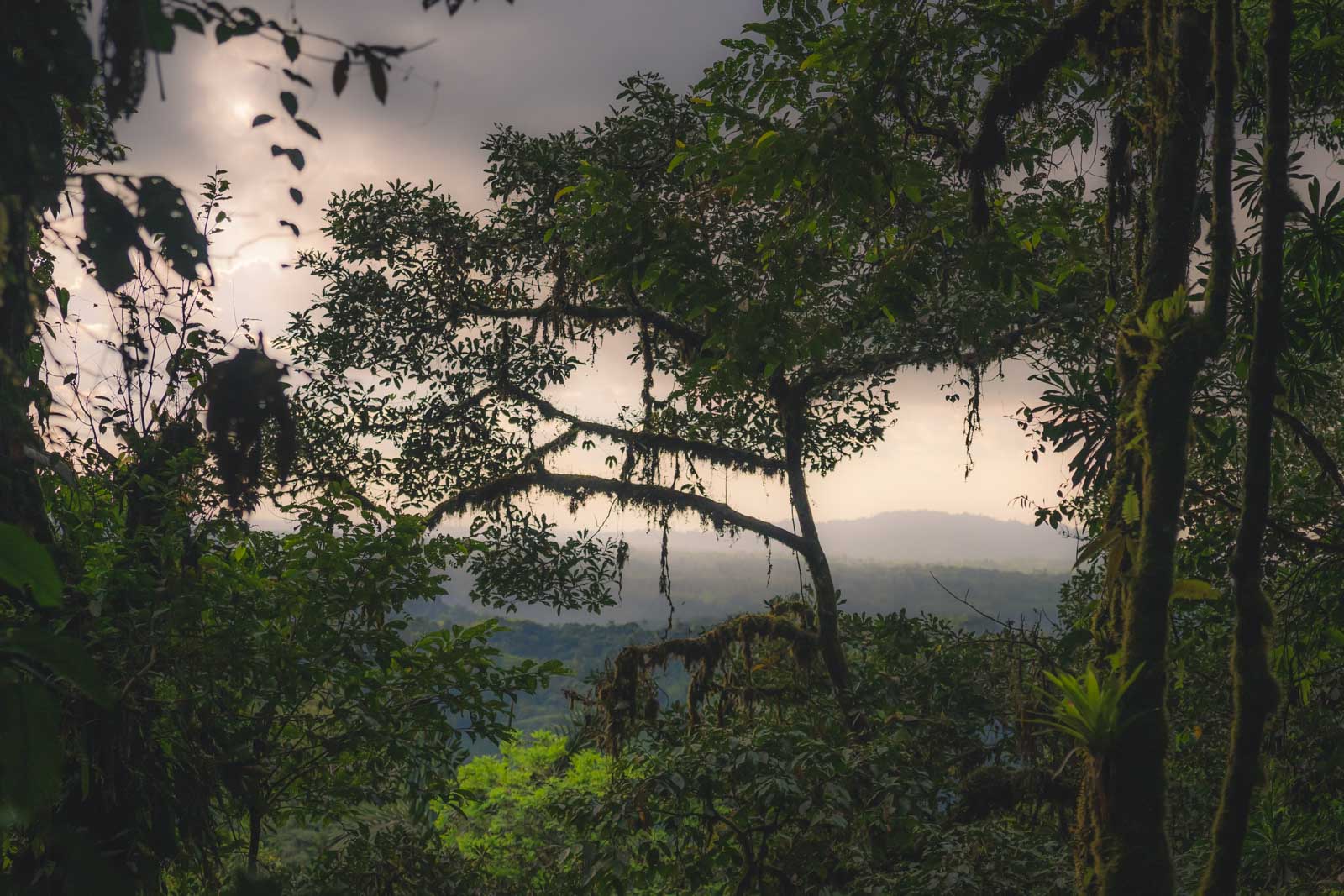
This is truly an incredible way to end a Galapagos adventure. It is a once-in-a-lifetime opportunity to go to the Galapagos Islands, and to add on a journey to the cloud forest makes it even more memorable.
Best Galapagos Expedition
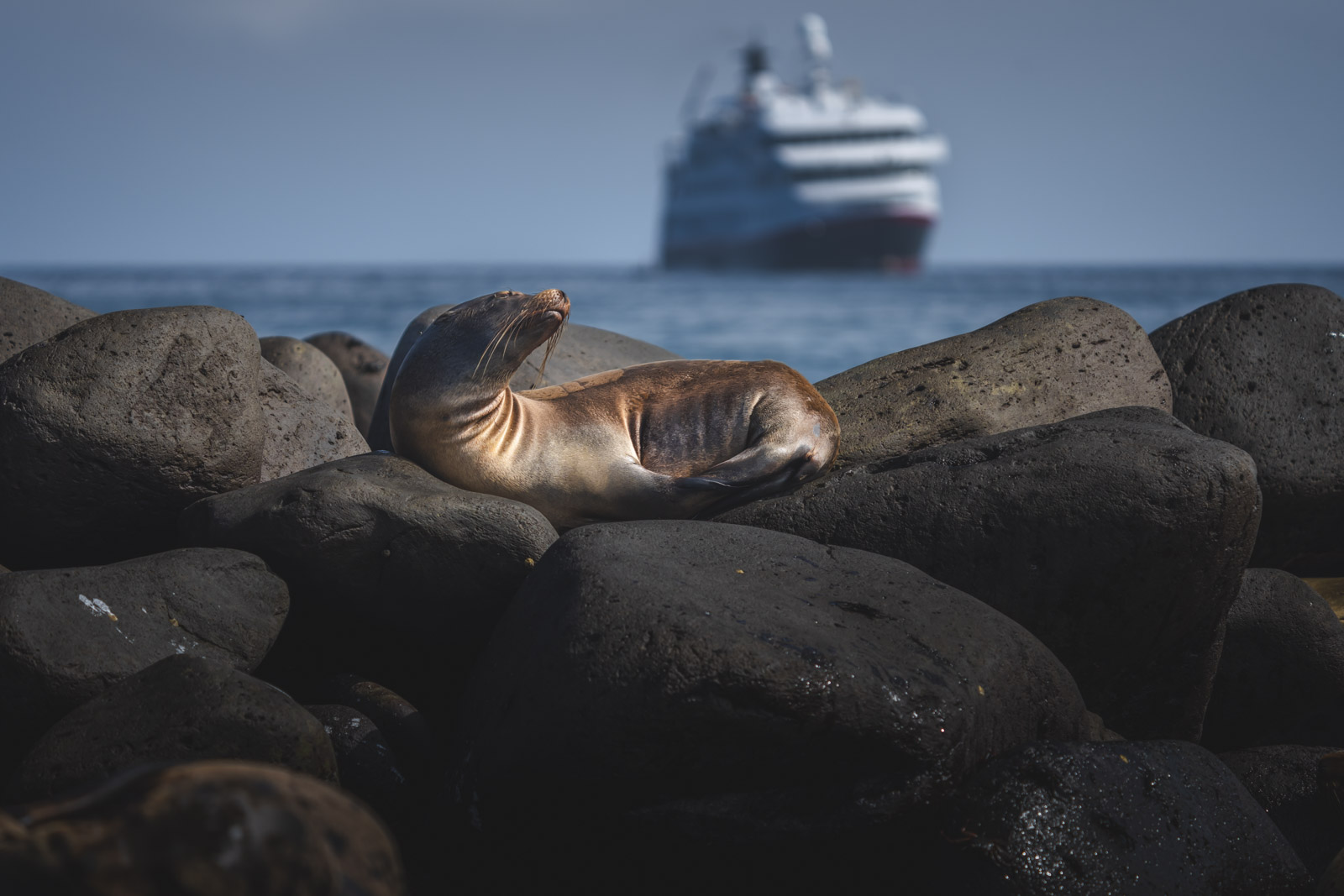
Following in Darwin’s Footsteps is the best route for a Galapagos cruise, which will introduce you to all the highlights of Galapagos National Park in a short time. Being on offers a unique vantage point to explore this UNESCO Biosphere Reserve as you sail to remote places and explore islands free from other people.
About HX Hurtigruten Expeditions
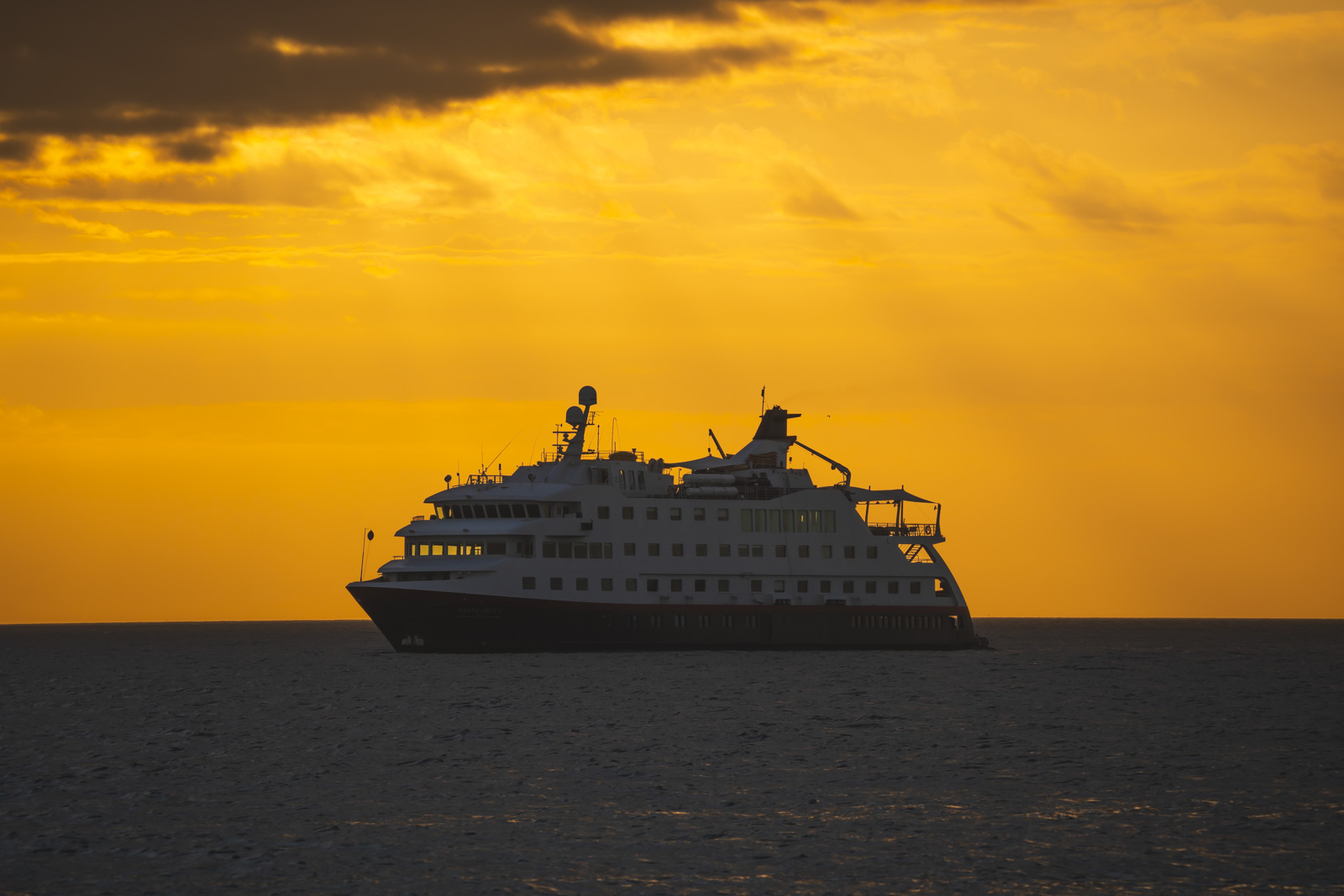
Hurtigruten founded Expedition Cruising in 1896 and is the leader in sustainable cruising. It is the largest operator by capacity in expedition cruising and is considered one of the best Galapagos cruises in the Galapagos Islands.
If you are searching for an expedition ship to take to the Galápagos Islands, the Santa Cruz II was fantastic. Plus it runs with carbon-neutral operations, is environmentally sustainable, and works with the local community.
It was large enough to provide all the comforts you need yet small enough to reach the hard-to-reach places. This expedition cruise offered gourmet dining with wine pairings, luxurious cabins, local Galapagos experts, and personalized service.
What’s Included on a Galapagos Cruise?
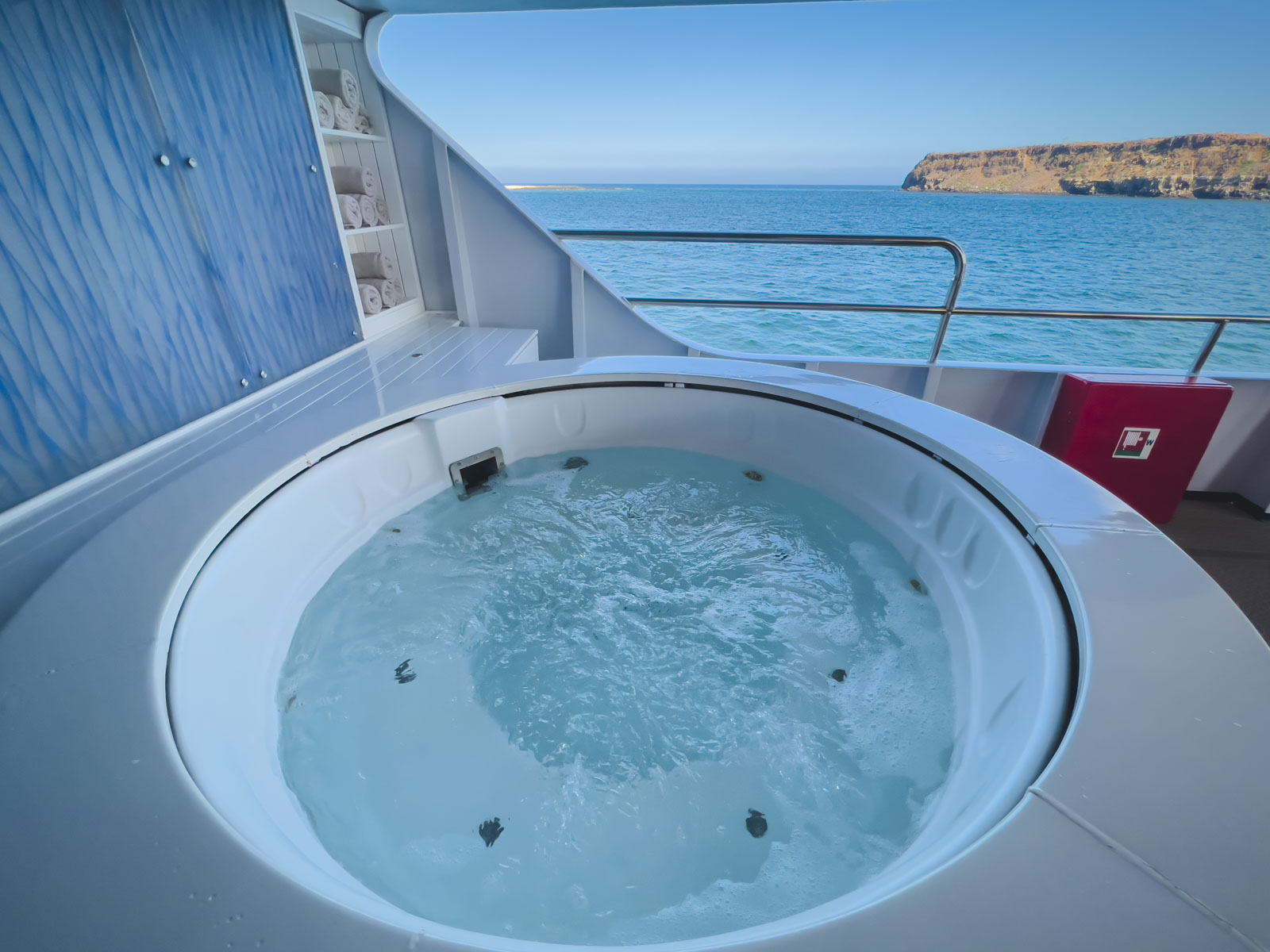
When on the MS Santa Cruz II, breakfast, lunch, and dinner in the main restaurant, beverages (house beer and wine, sodas, and mineral water) are included. All excursions, including snorkeling, glass bottom boat tours, stand-up paddleboarding, panga rides, kayaking, hiking, and day tours, are also included.
The Darwin Research Station, Tortoise Farm, Cultural Experiences, and city tours are also included.
On the ship, complimentary snacks, tea, and coffee are included throughout the day. The only things you have to pay for when onboard are drinks at the bar (although they are reasonable and have several happy hours throughout the trip) and any souvenirs you may want.
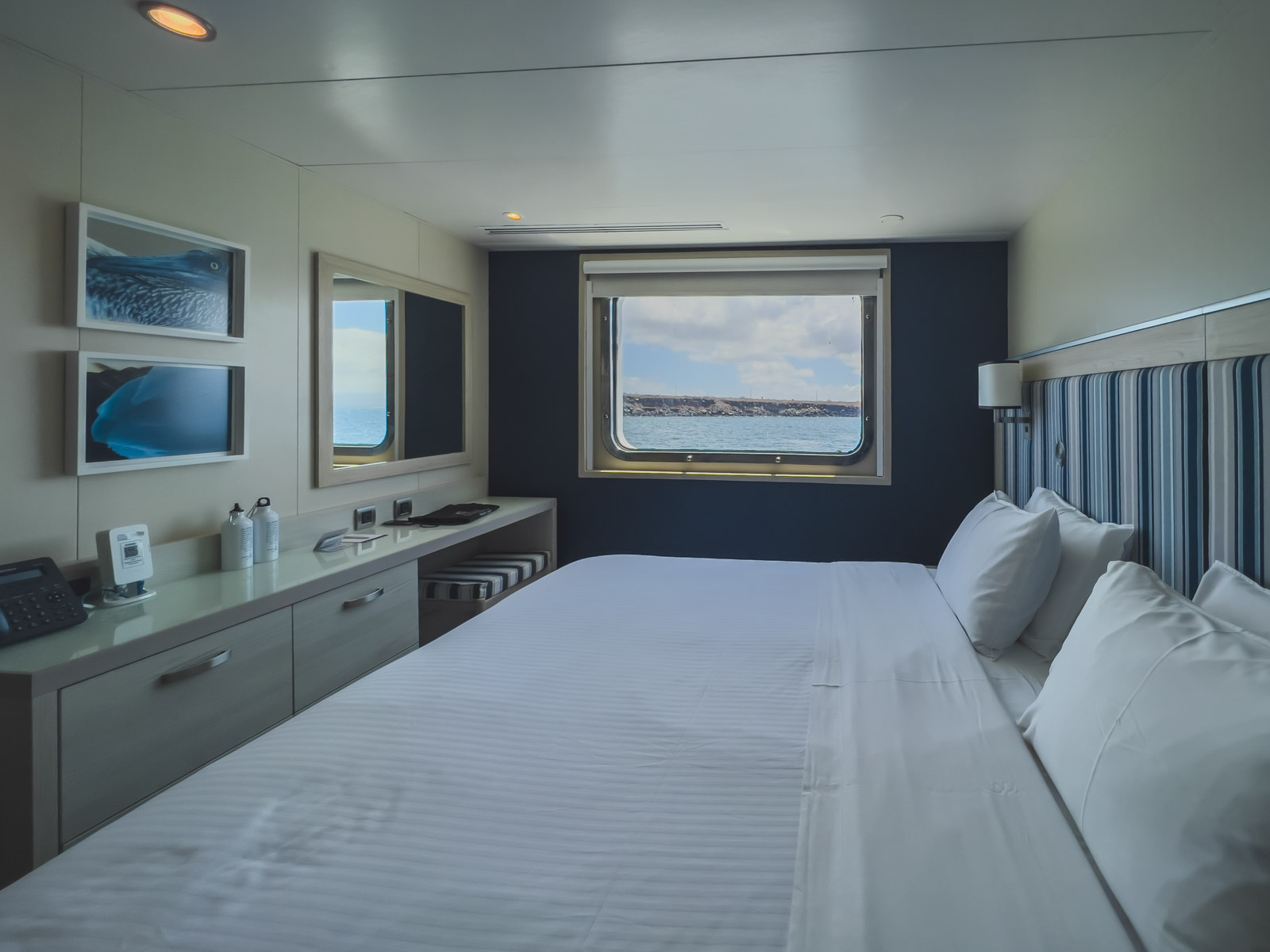
Gratuities are also included in Hurtigruten cruises, so you don’t need to worry about what to tip crew and guides at the end of the trip. However, a little extra is always appreciated.
The MS Santa Cruz II even had free laundry with washers and dryers on deck. We relaxed in the hot tubs after a day of hiking and washed our clothes simultaneously.
Hurtigruten has more than a century of expedition experience and constantly evolves its conservation efforts.
- HX founded Expedition Cruising in 1896 and is the global leader in sustainable cruising.
- Today, it is the largest operator by capacity in expedition cruising.
- HX offers big adventures on small, custom-built ships to over 250 destinations in more than 30 countries from pole to pole and is committed to being a catalyst for change toward a greener travel industry.
- Hurtigruten also introduced the world’s first battery hybrid-powered cruise ship (2019), and has since added two more
- They were the first to ban heavy fuel oil (2009) and single-use plastics (2018).
- When choosing a Galapagos Cruise, you can feel comfortable knowing that this company is taking extra precautions to preserve the environment, wildlife, and cultures of the destination.
Many people’s bucket lists include a Galapagos cruise, and we loved our time in this isolated region. While it is very different from other cruise destinations, if you are ready for an adventure, you will take home memories that will last a lifetime.
Plan more Cruises around the world.
- Expedition Cruises – Complete Guide to Cruising to Remote Places
- Alaska Cruise Packing List – What to Pack for an Alaskan Cruise
- Canal du Midi Cruise – What to Expect While Barging the South of France
- Halong Bay or Bai Tu Long Bay – How to Choose Your Cruise?
- European River Cruise Tips
- Alaska Cruise Packing List – What to Pack for an Alaskan Cruise

